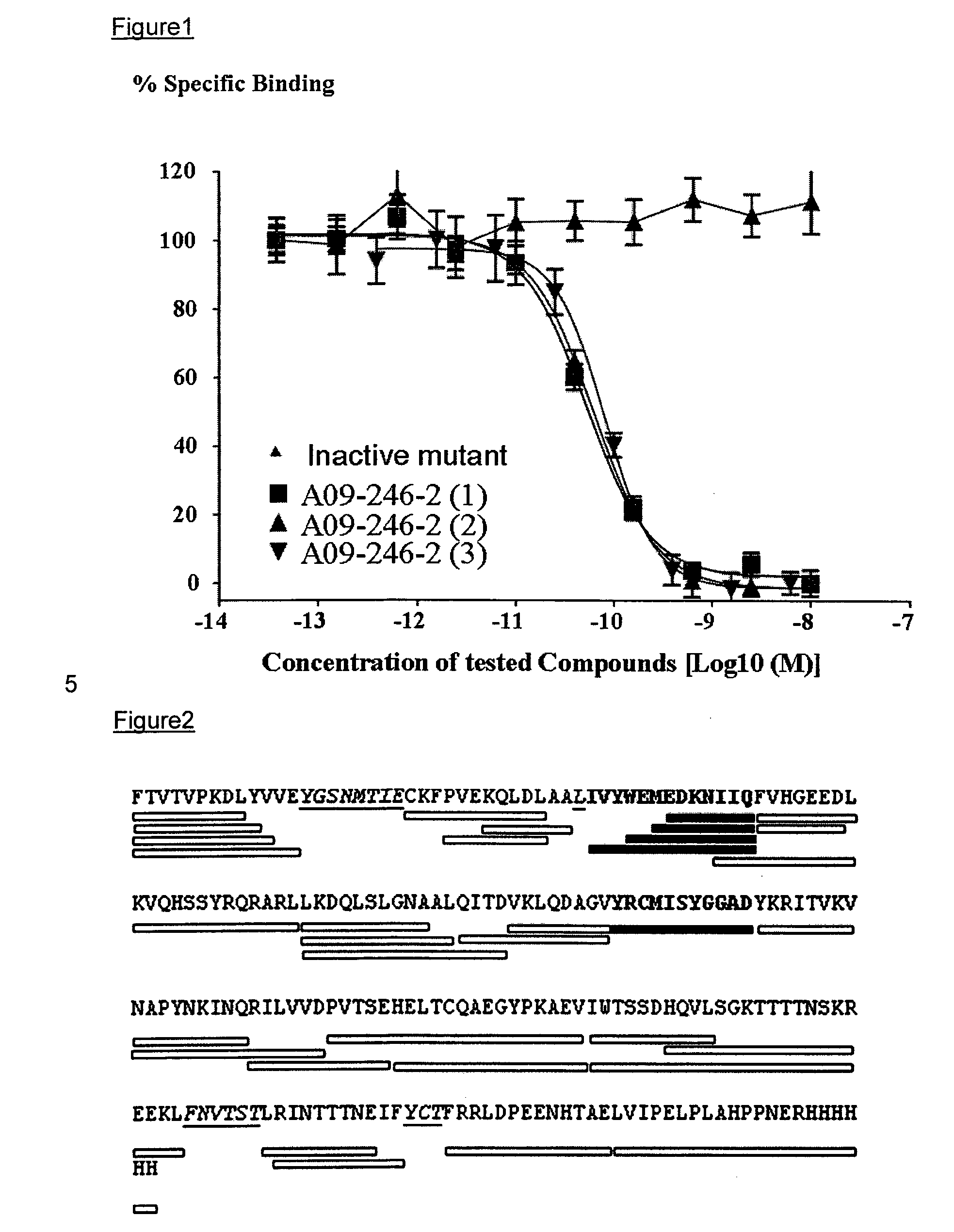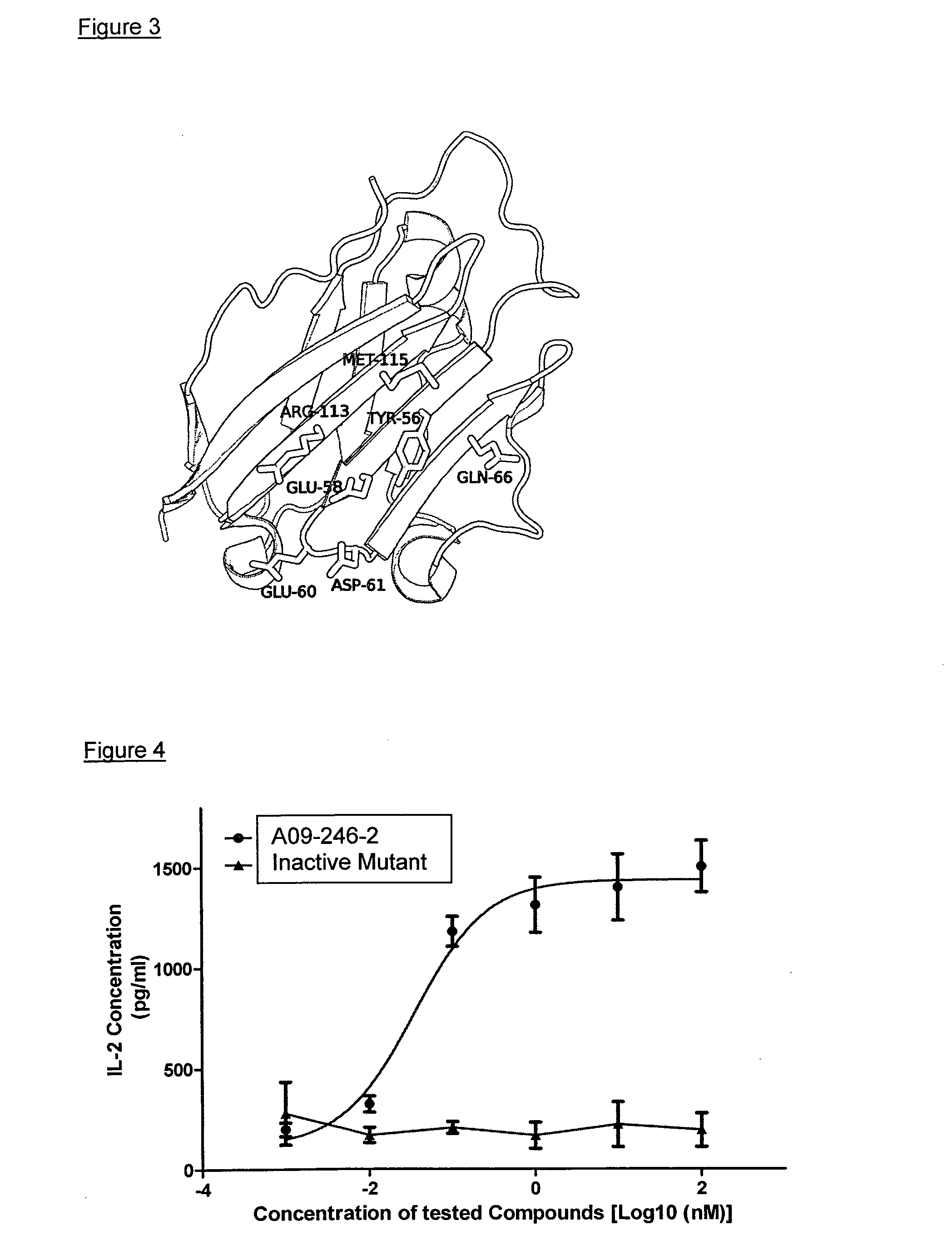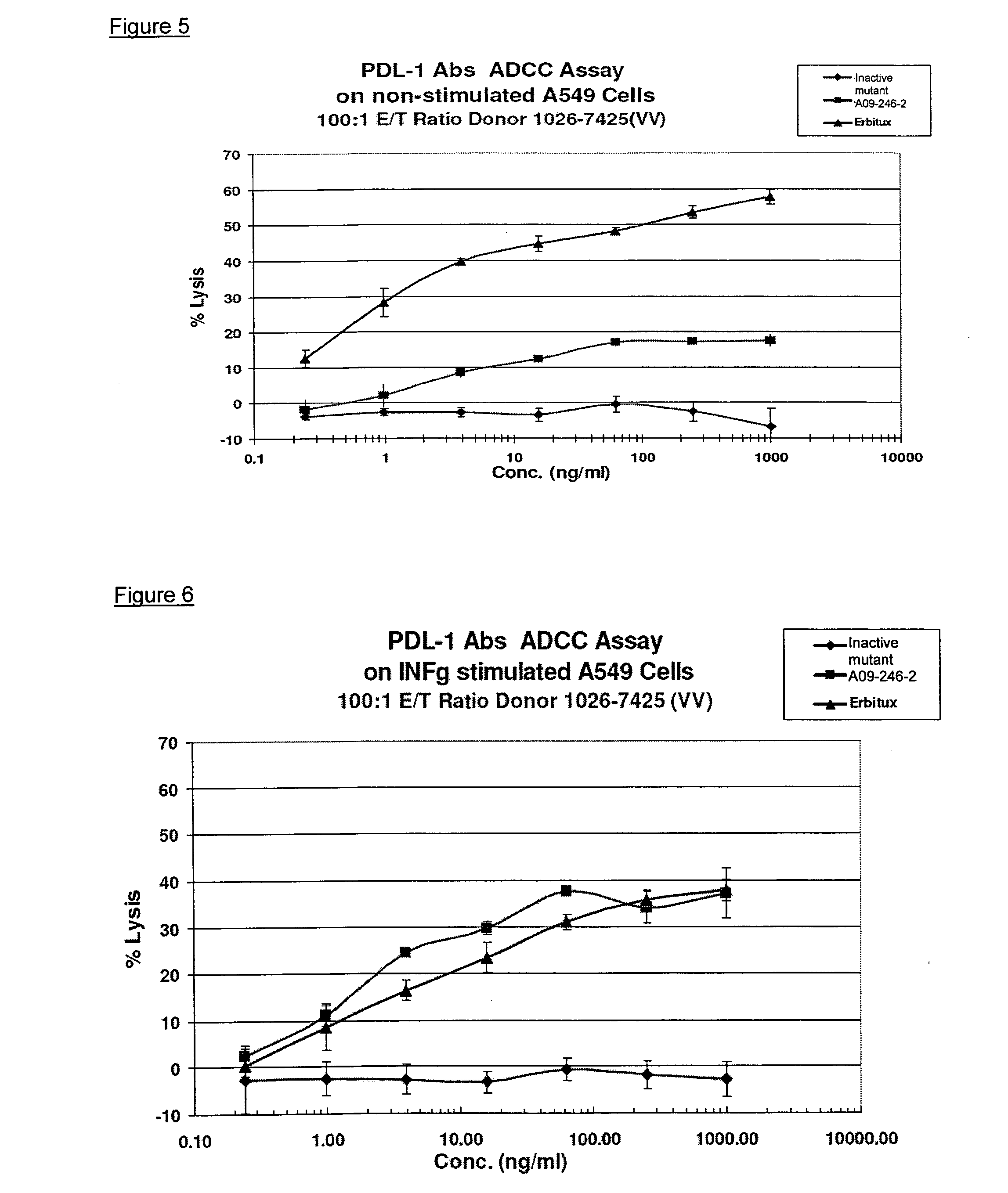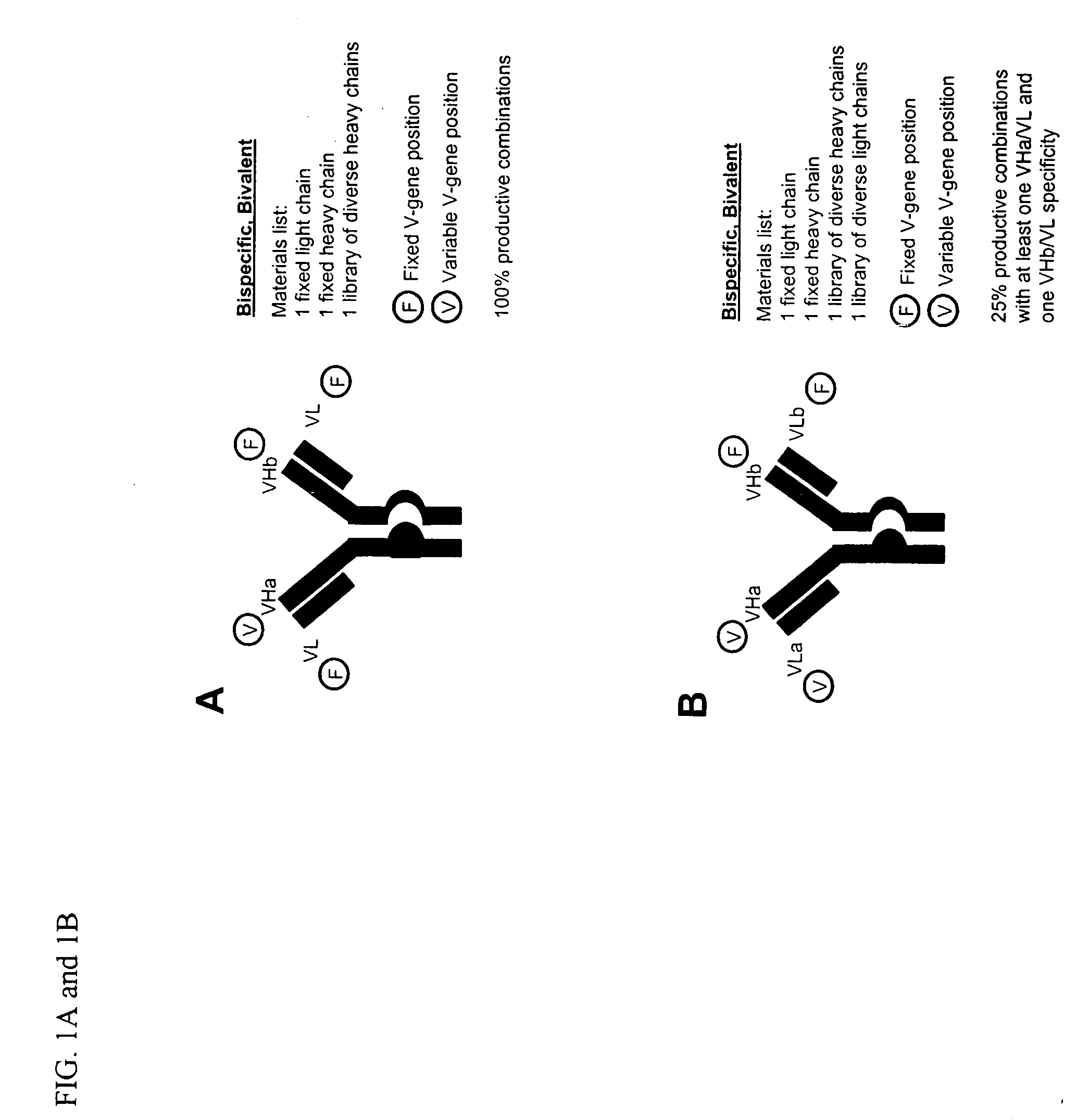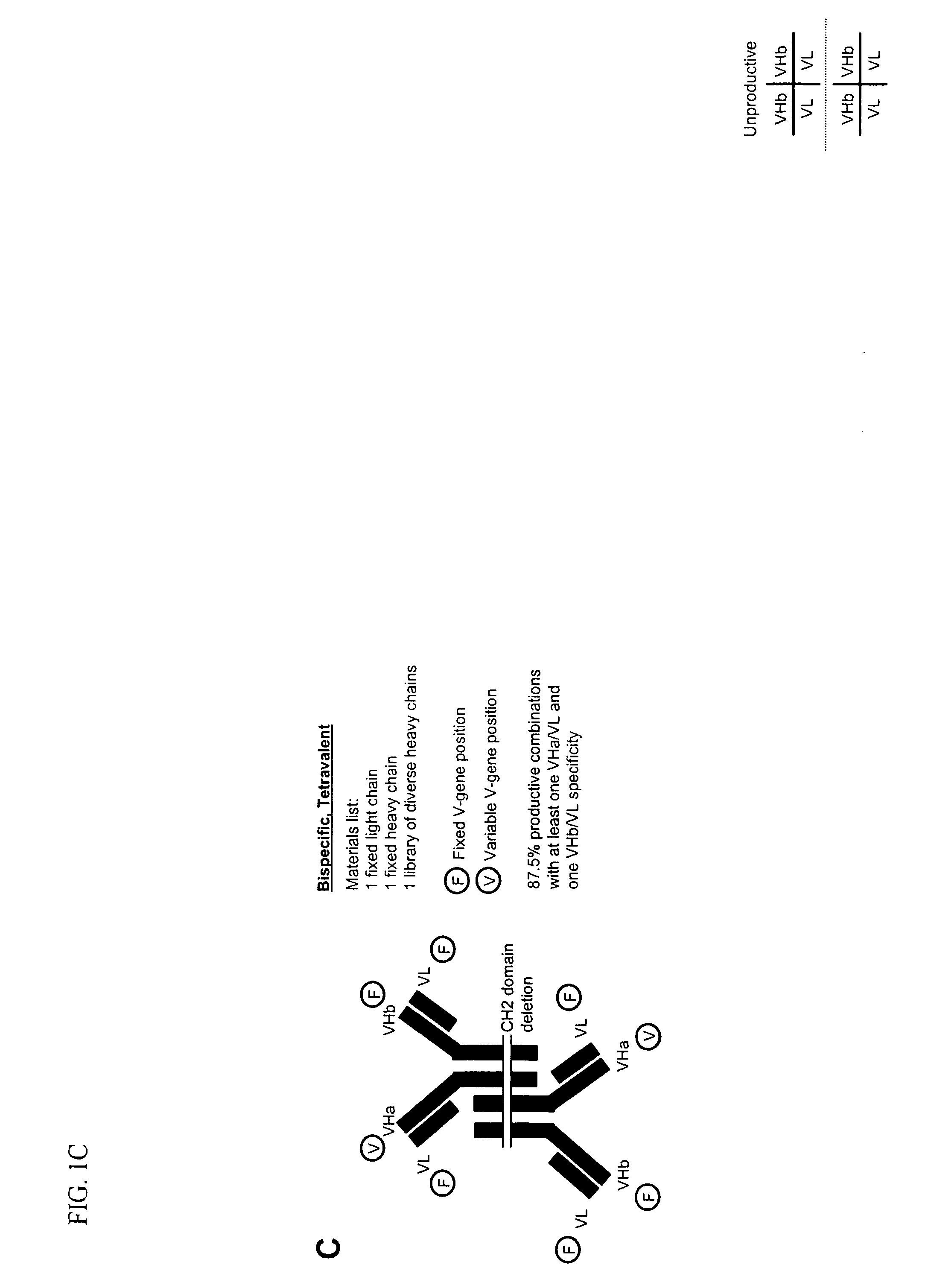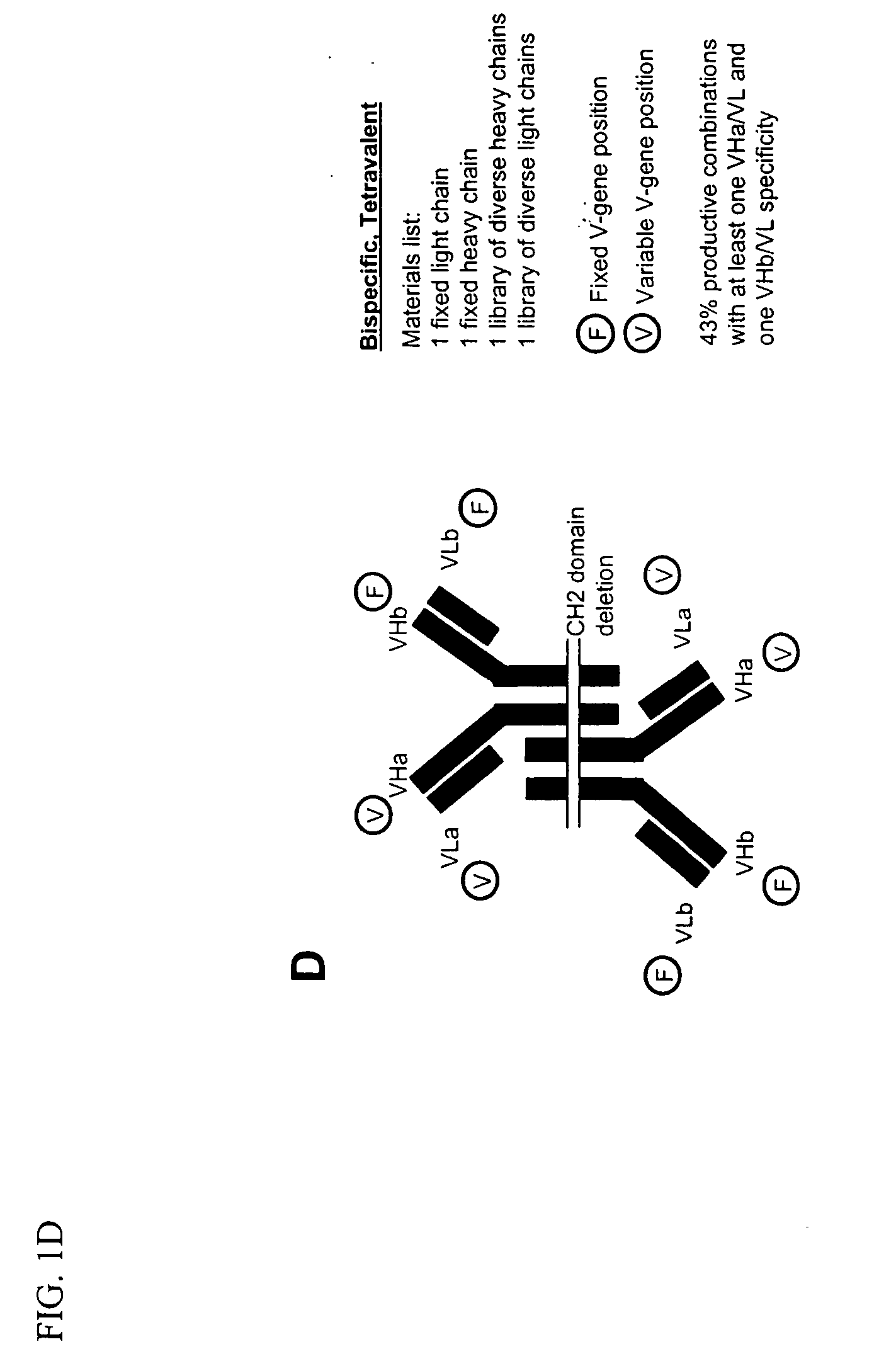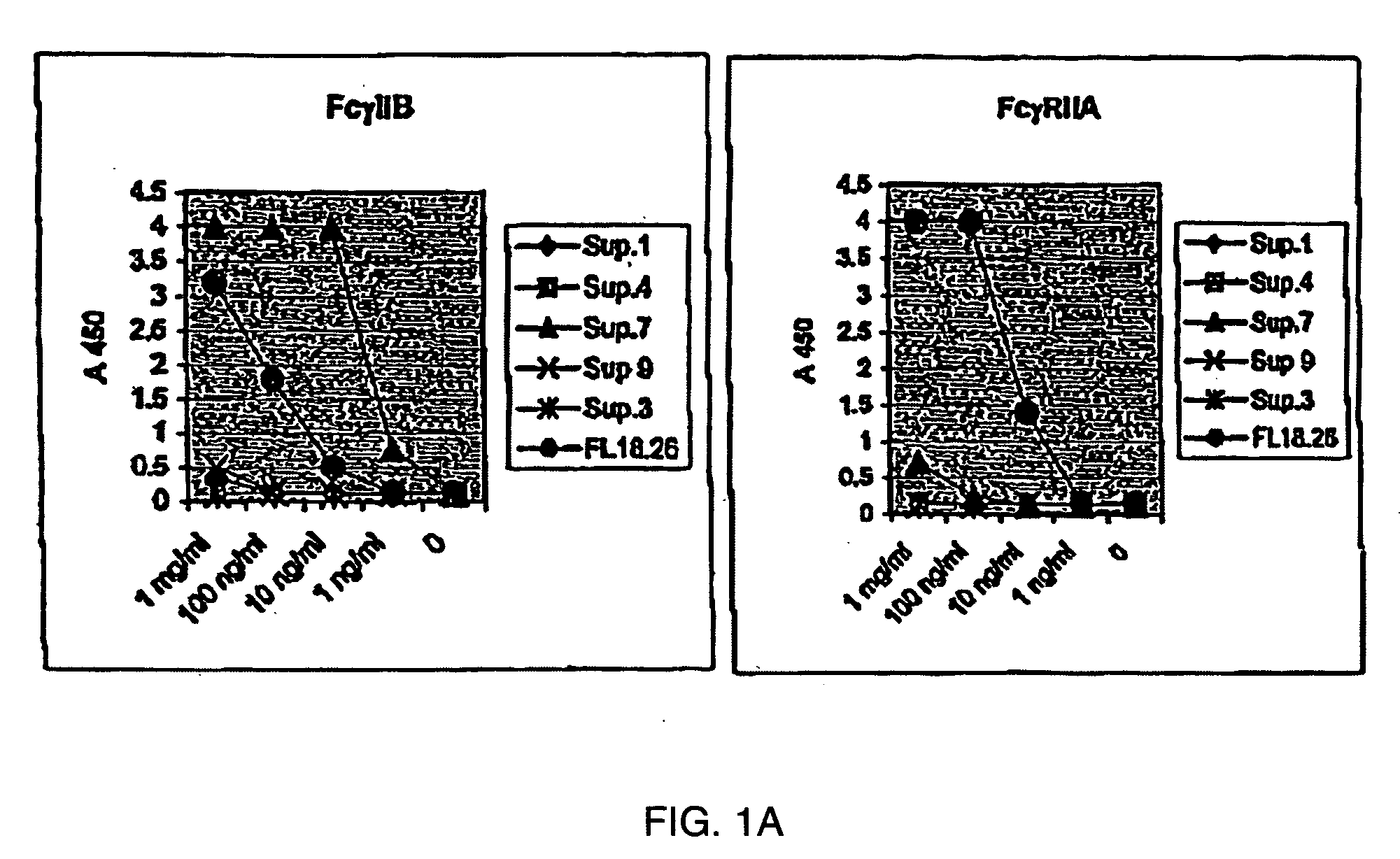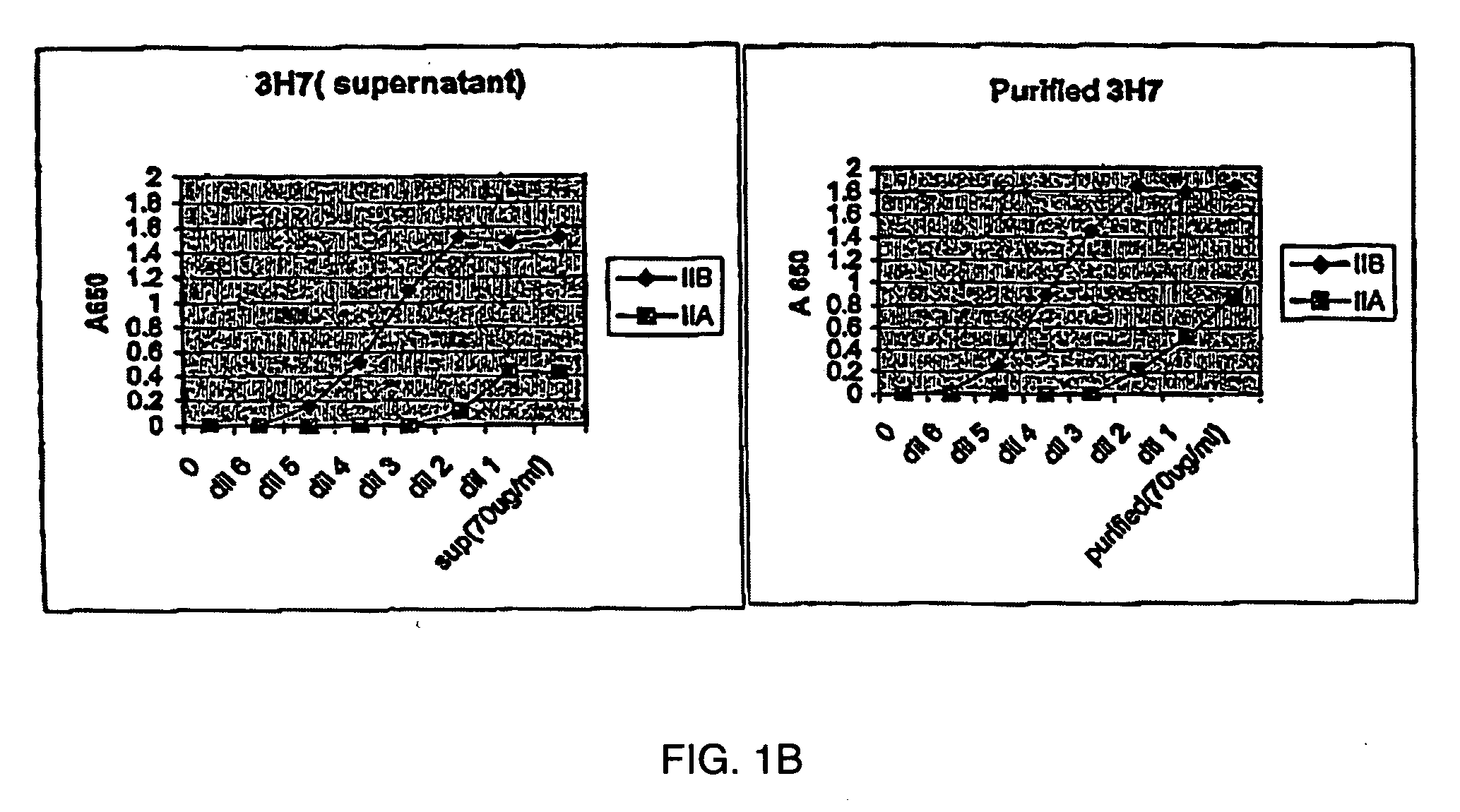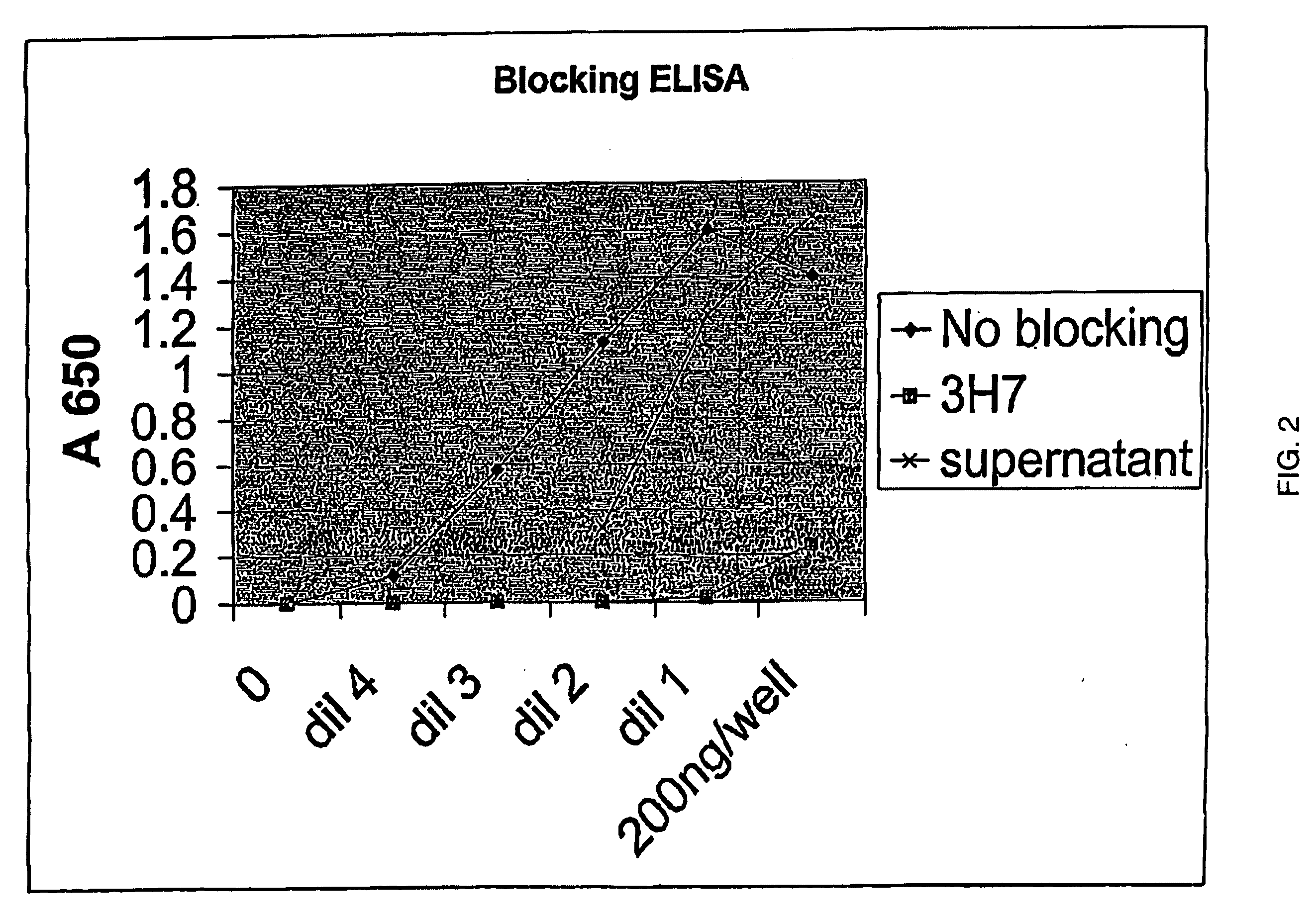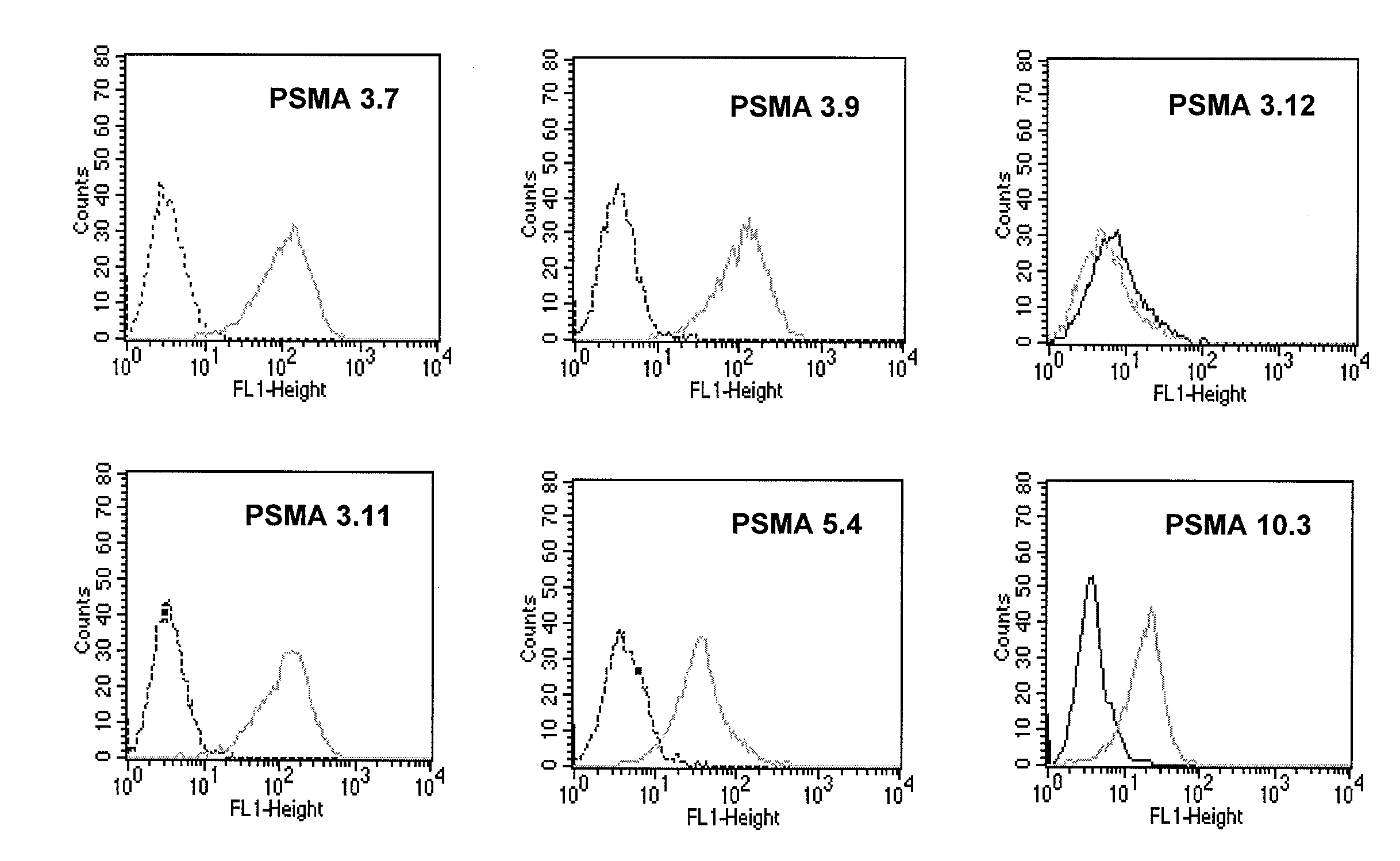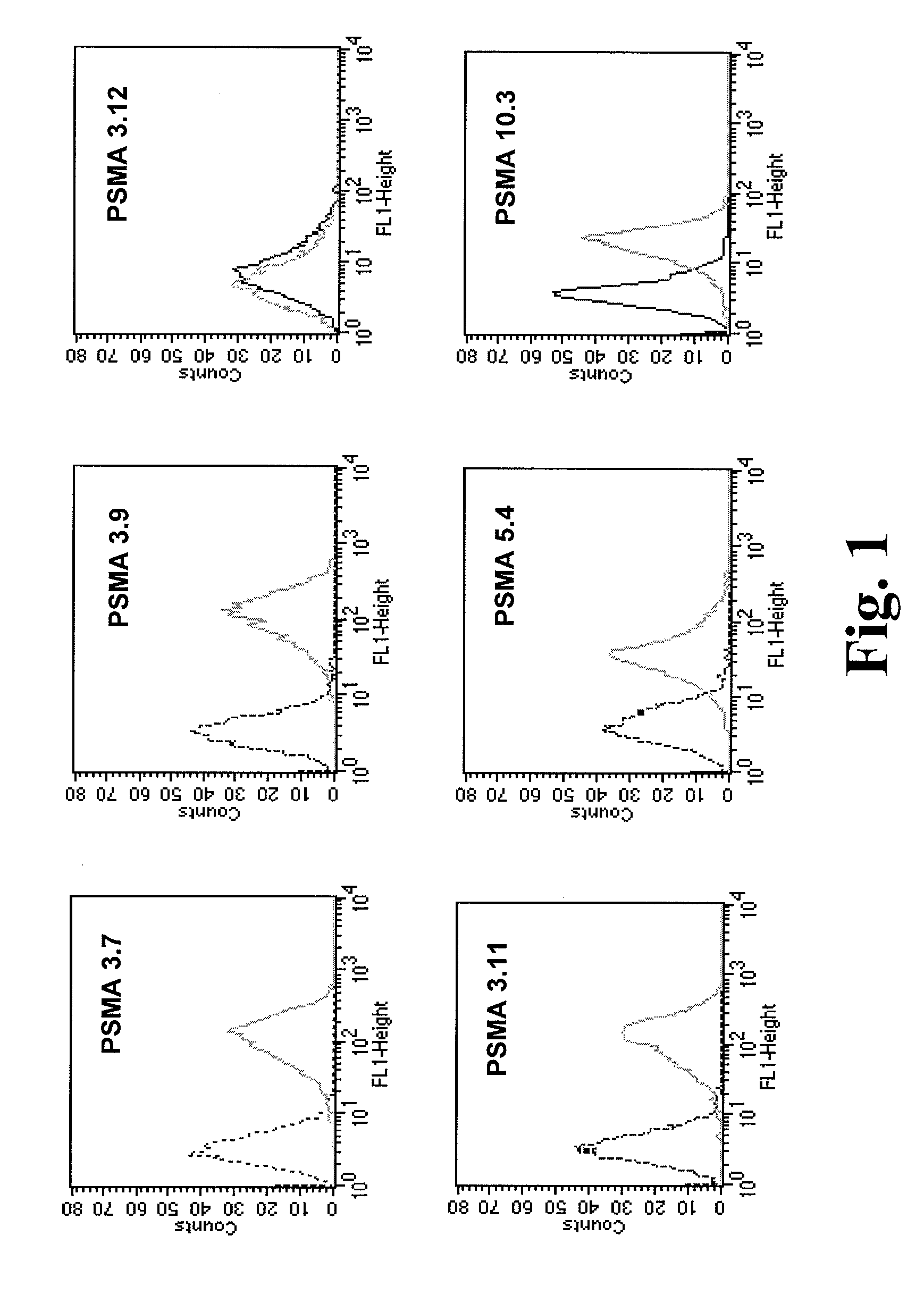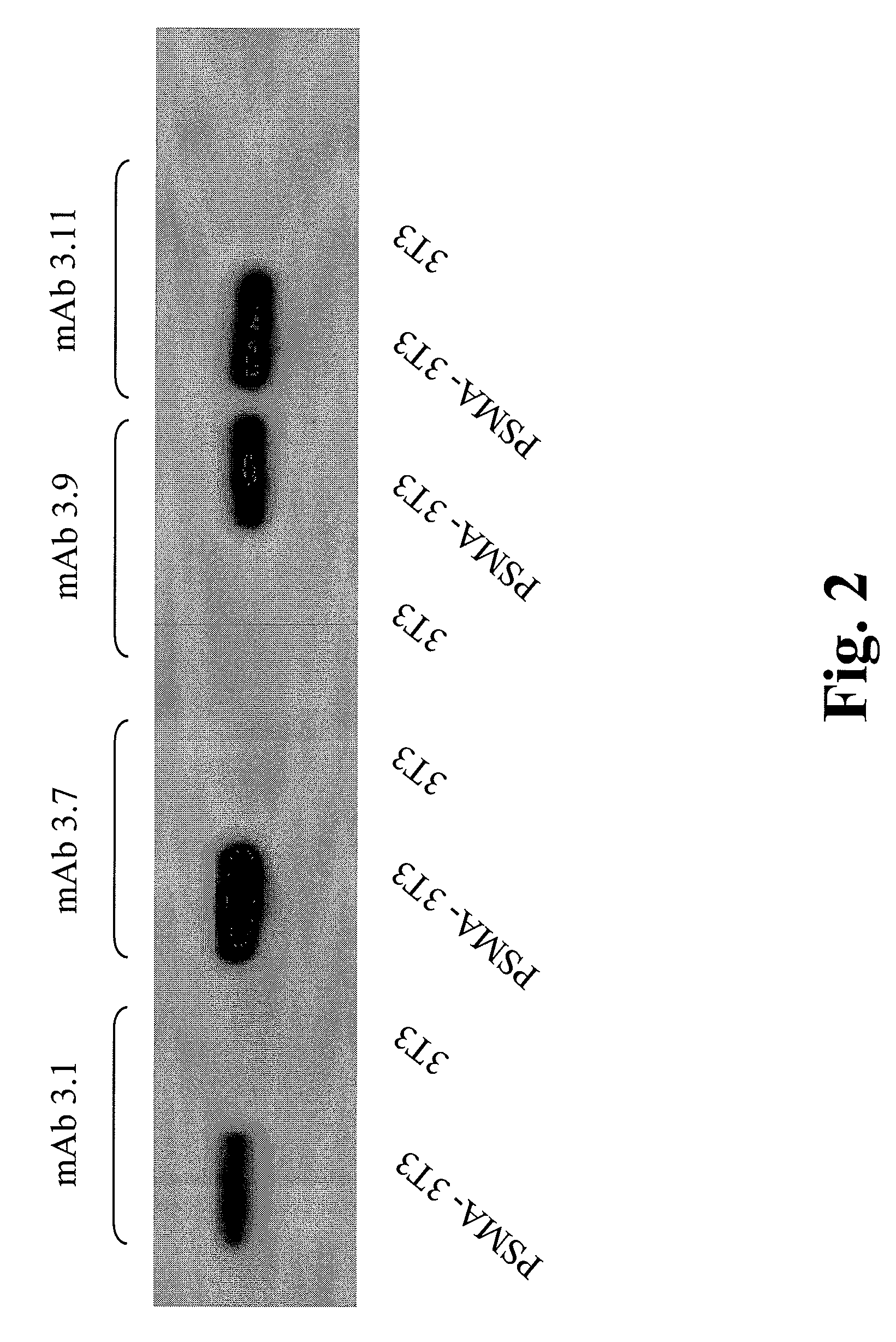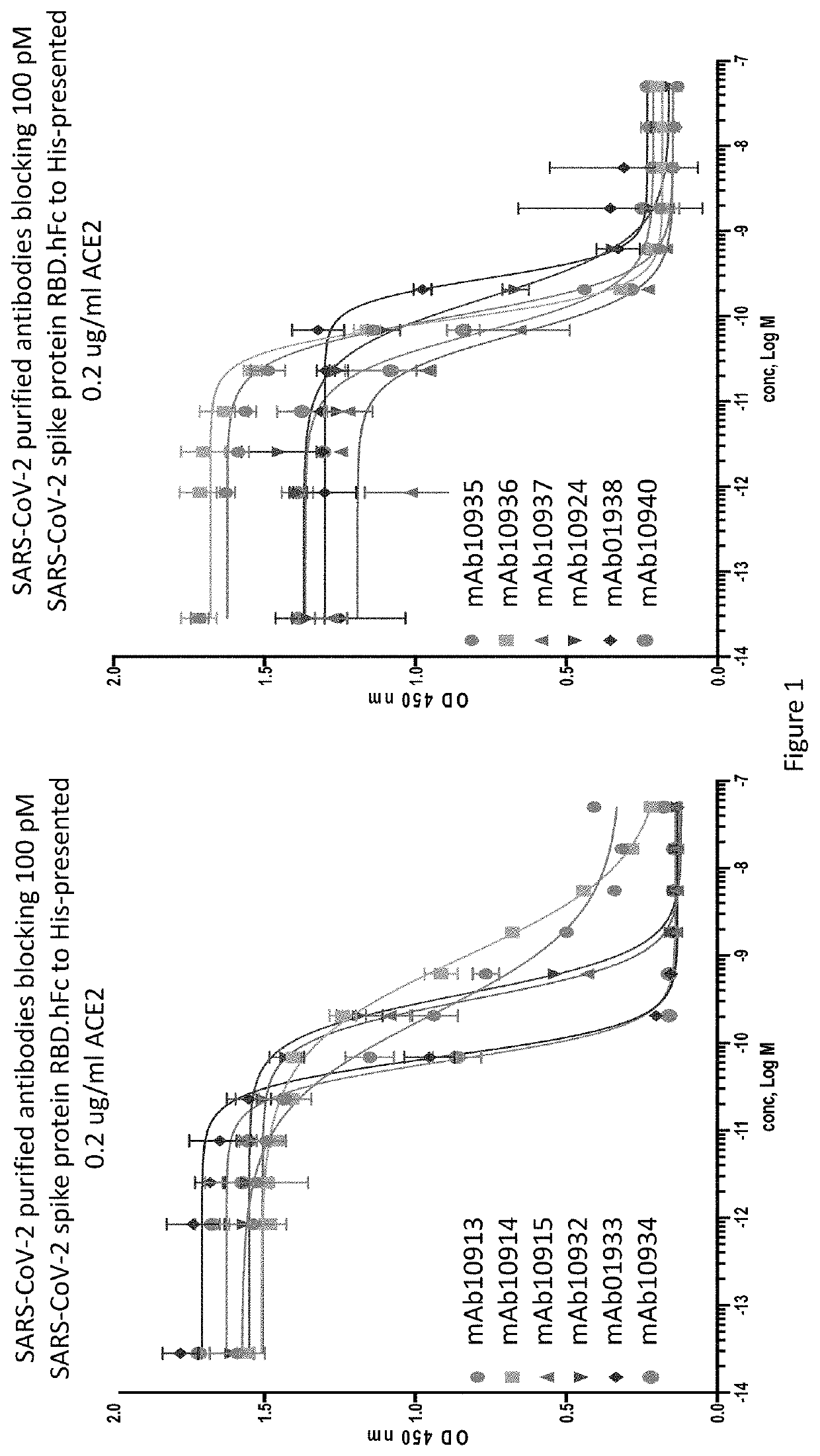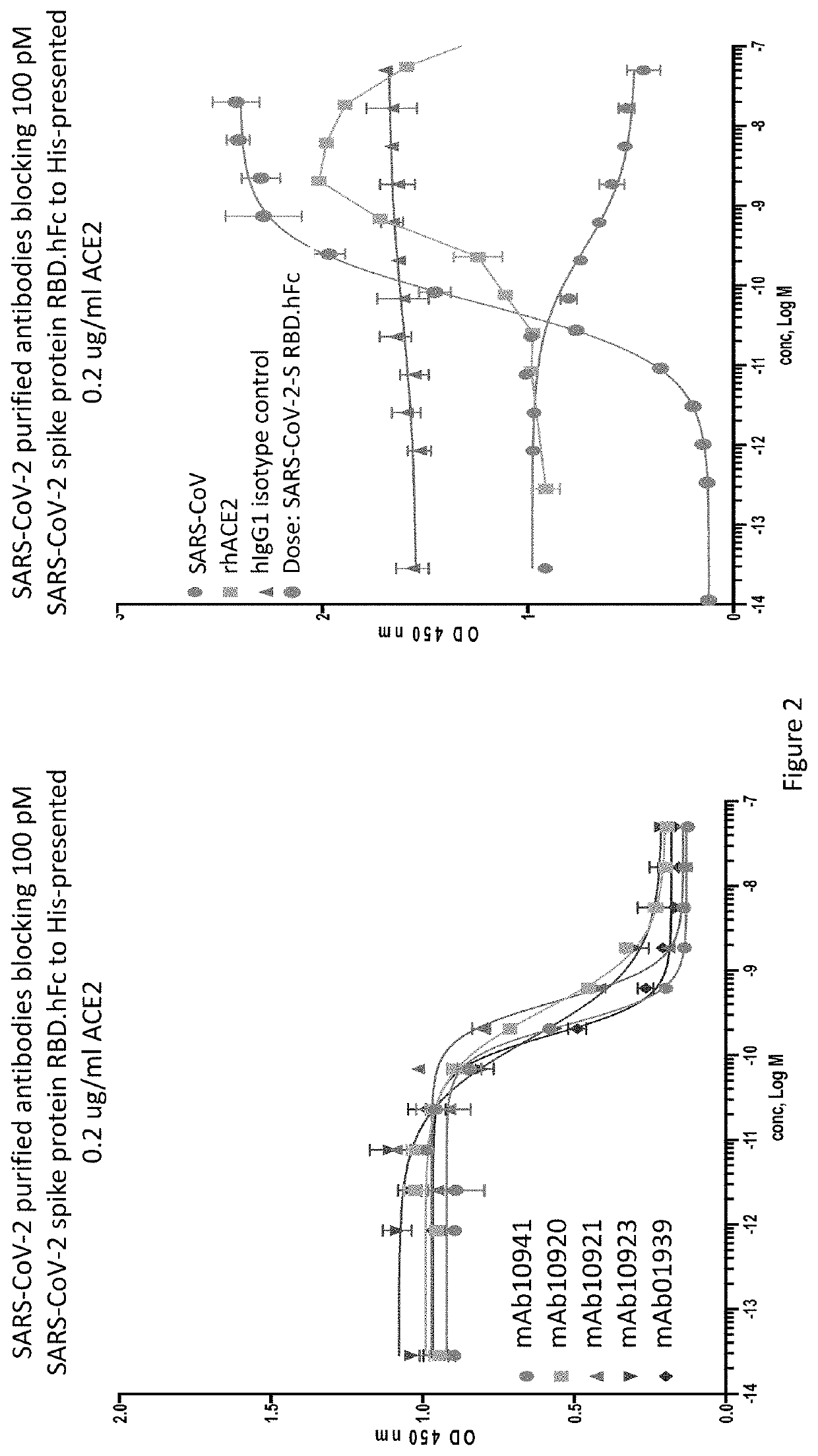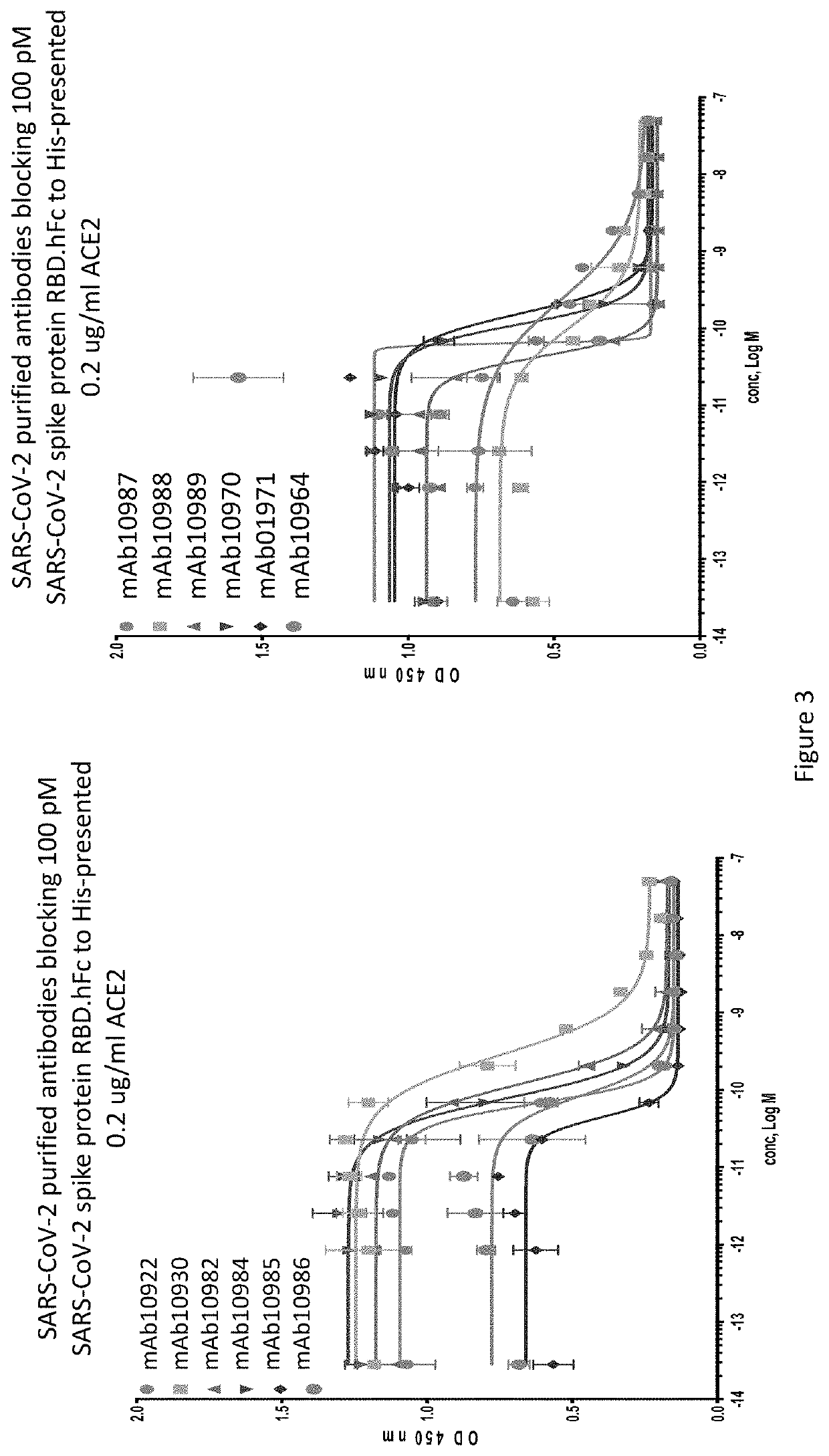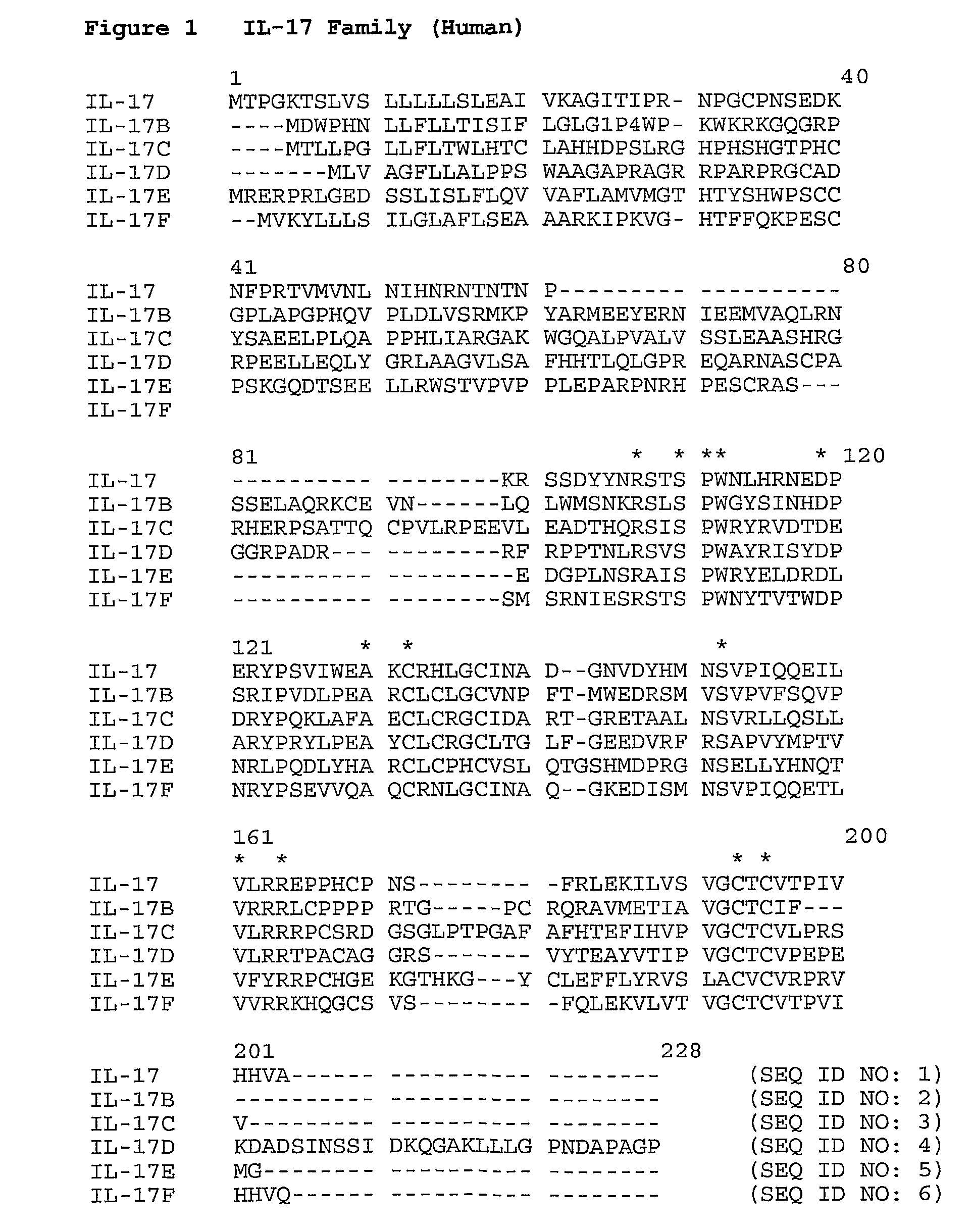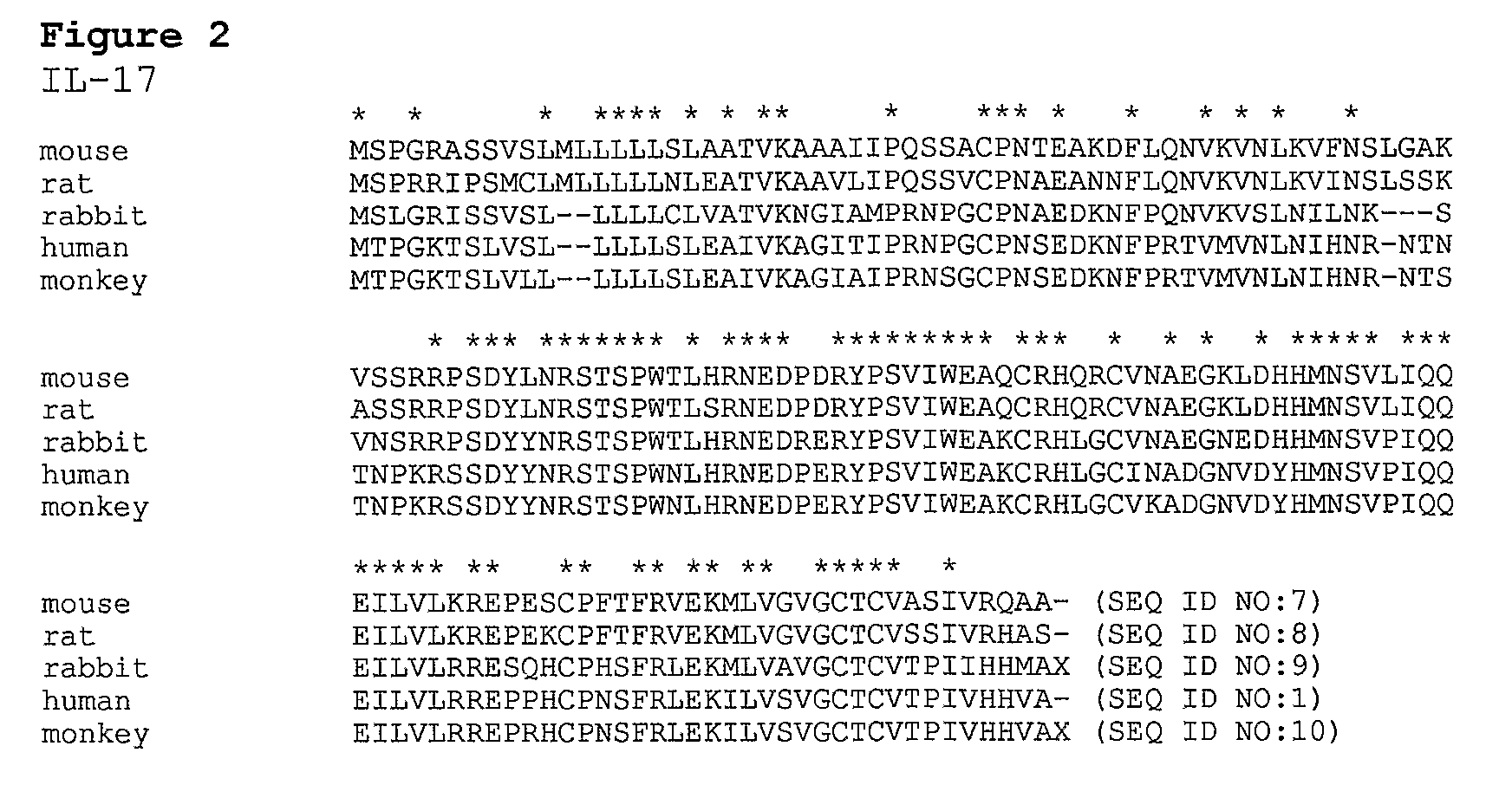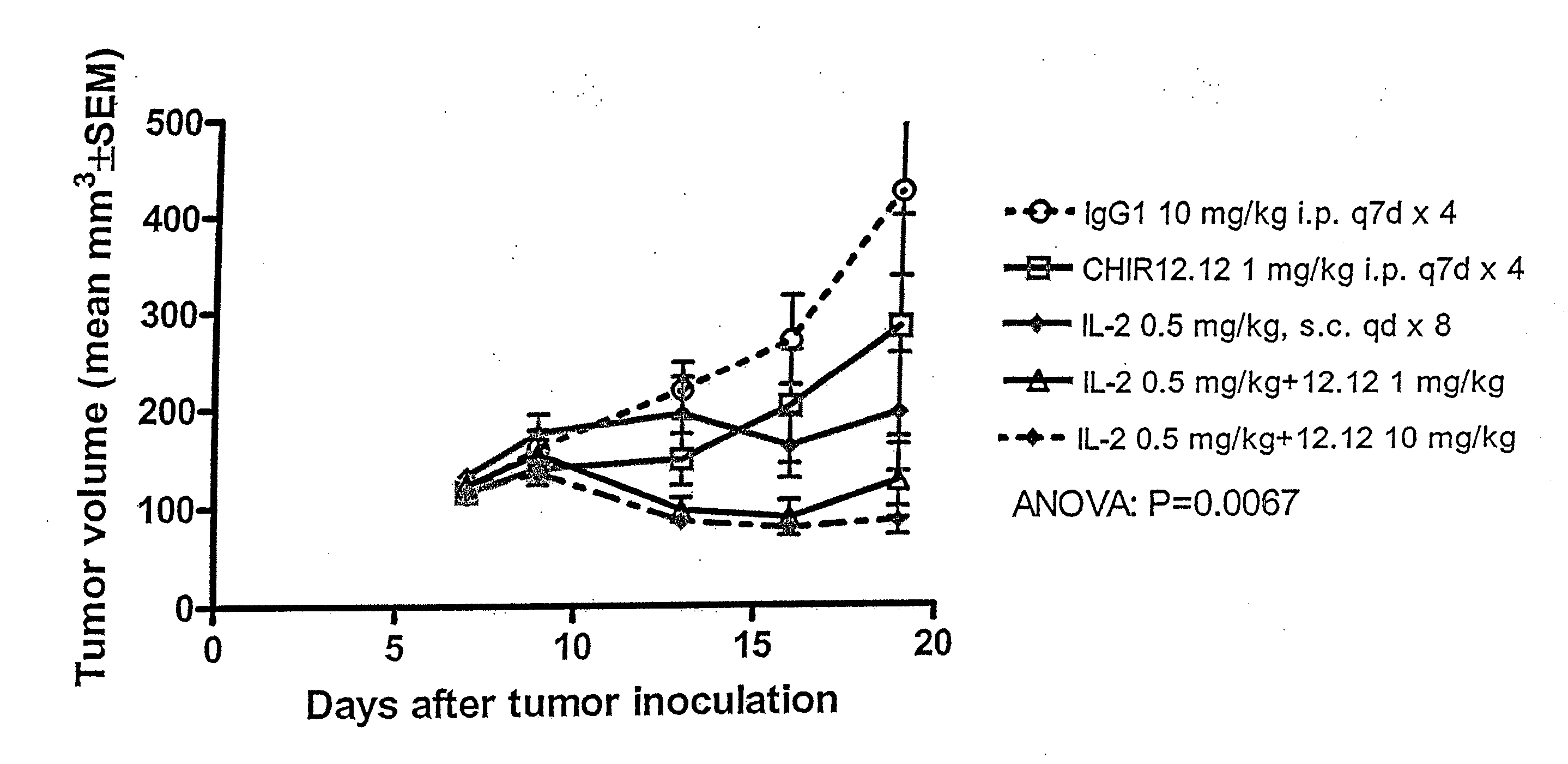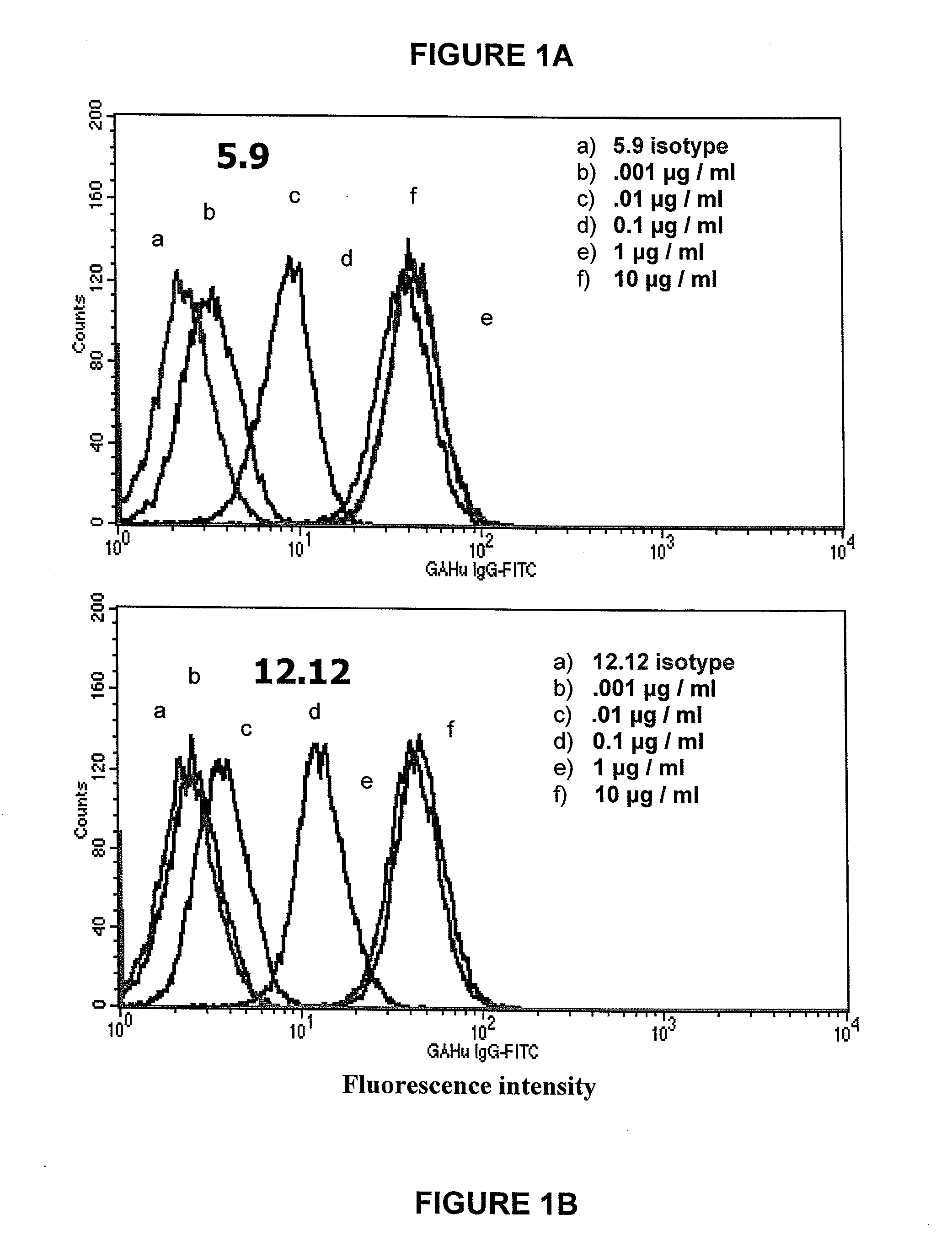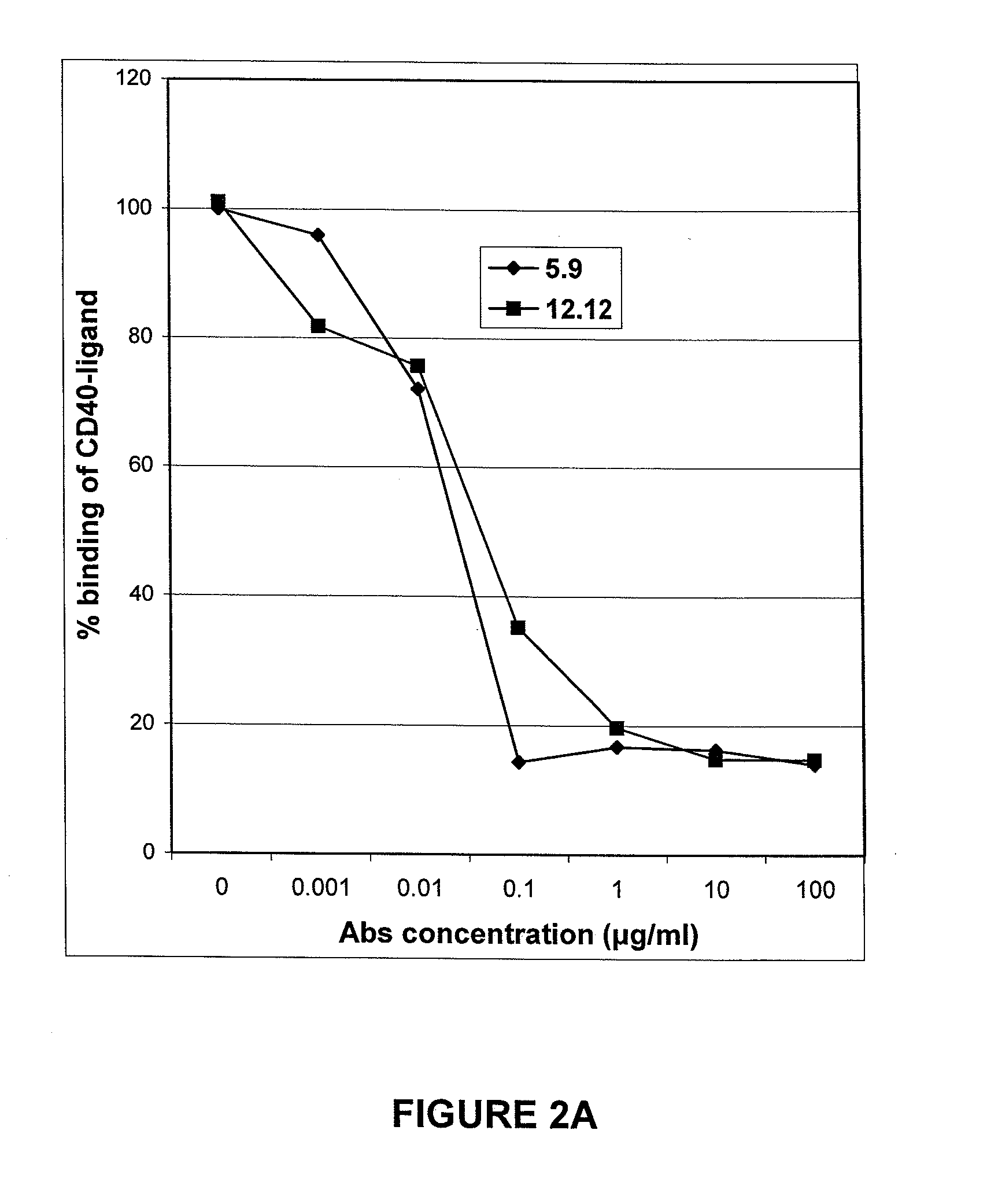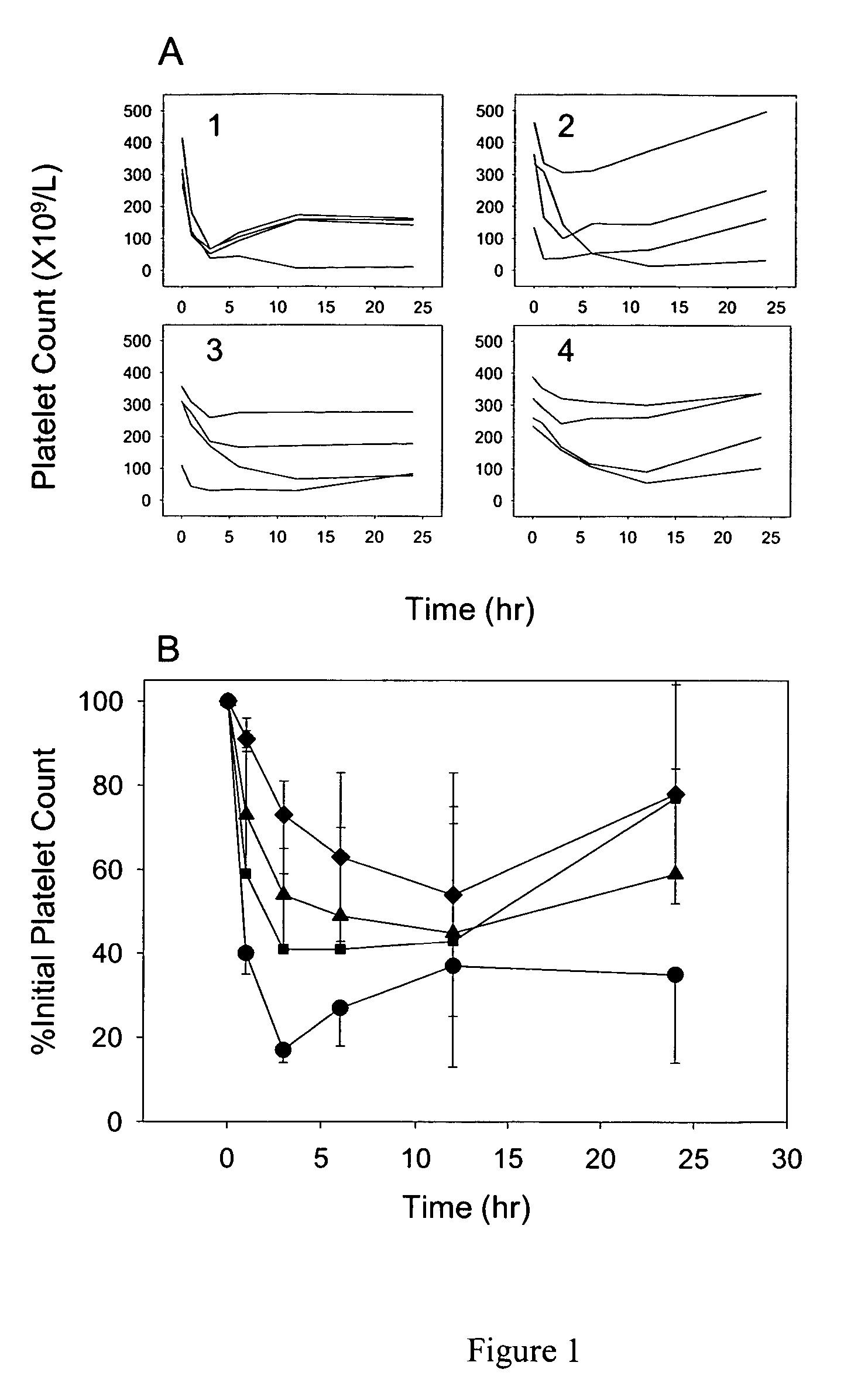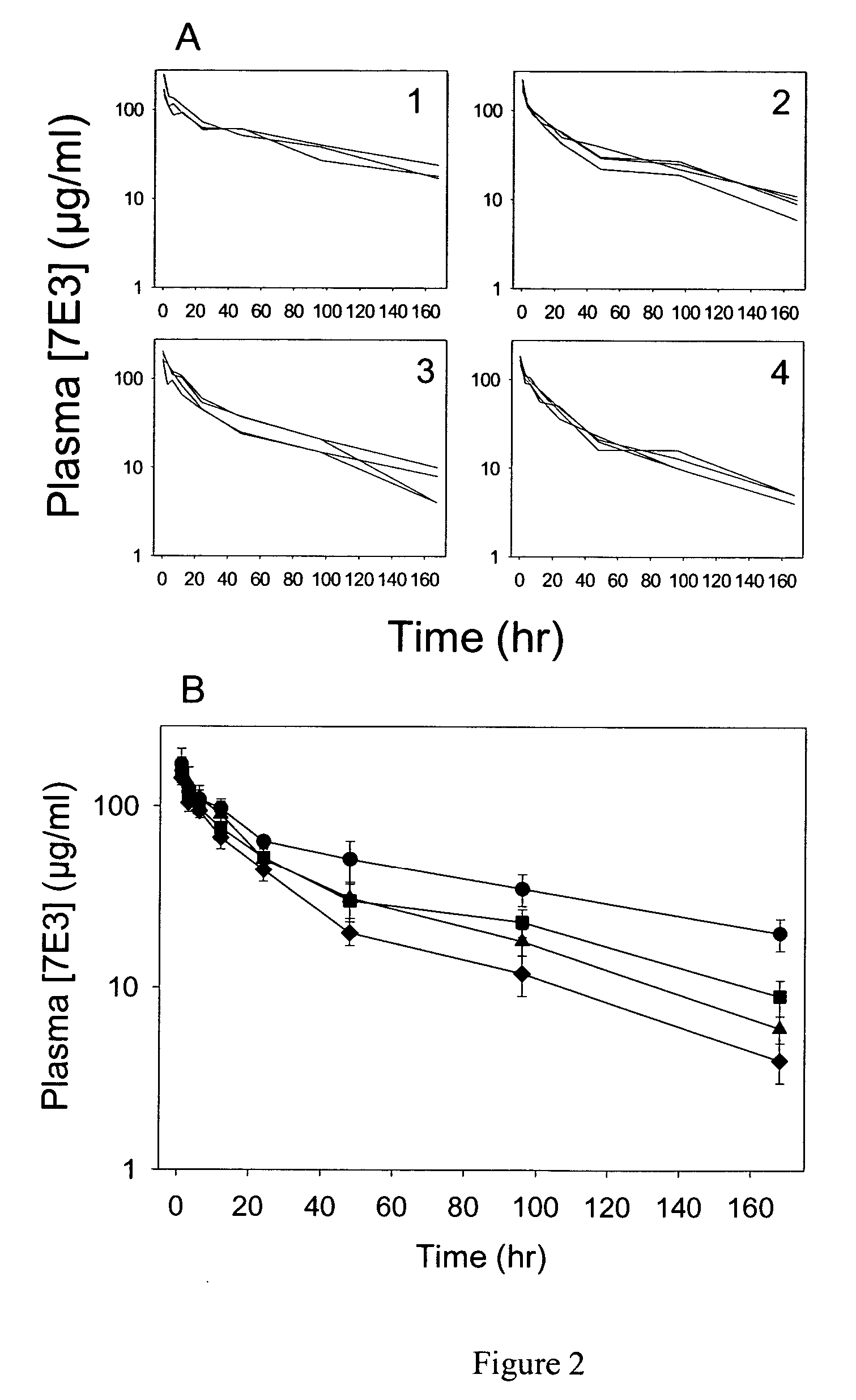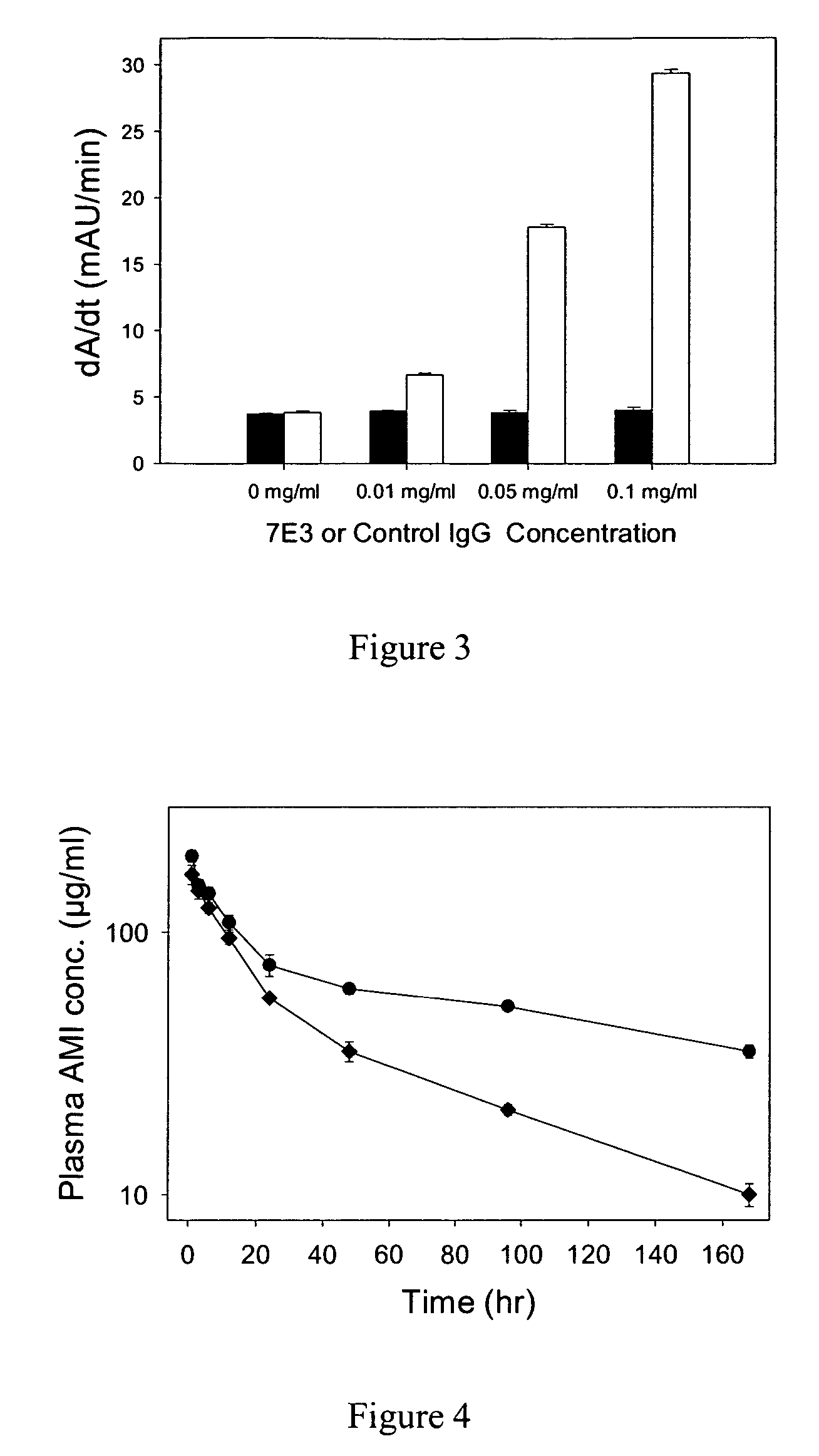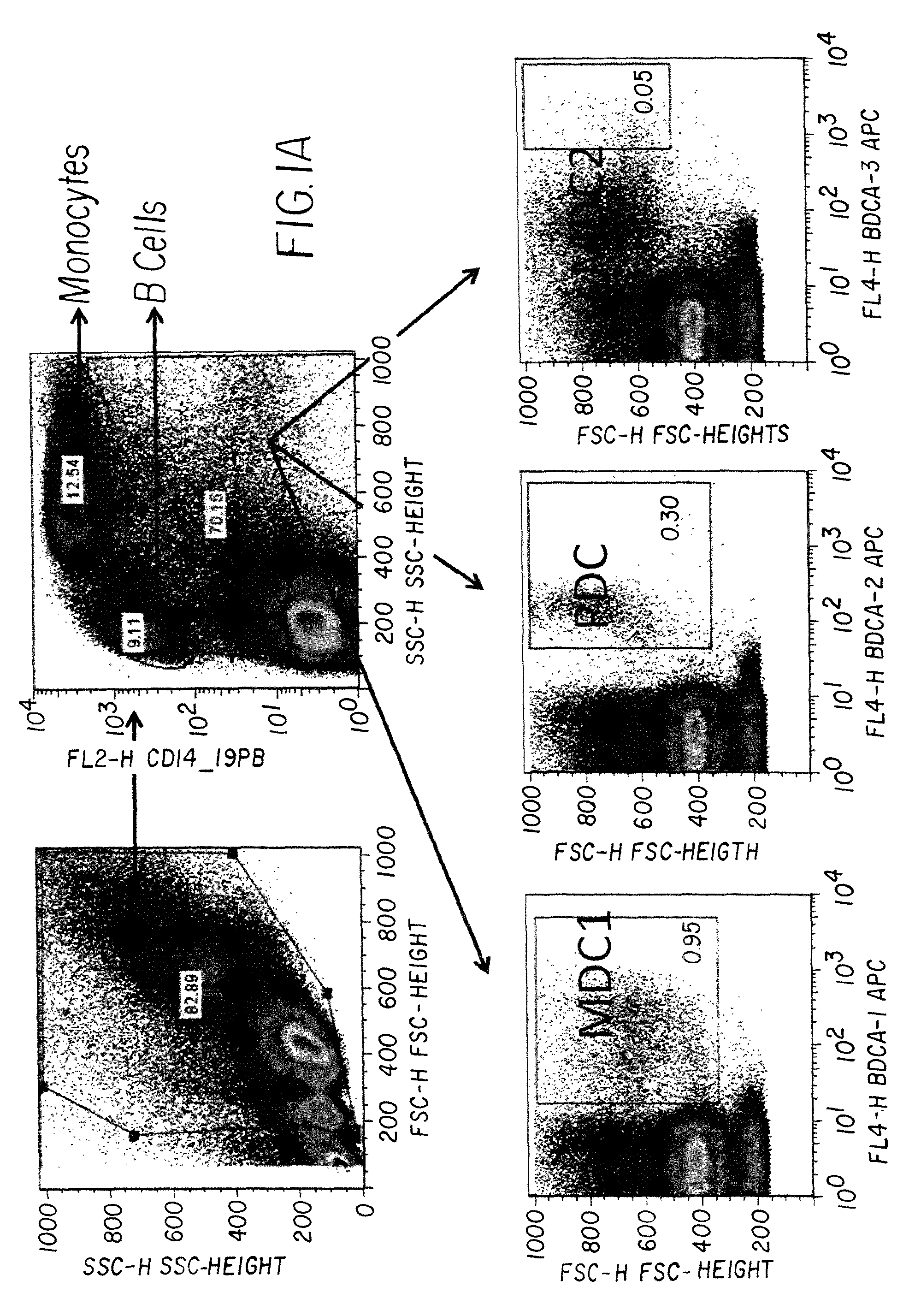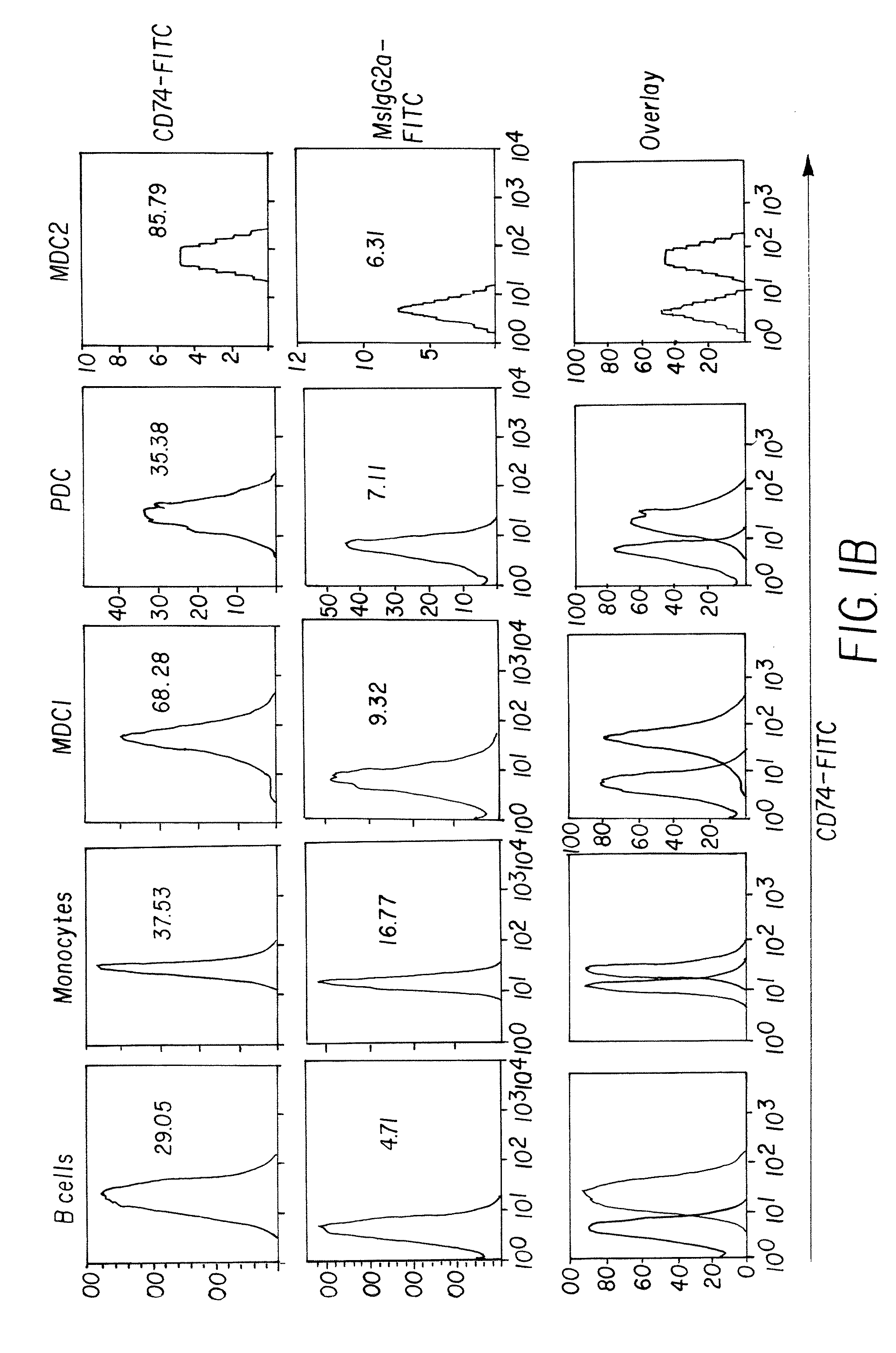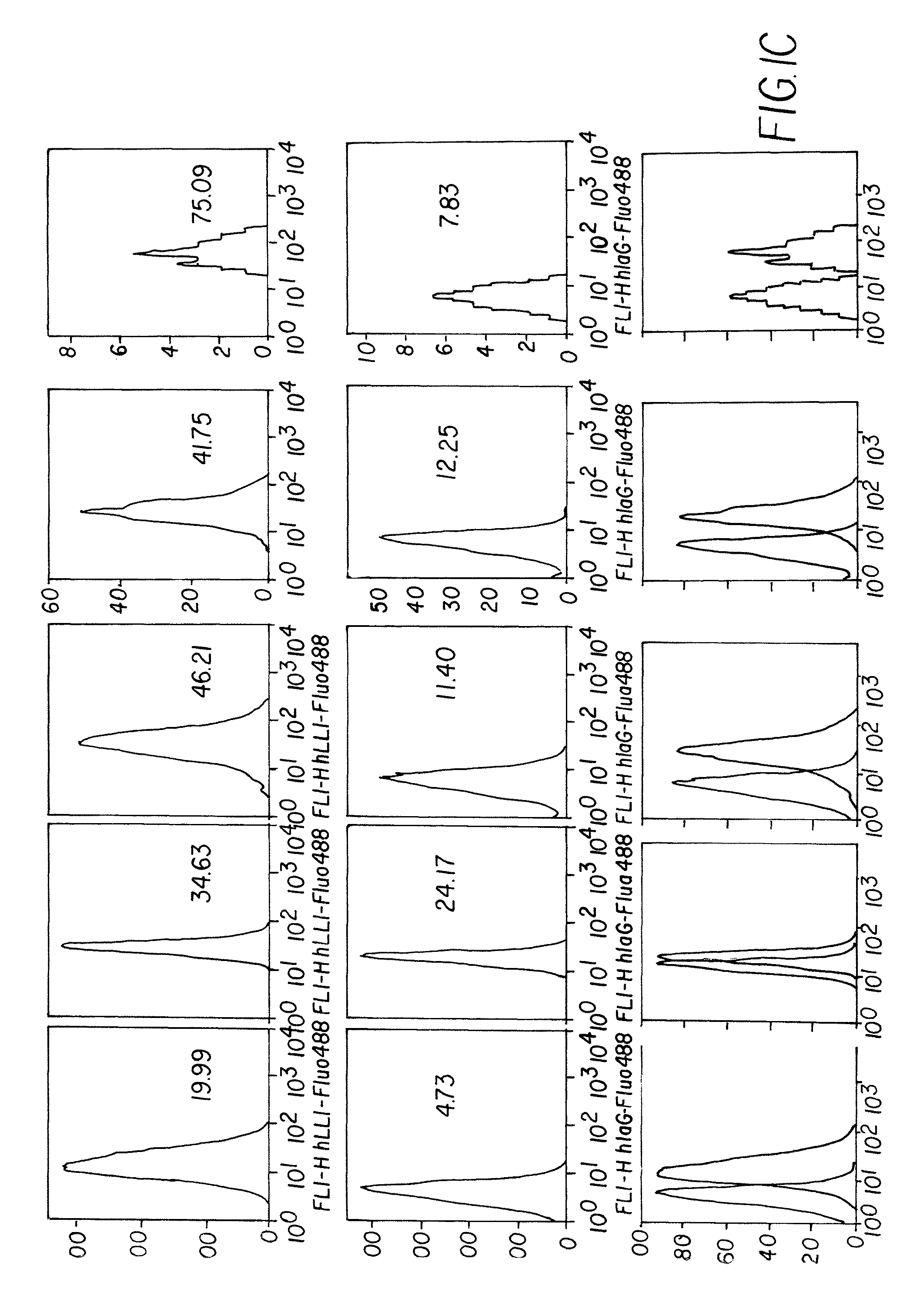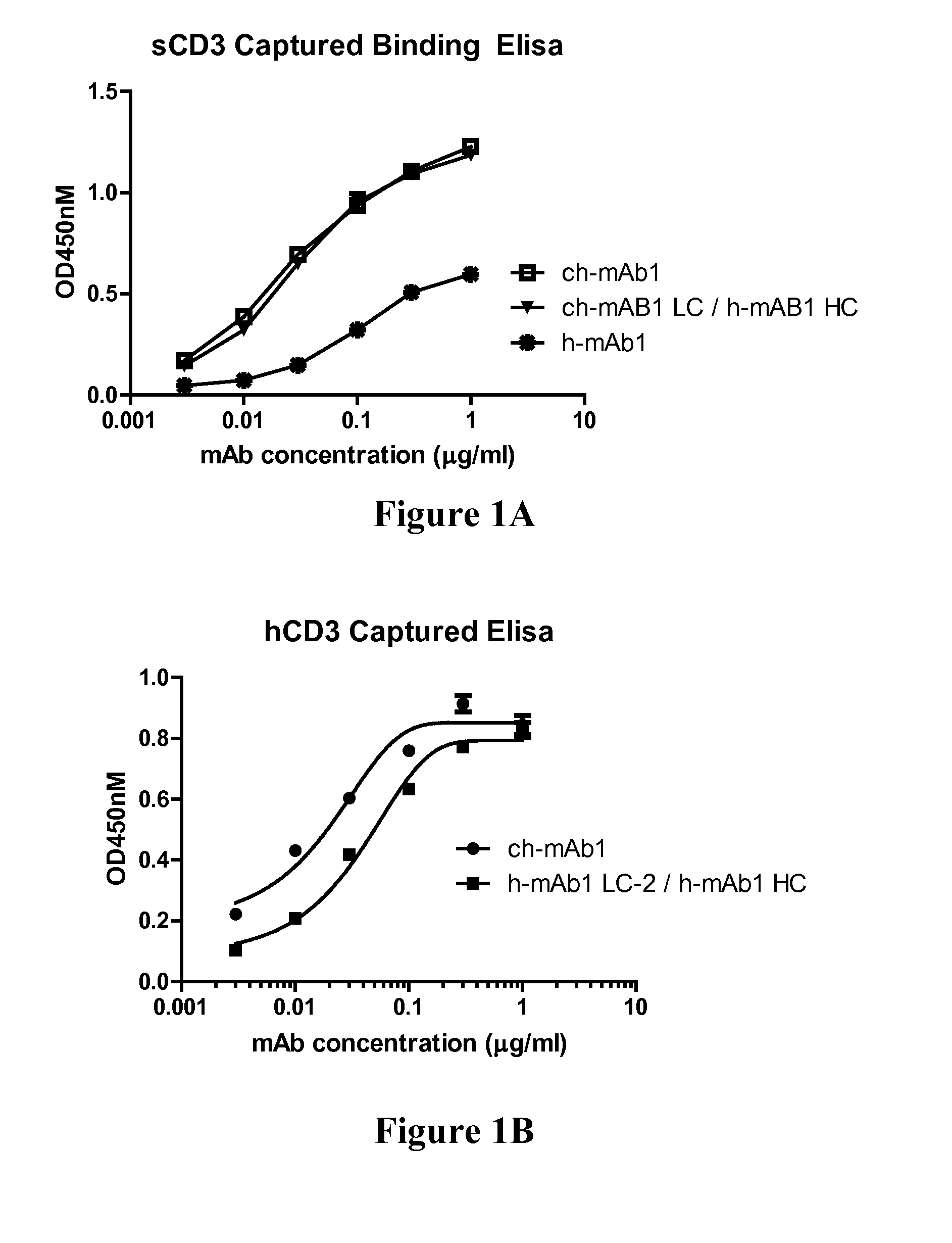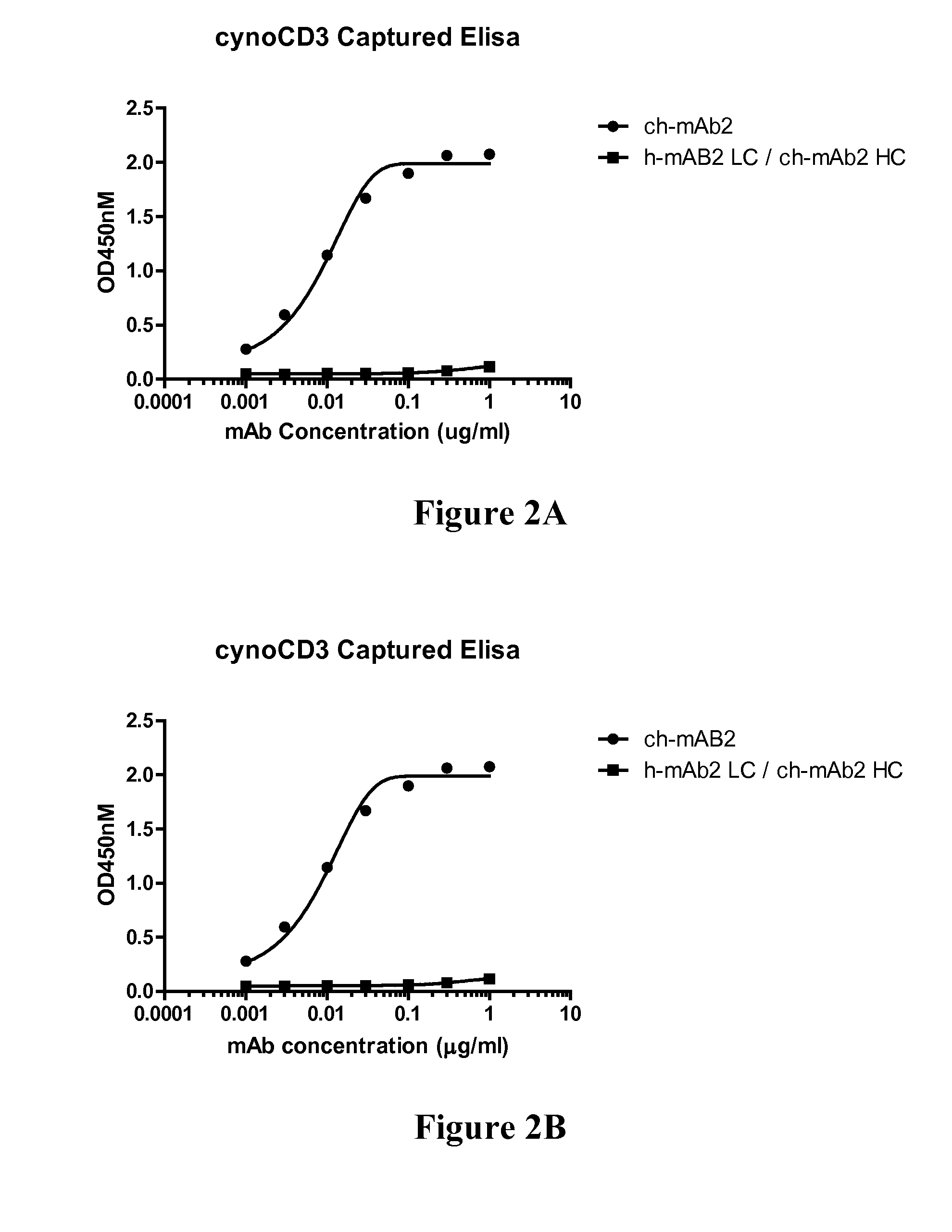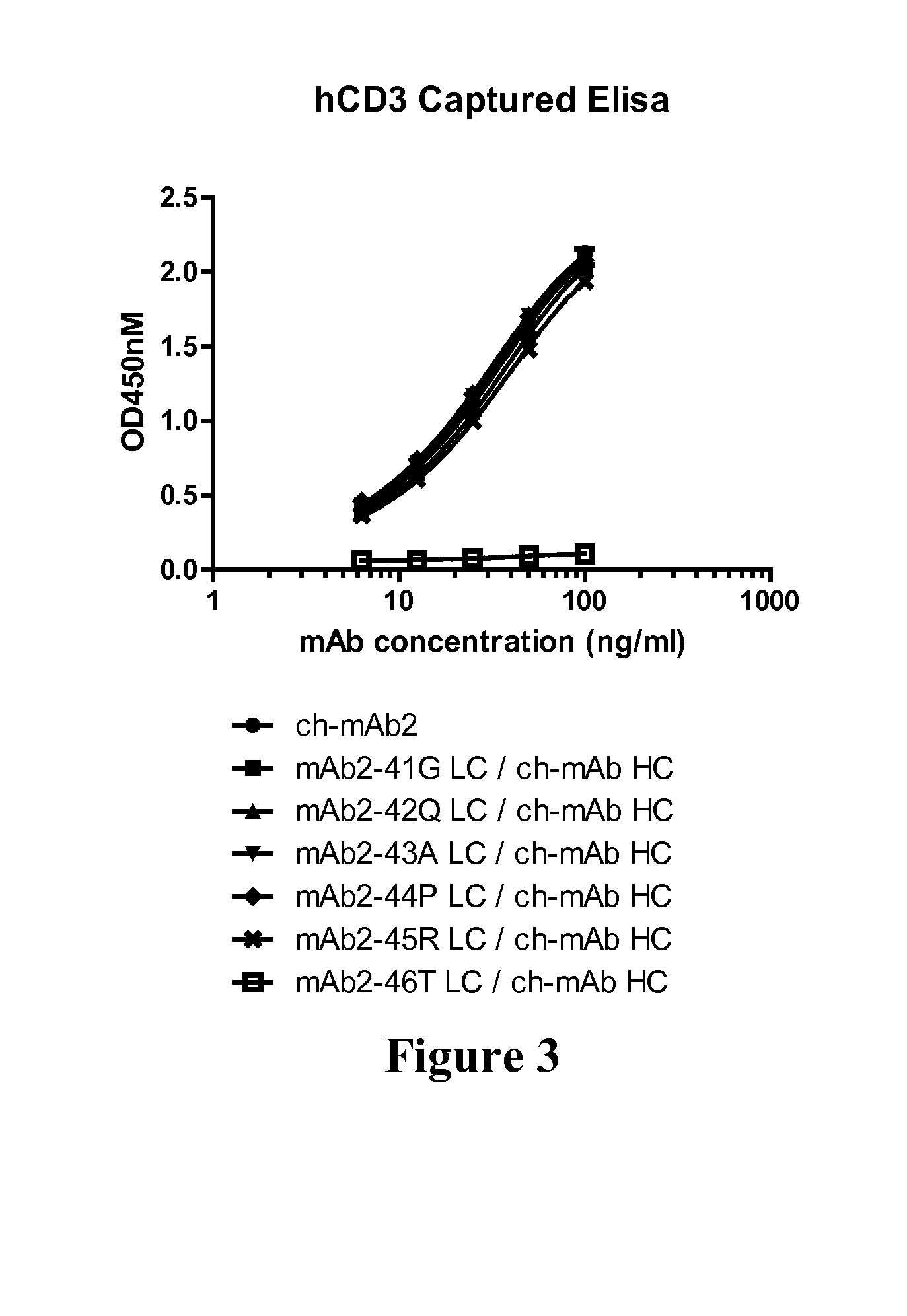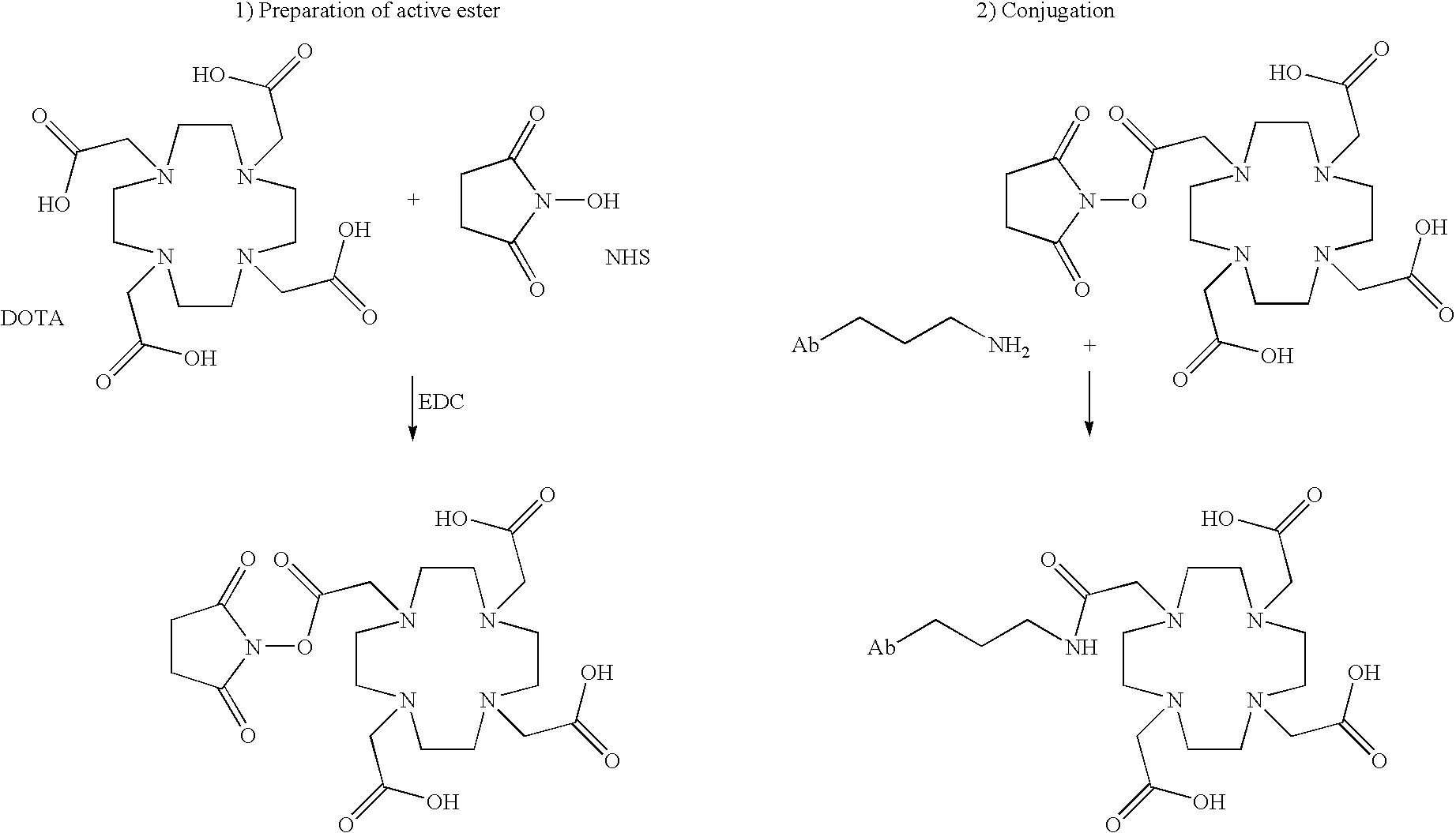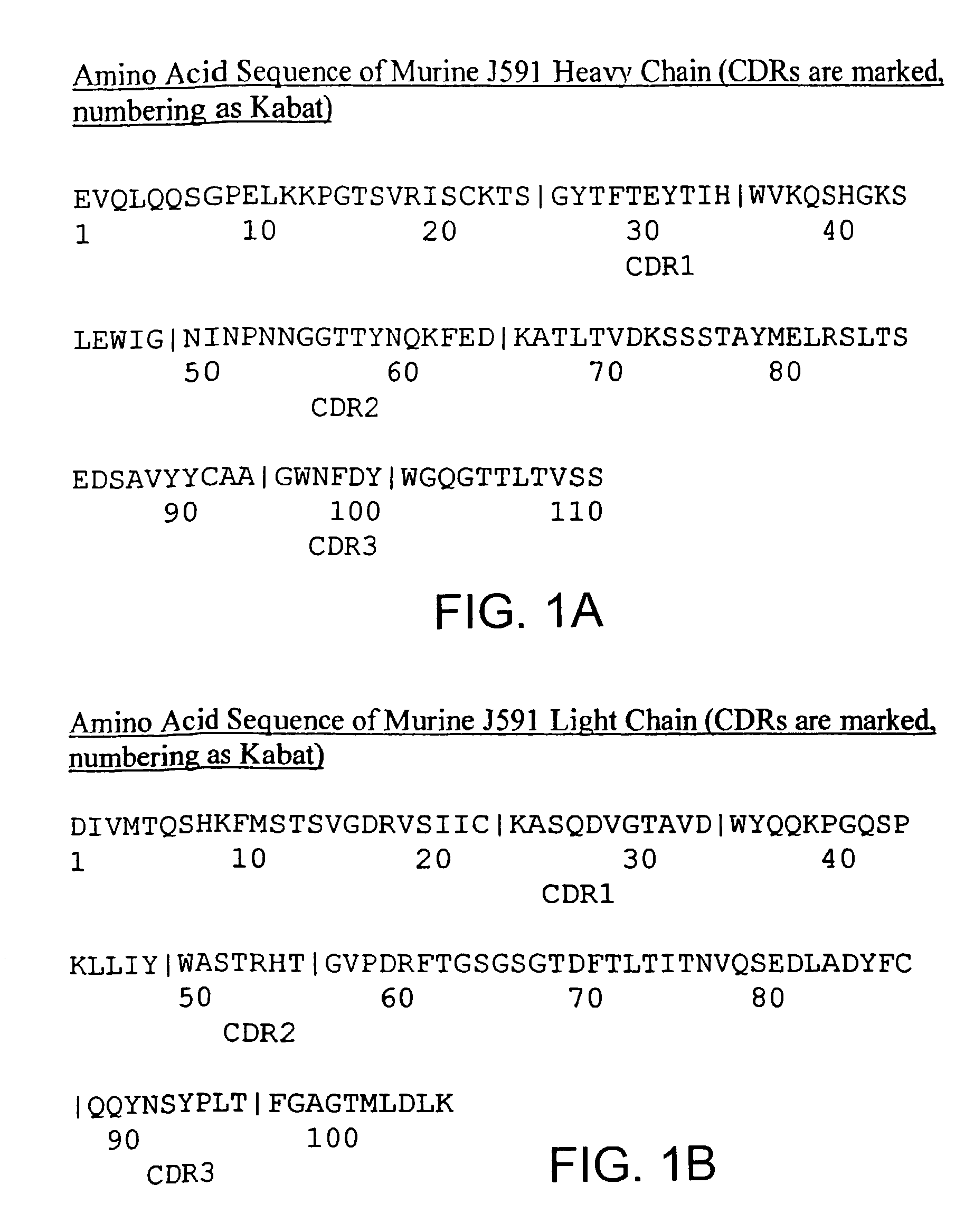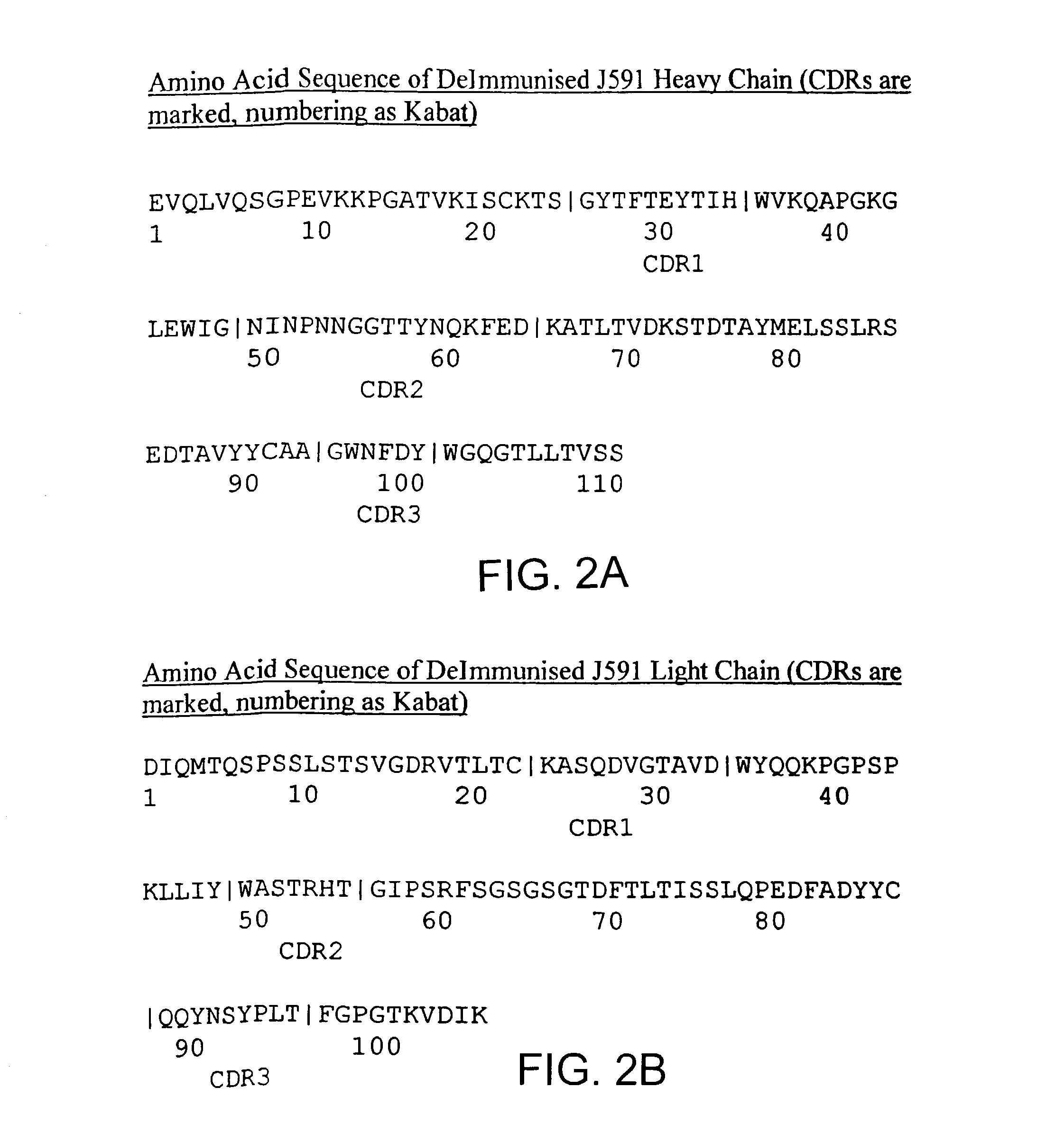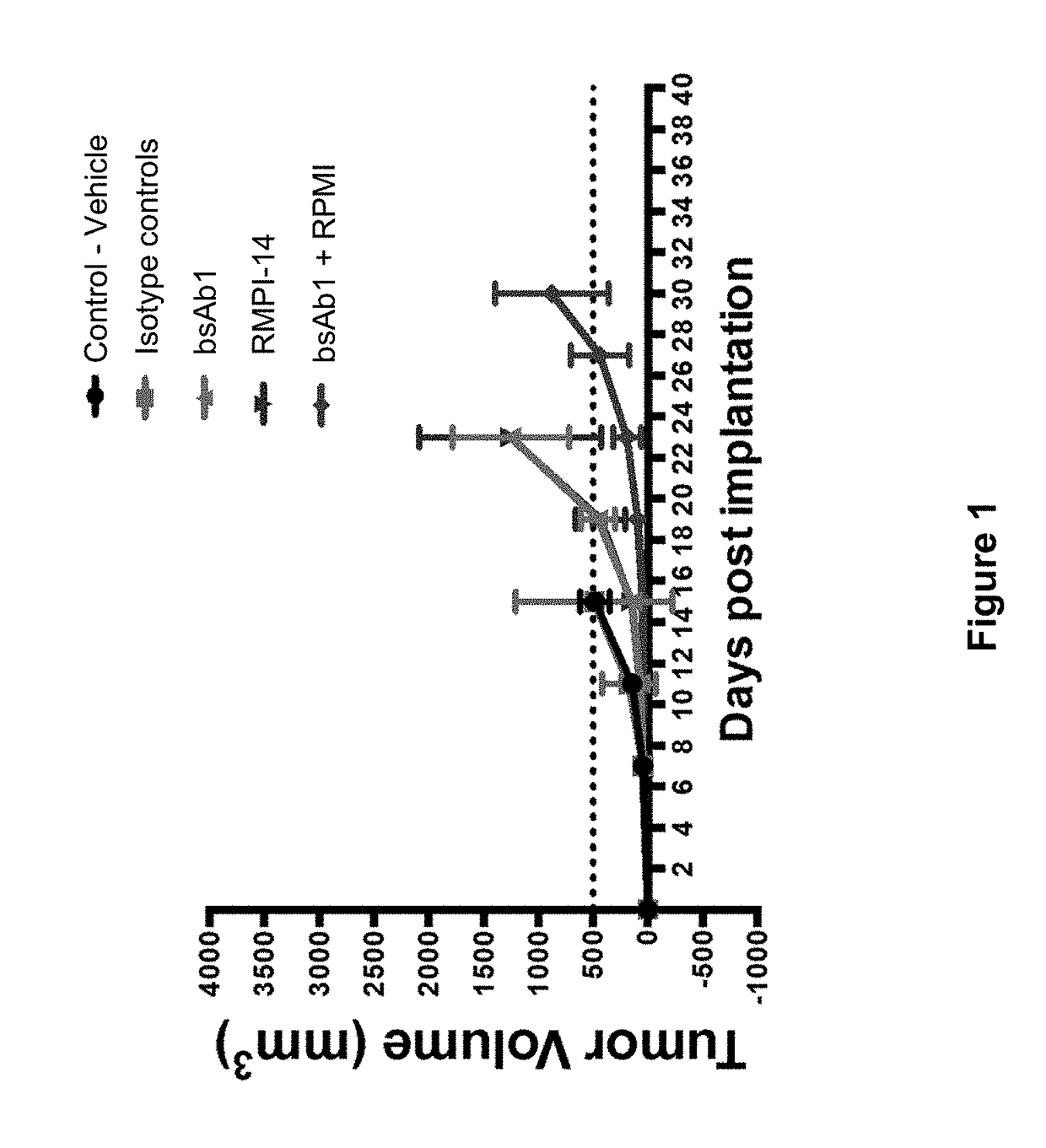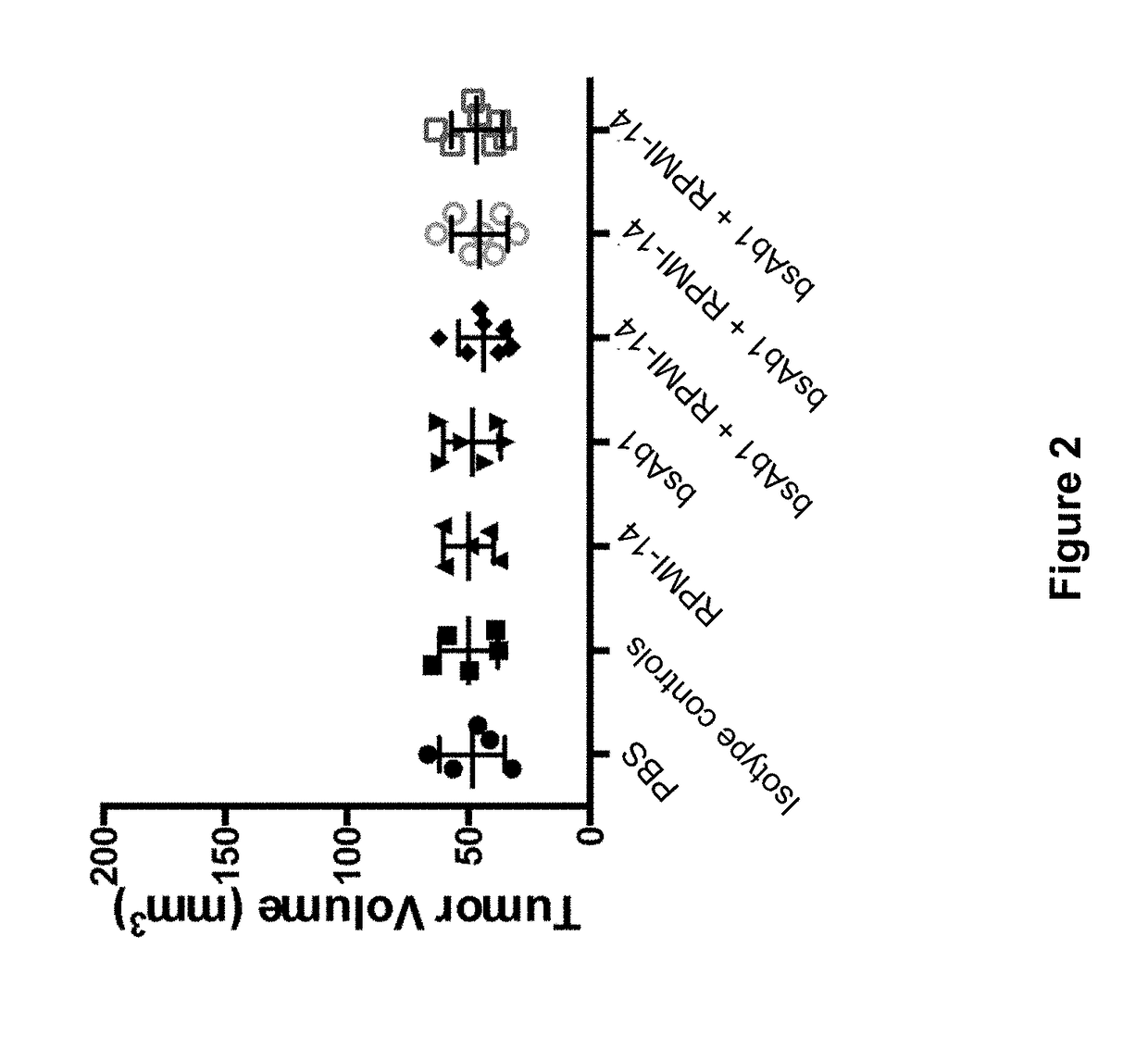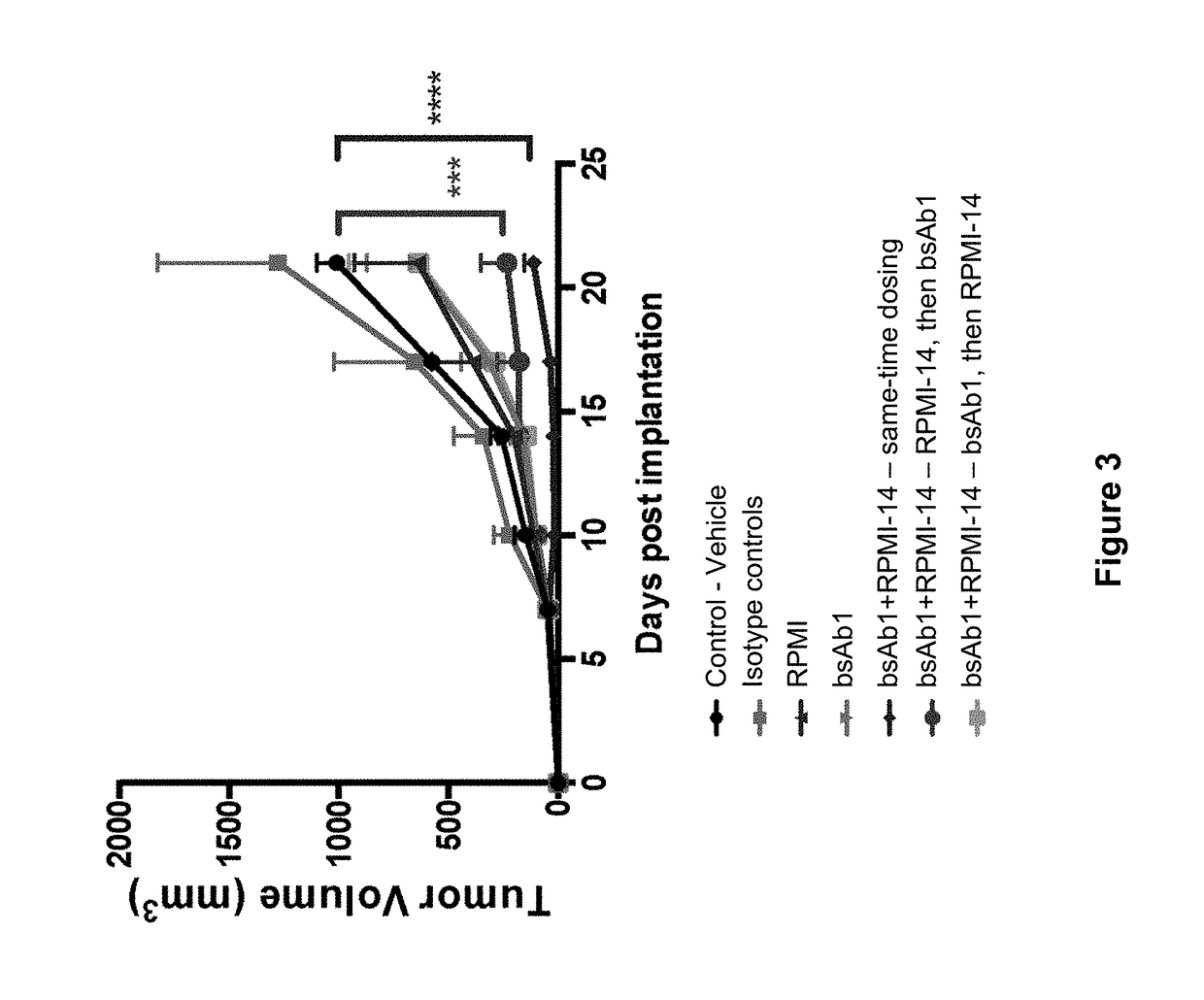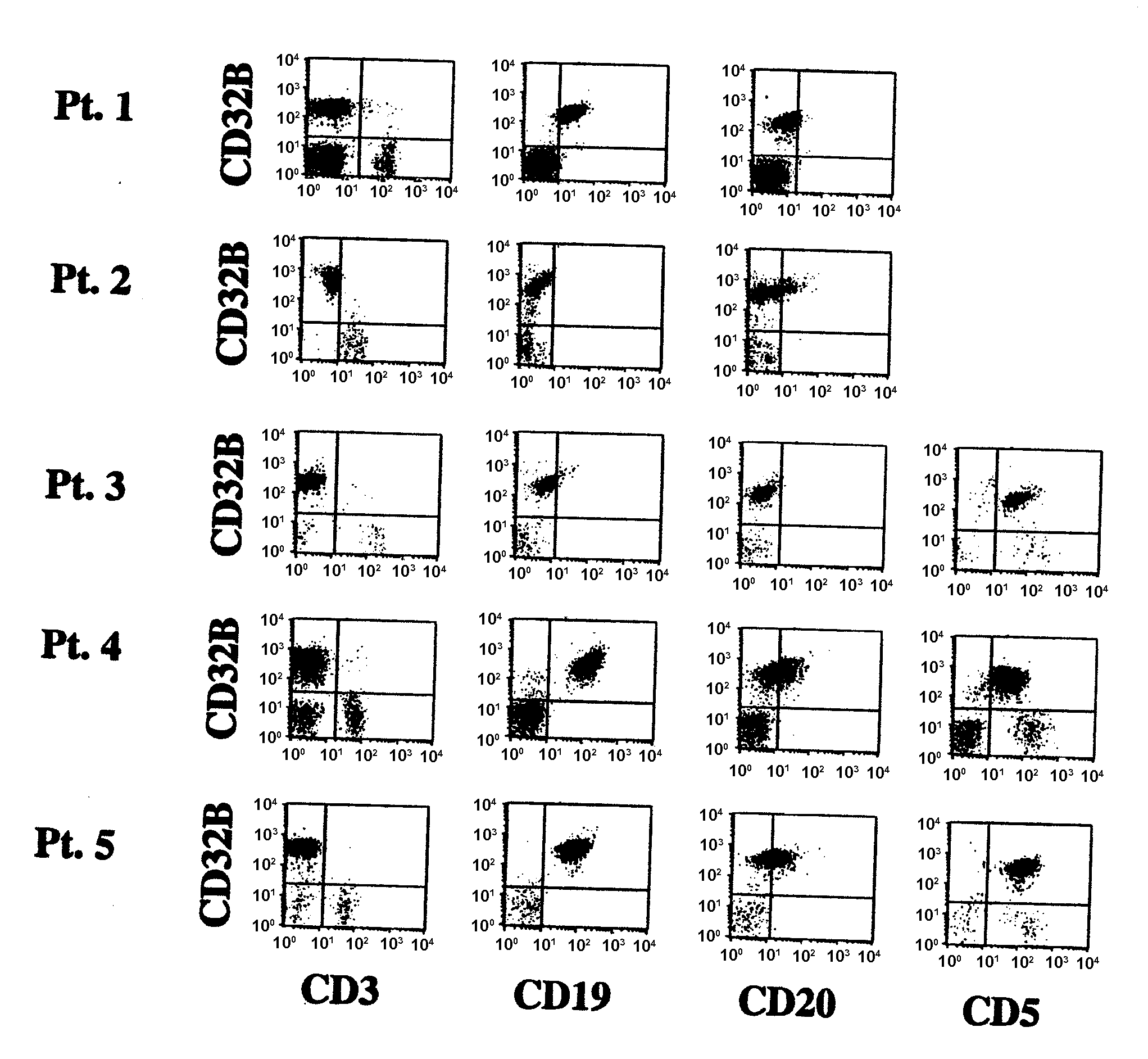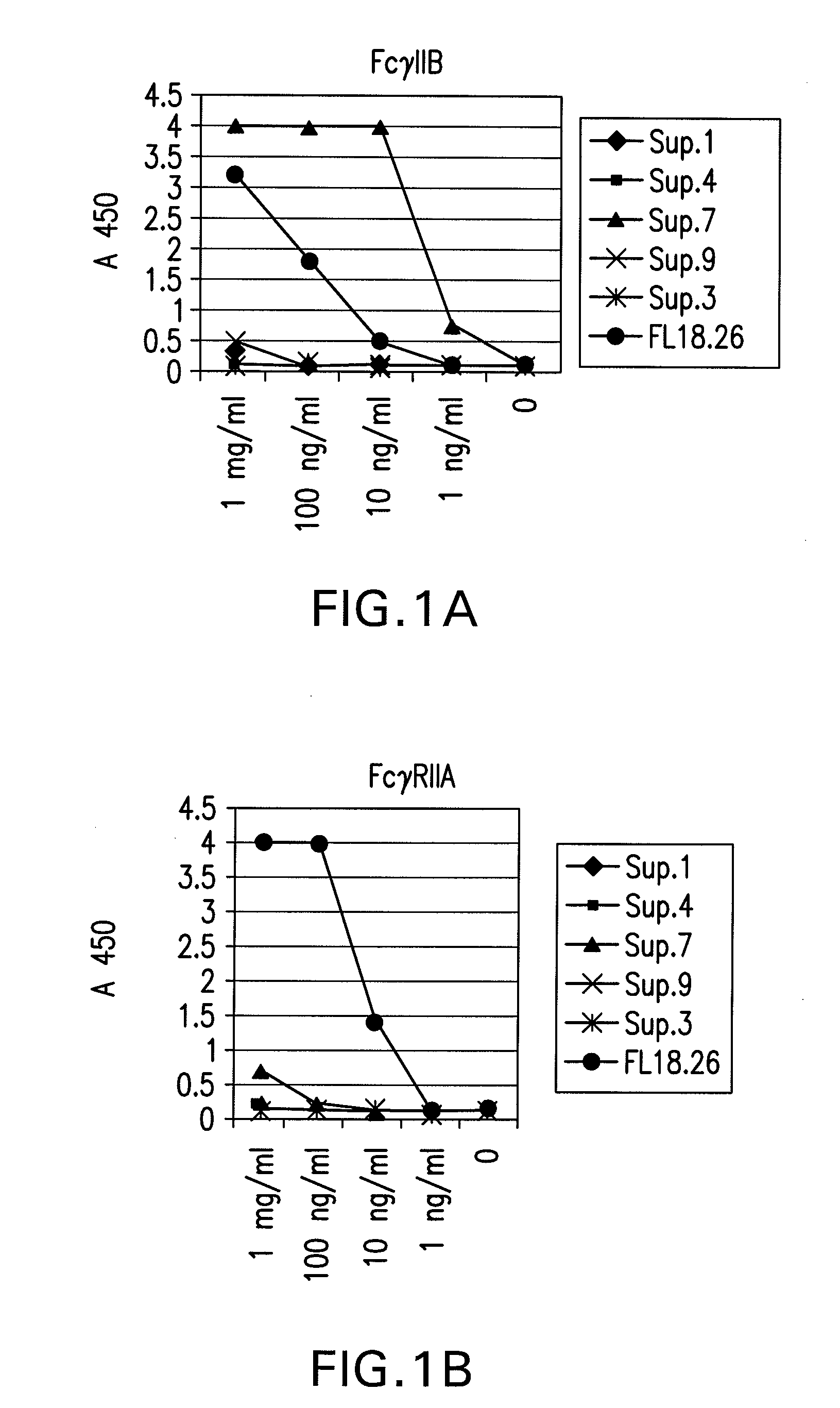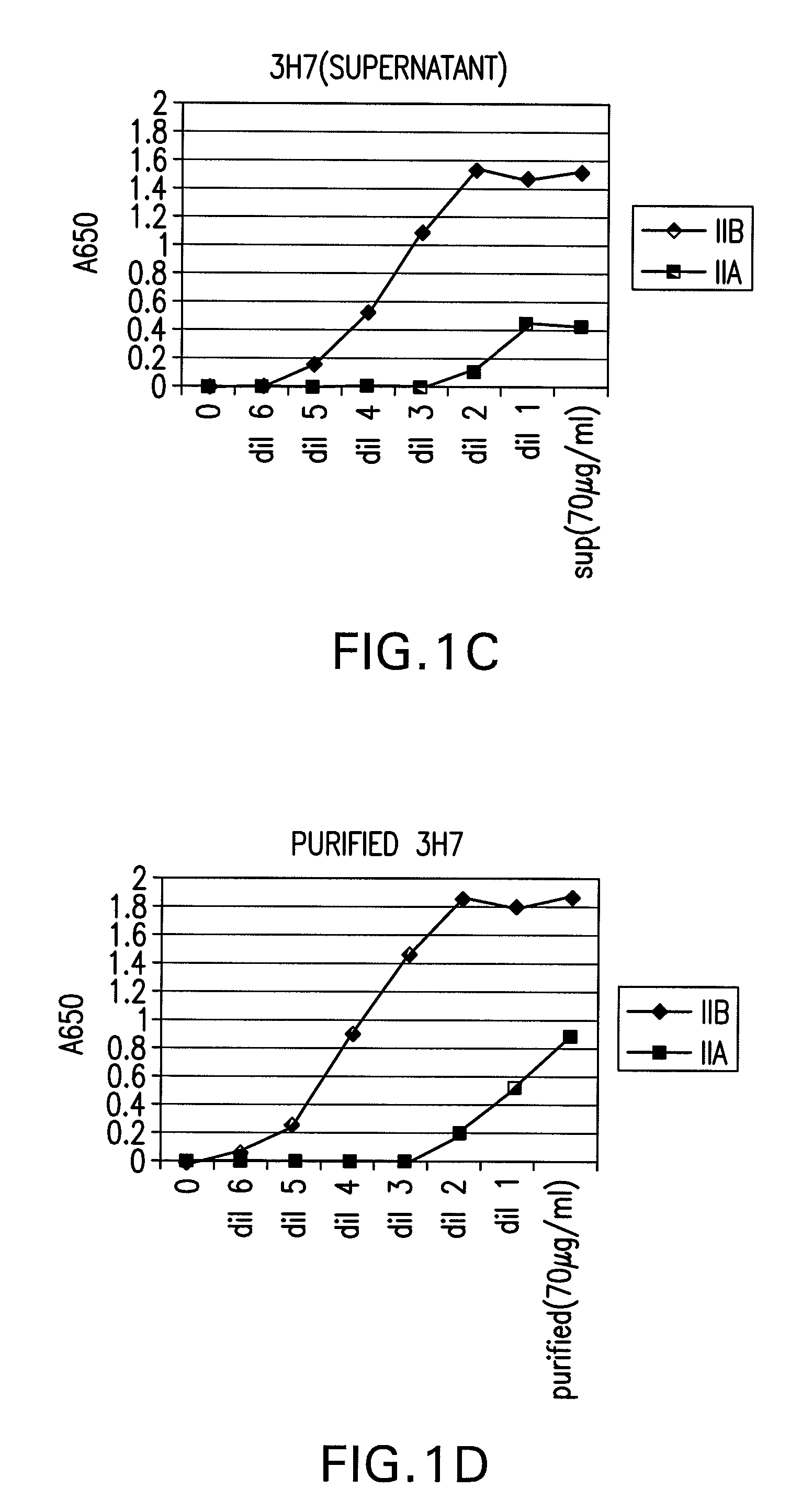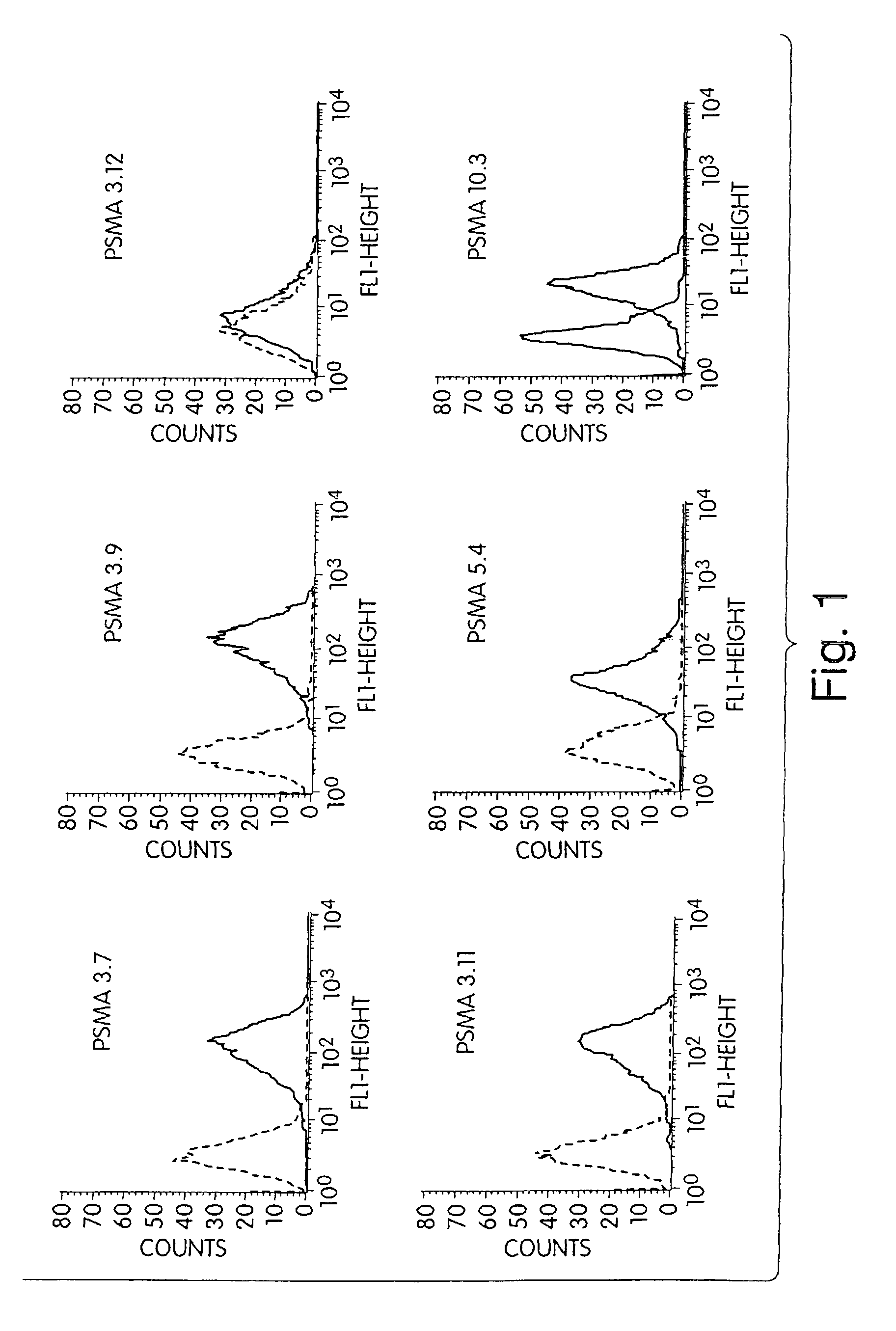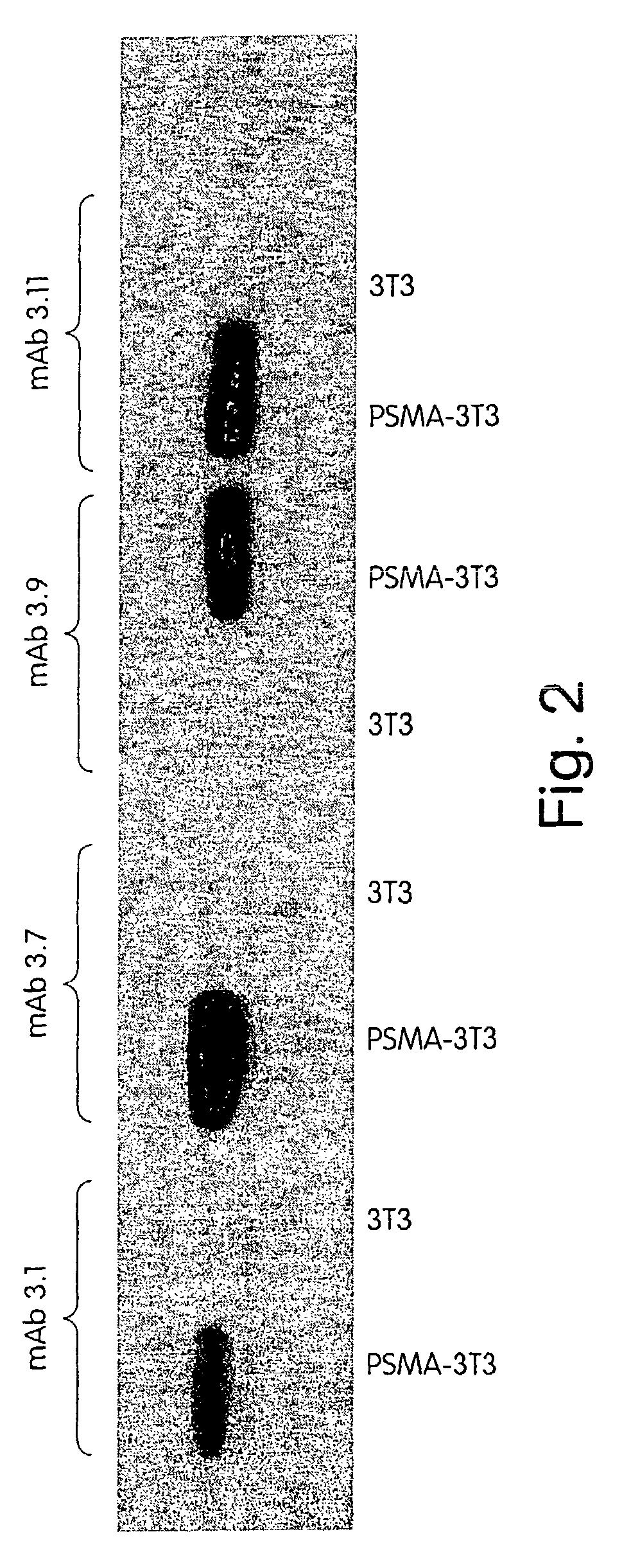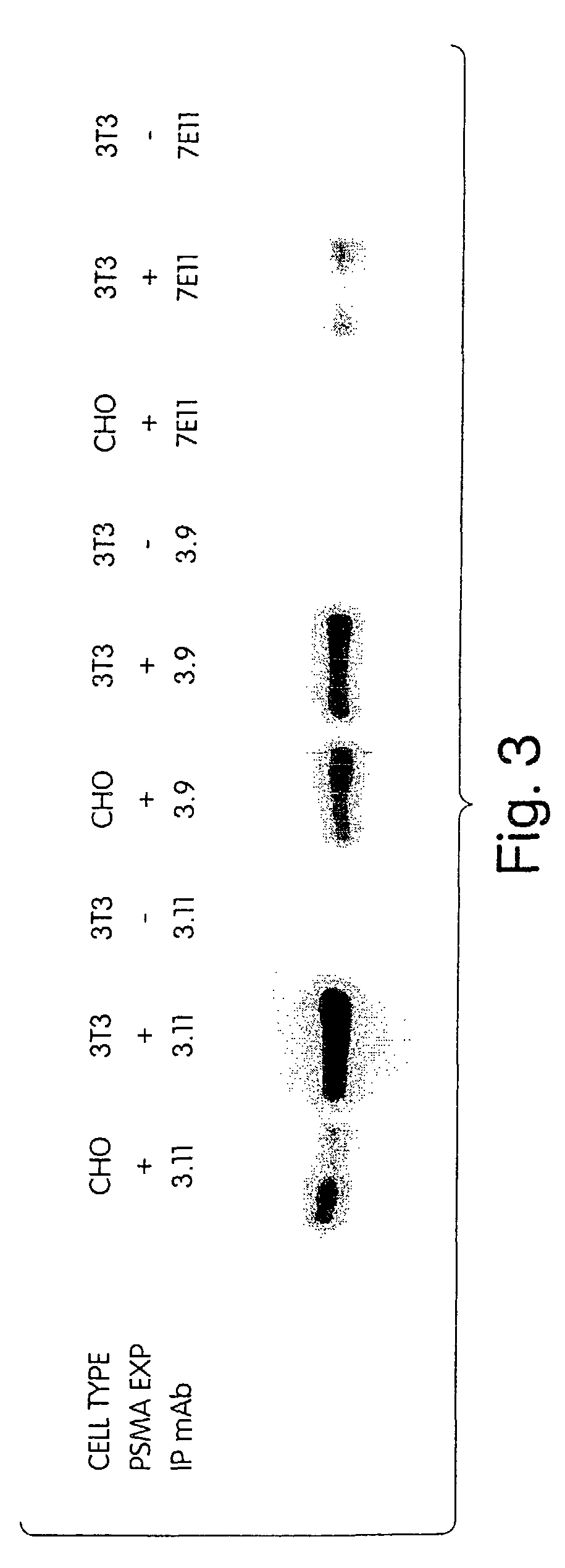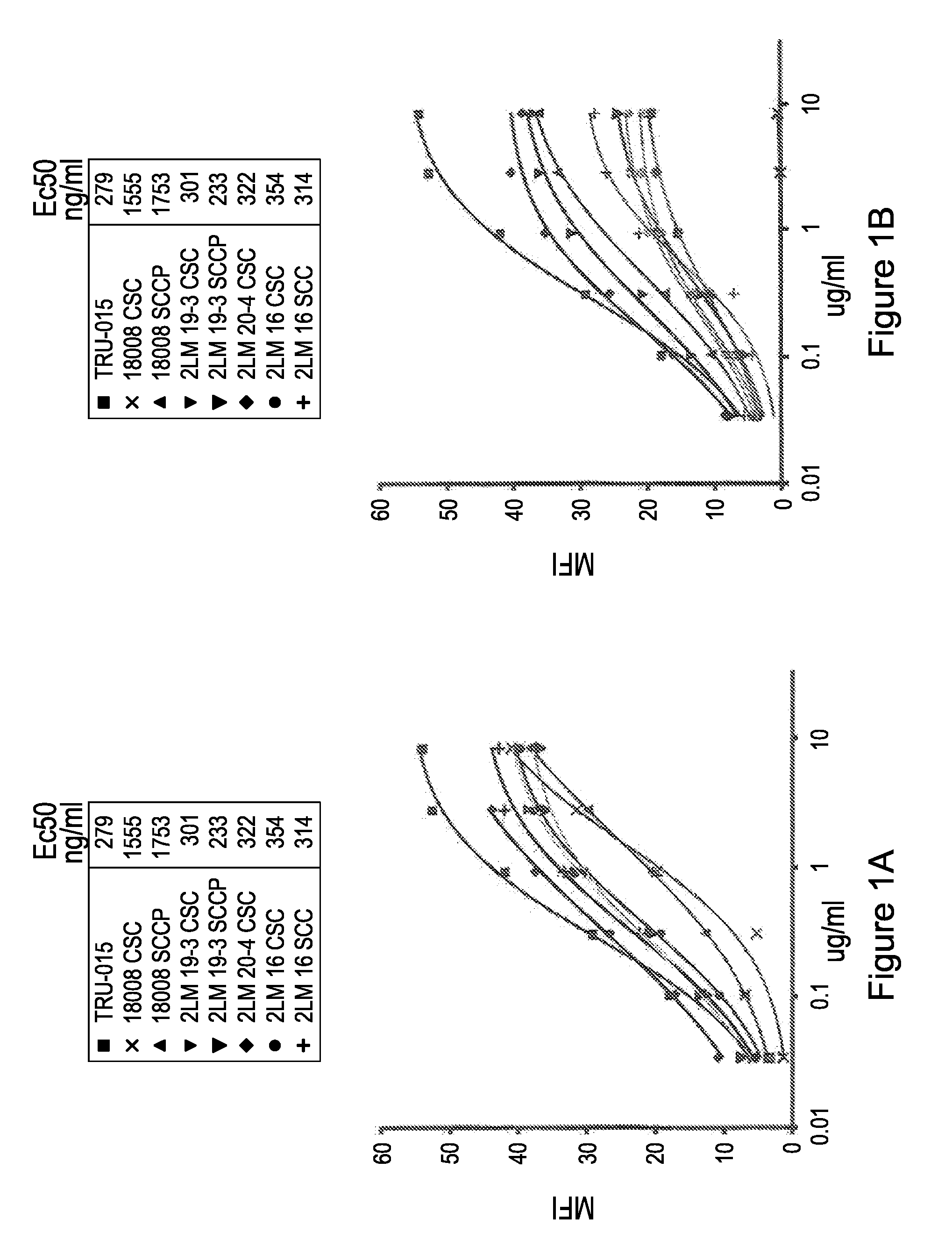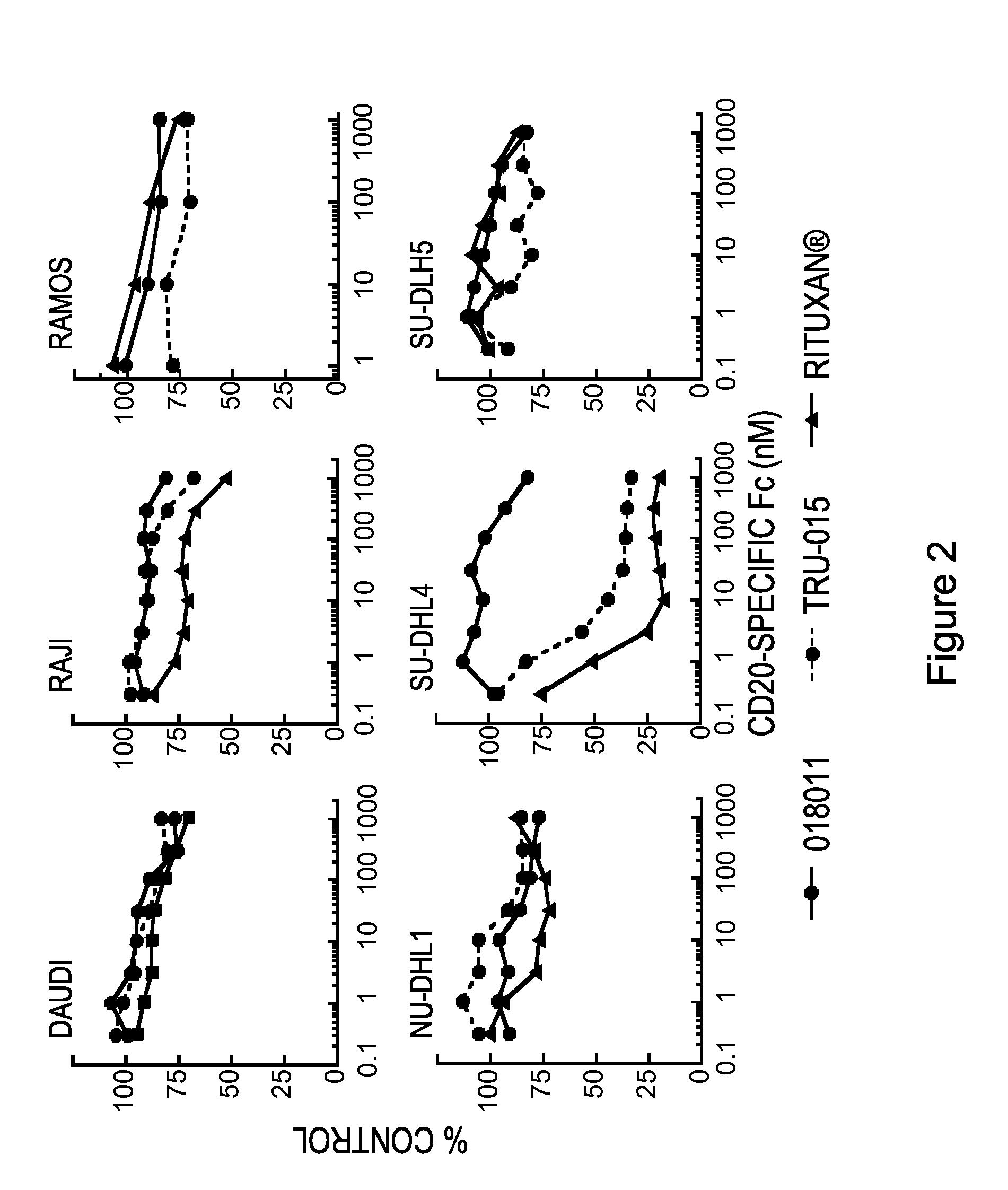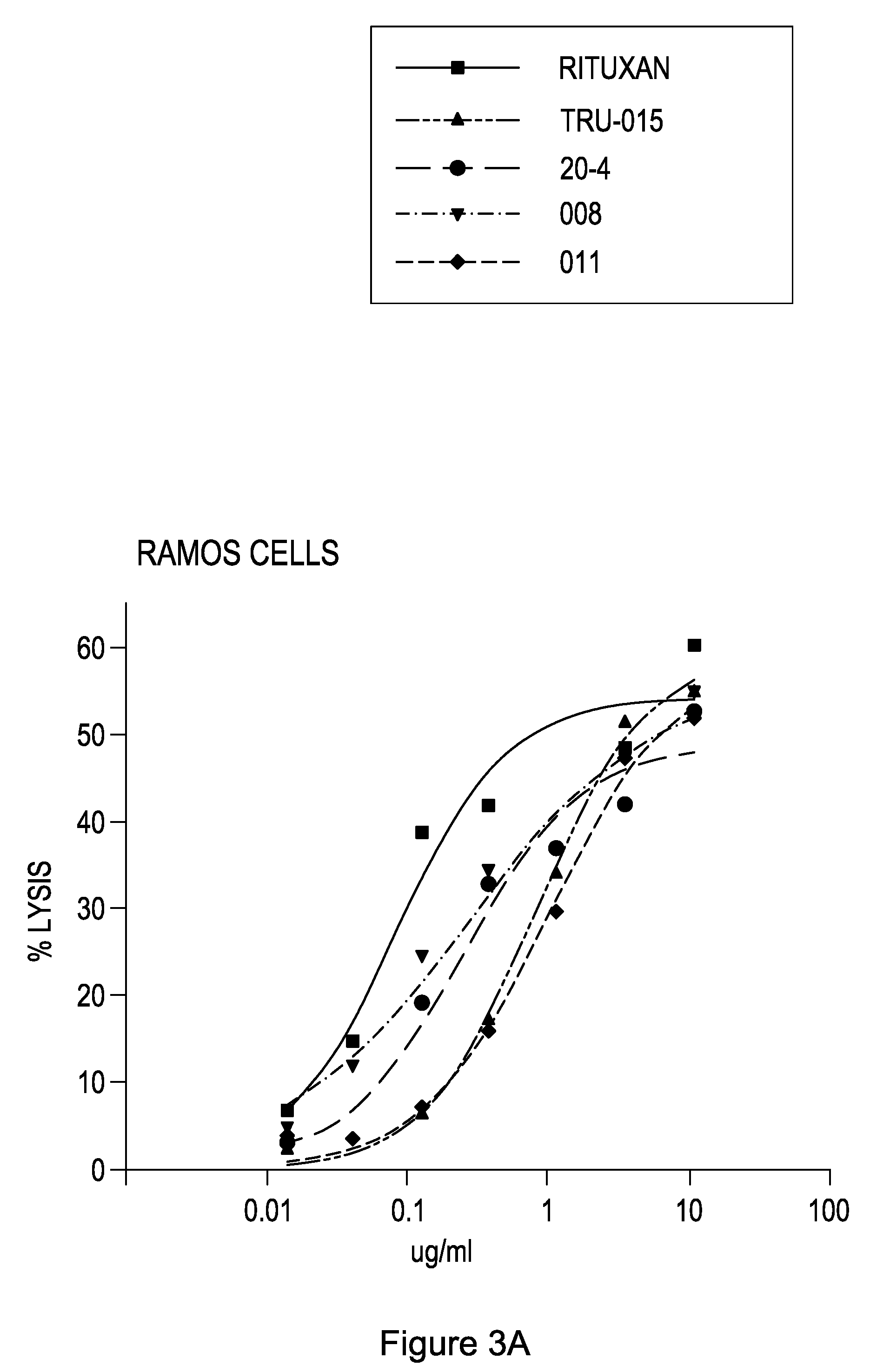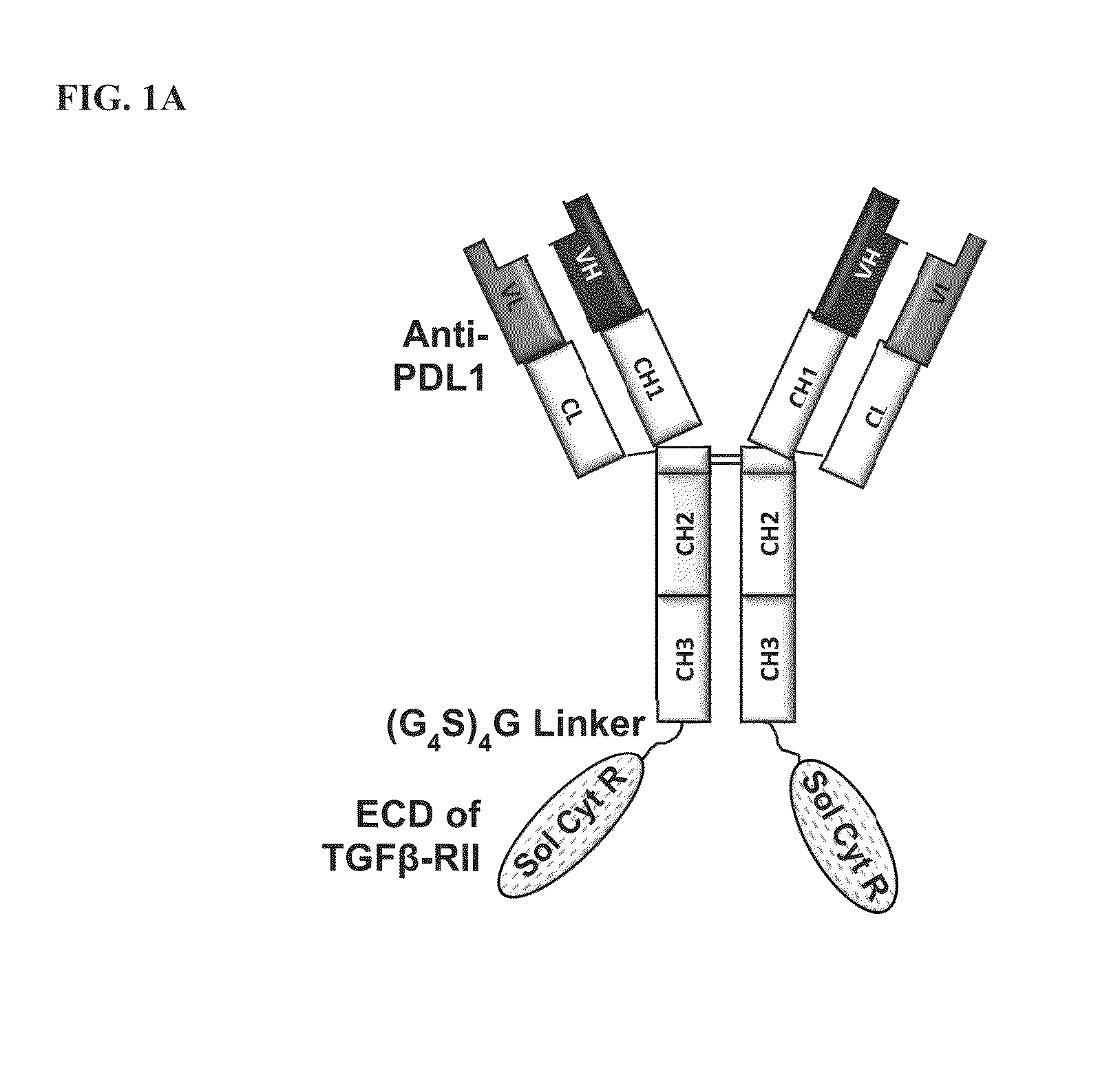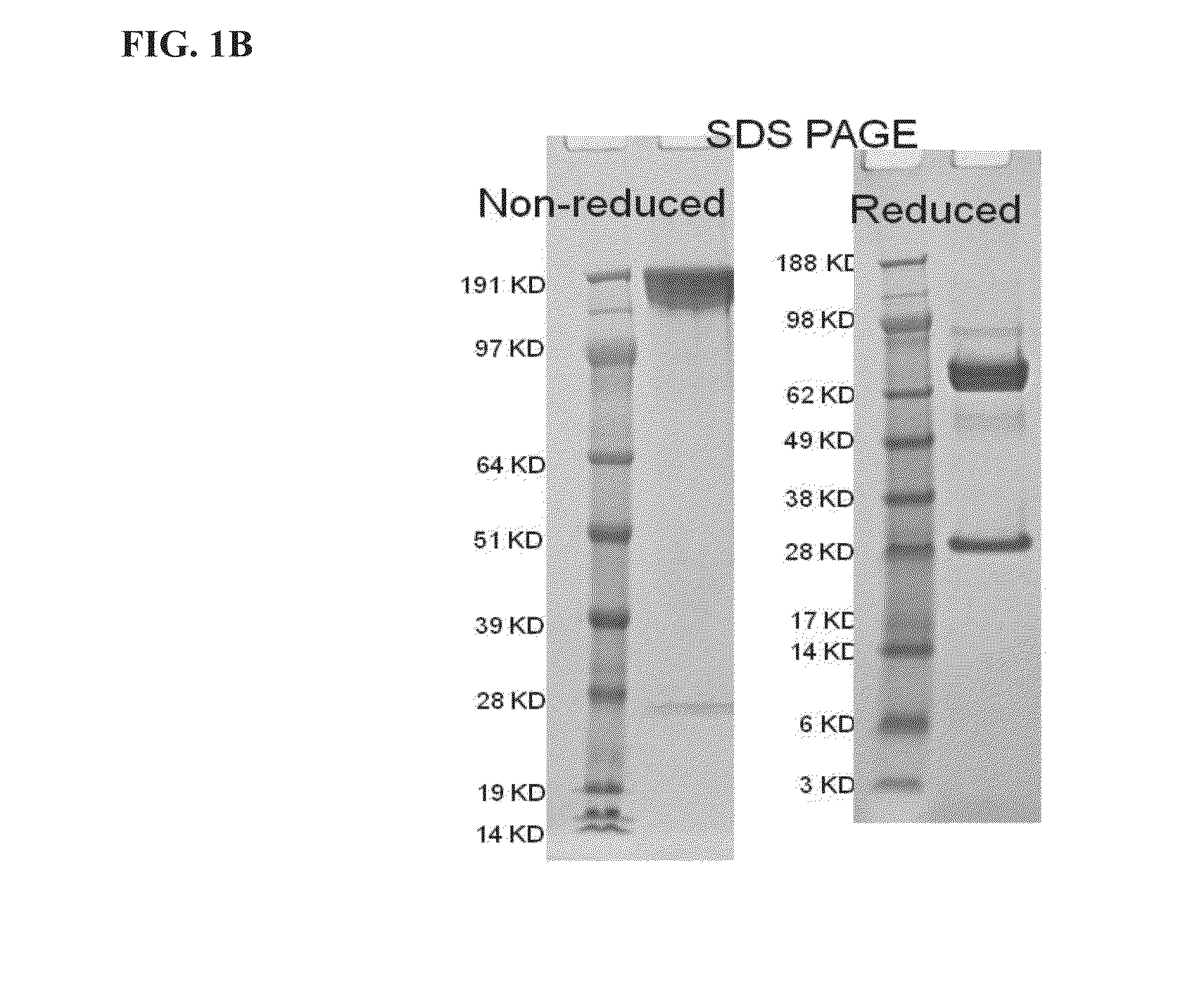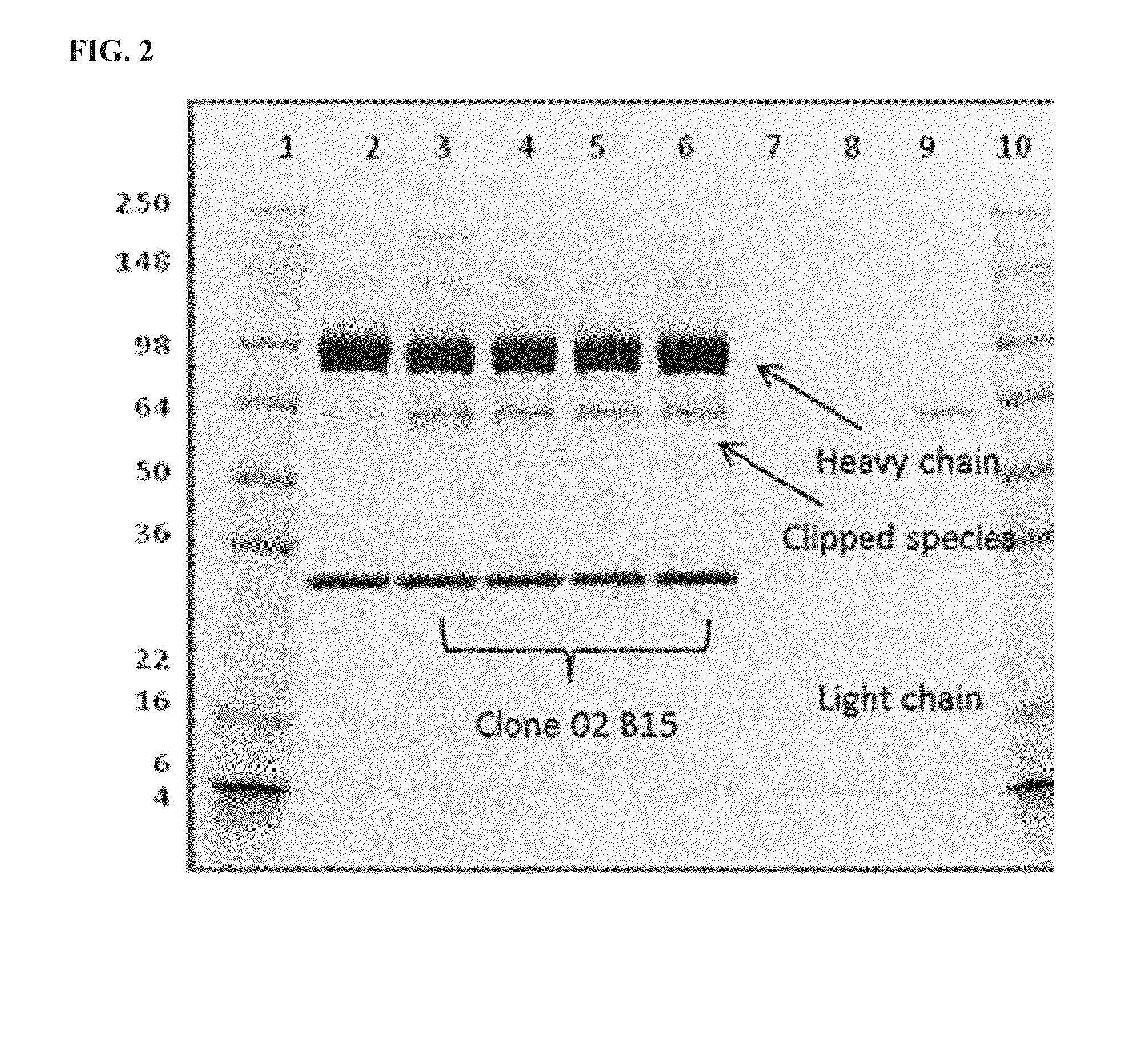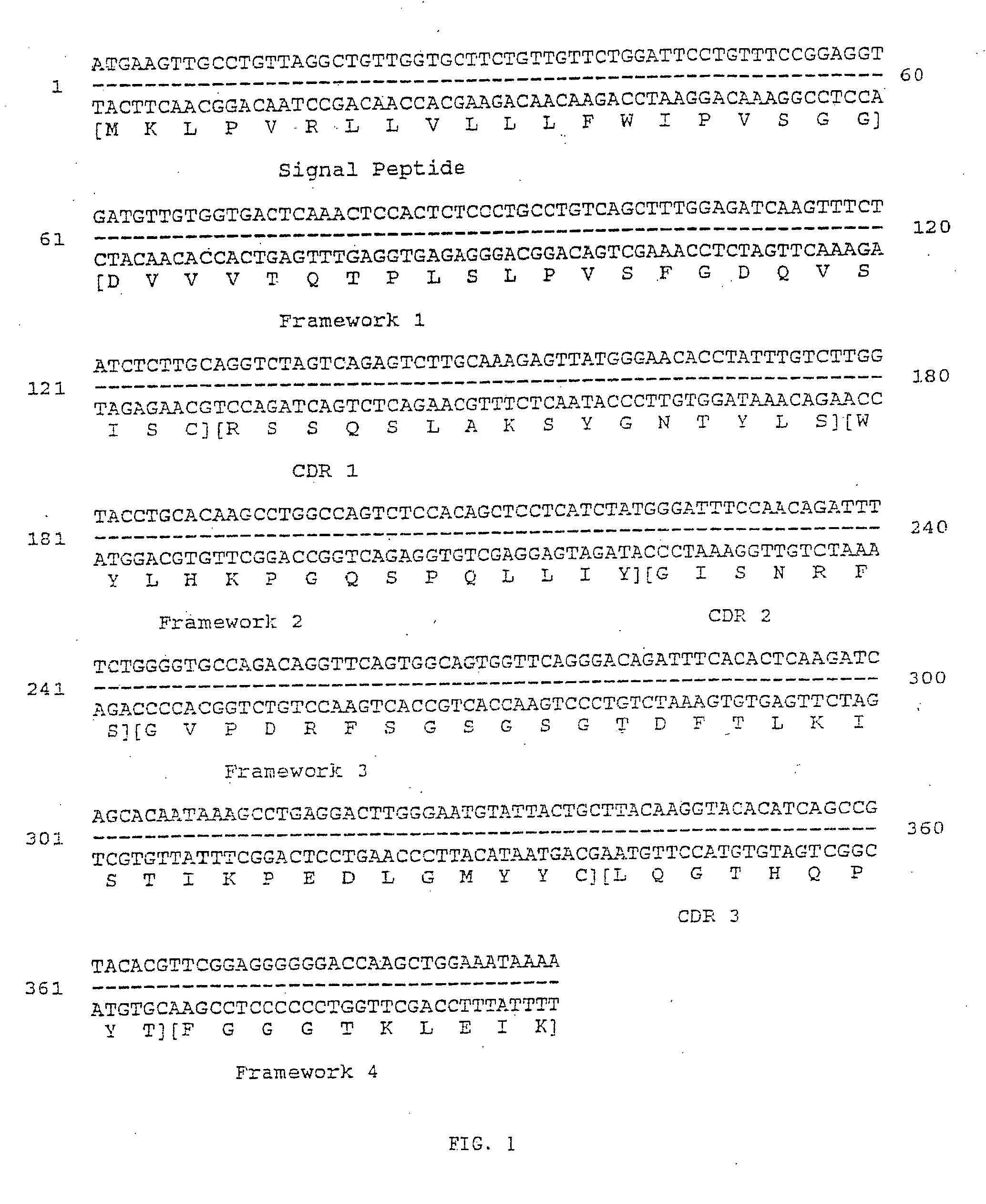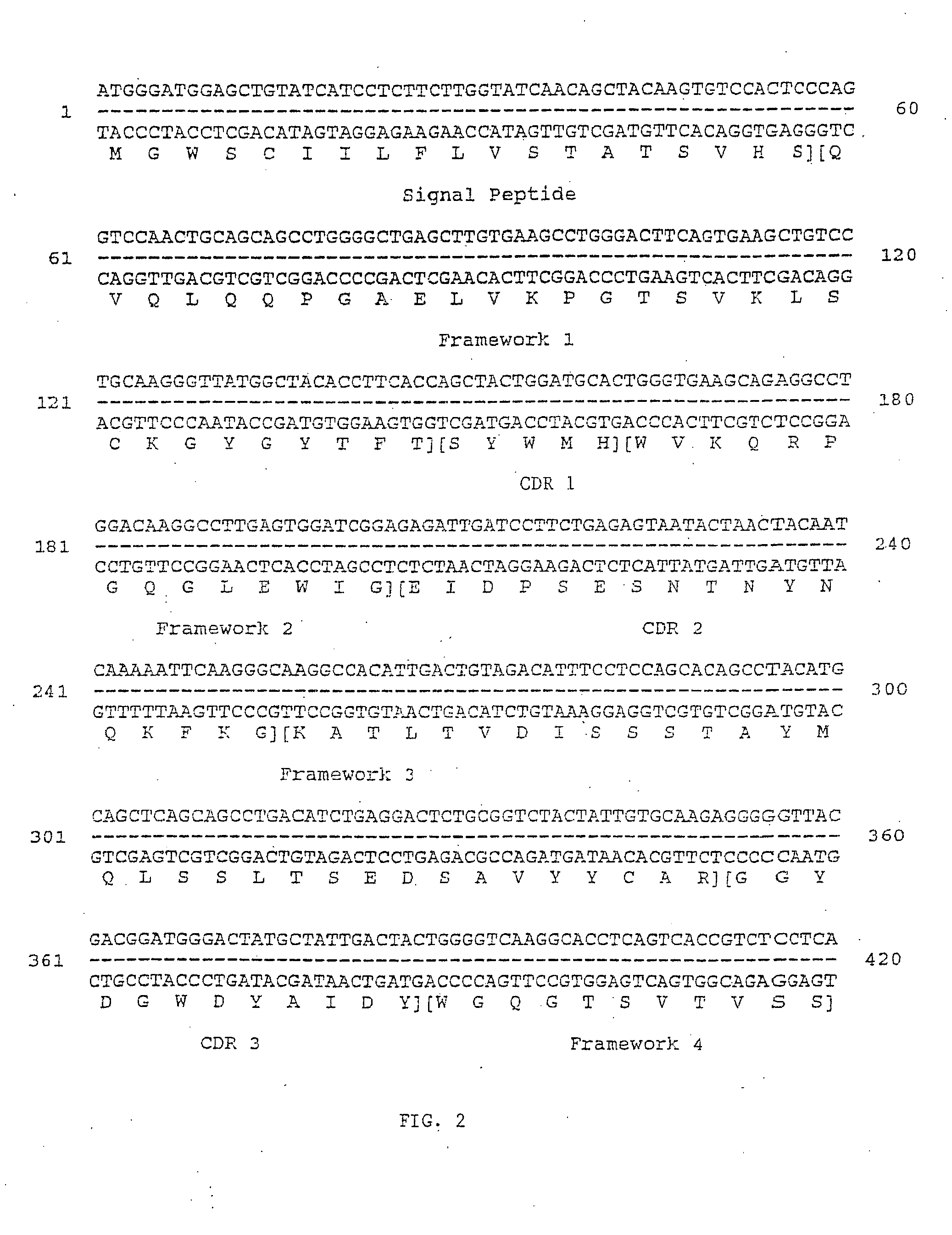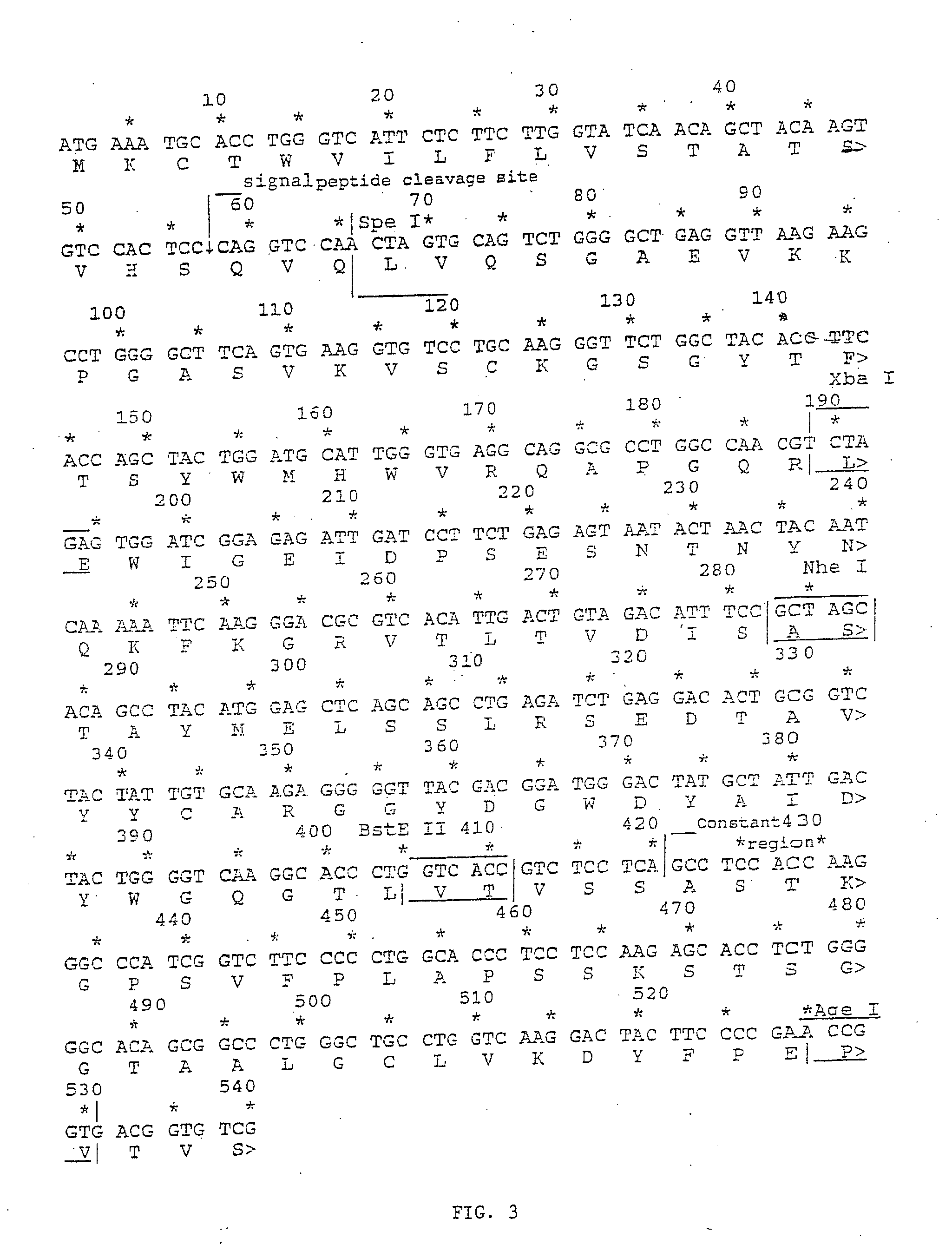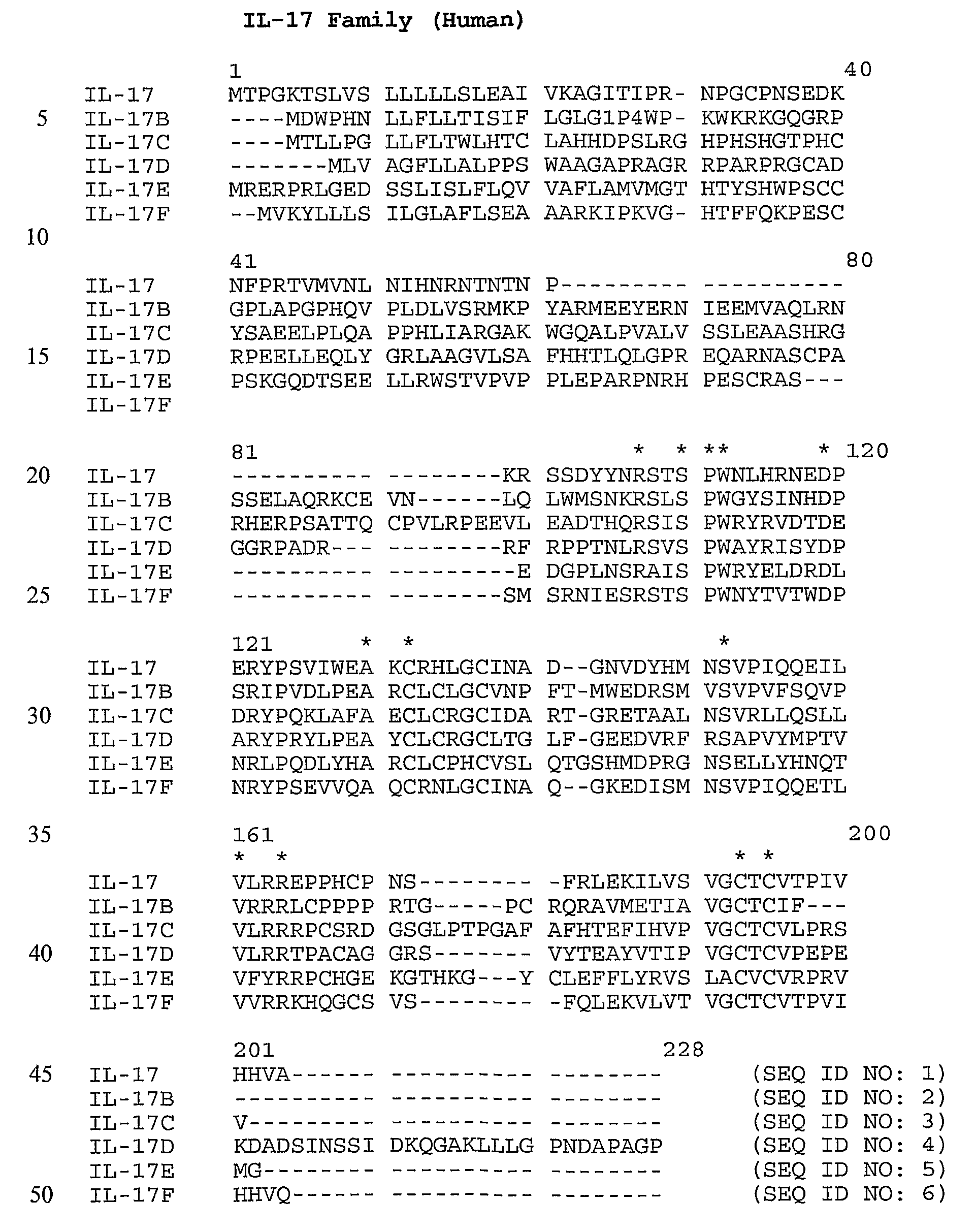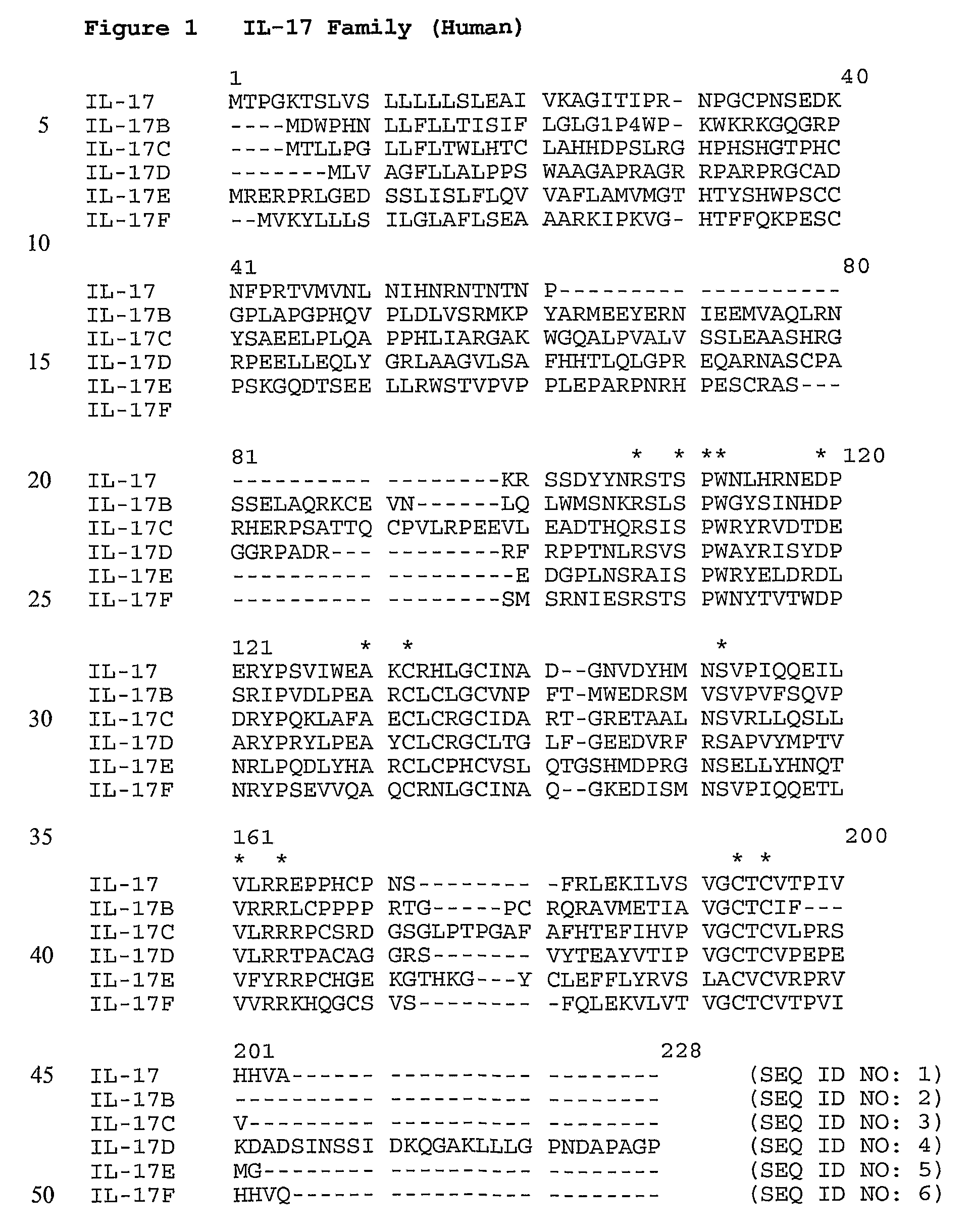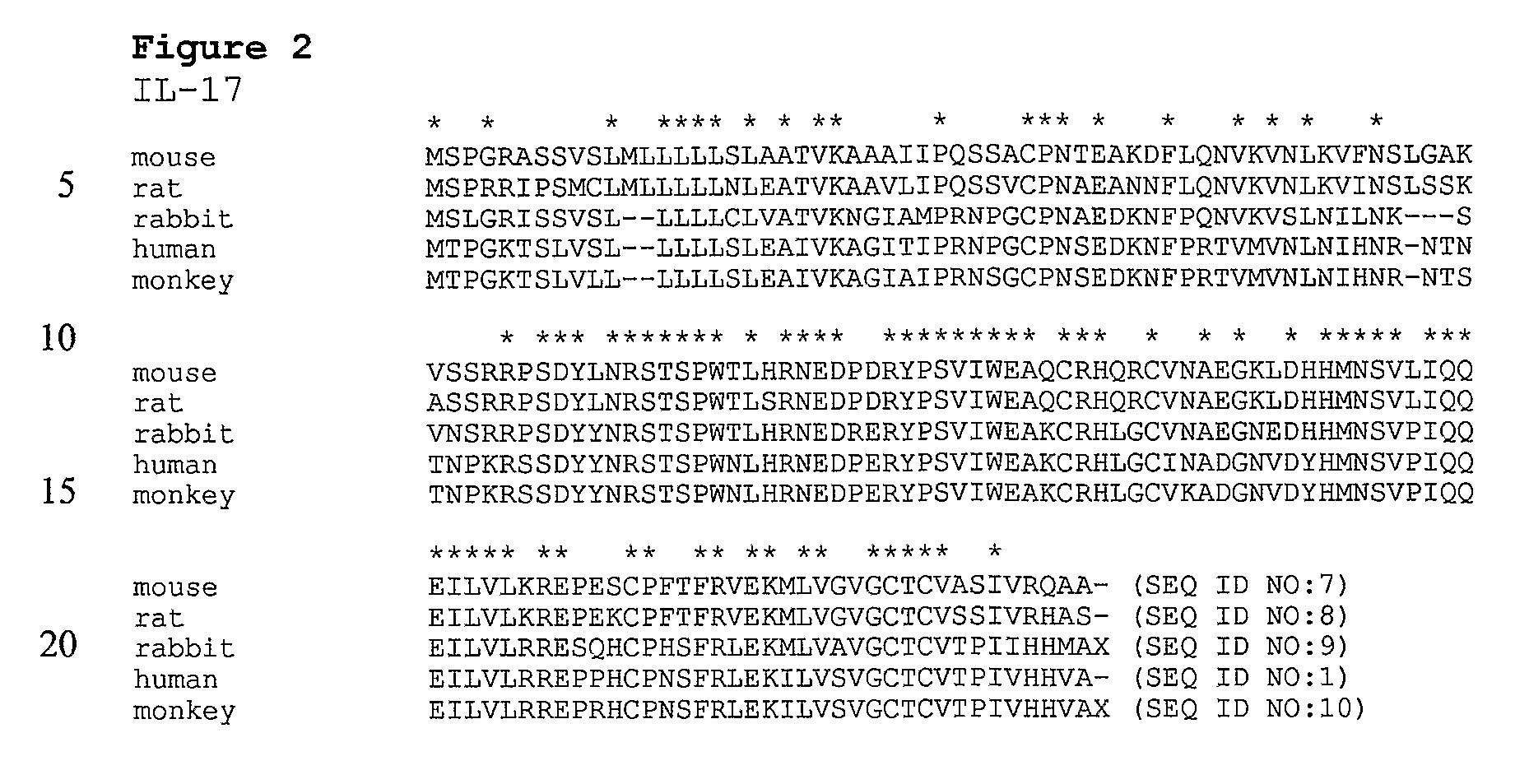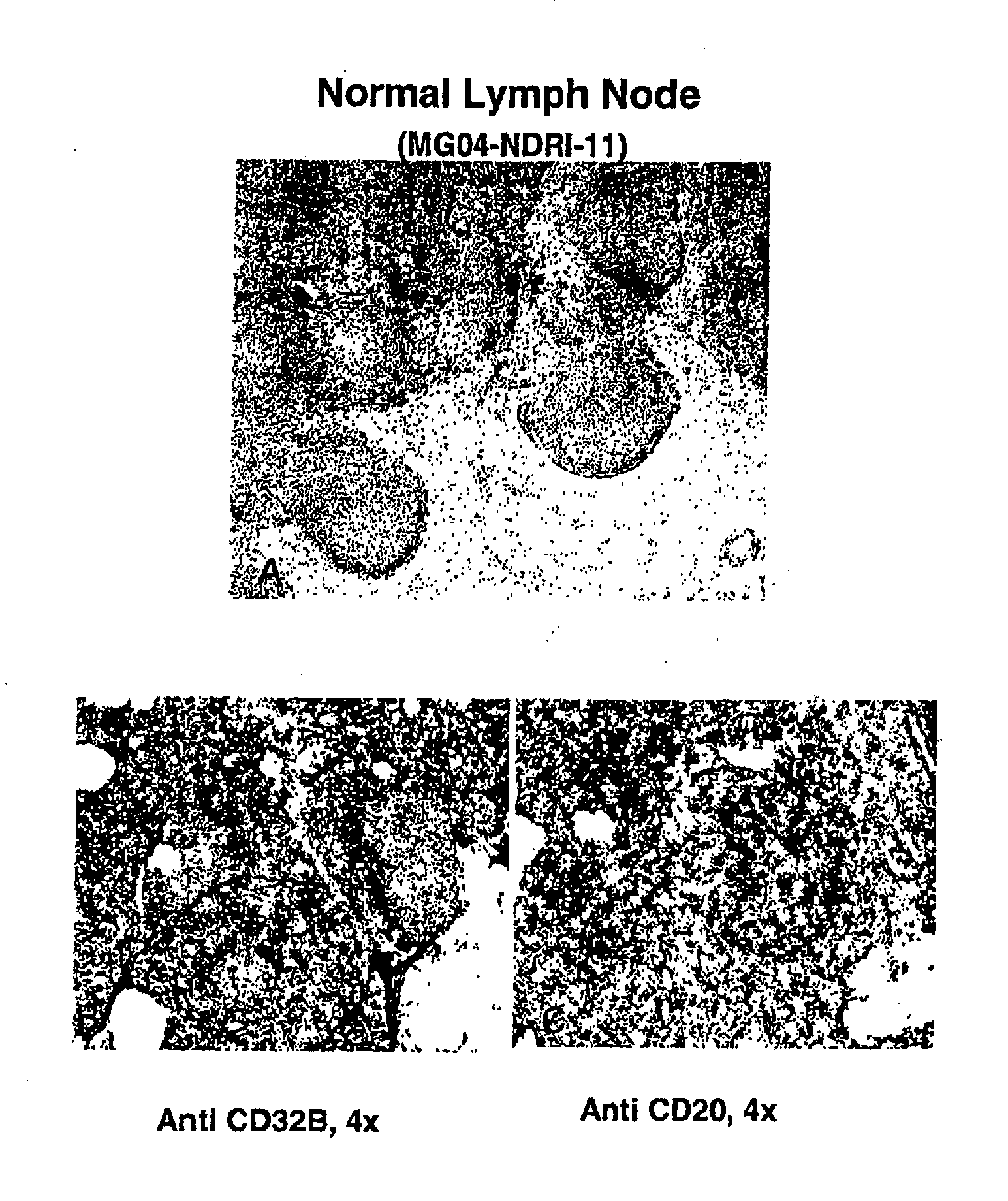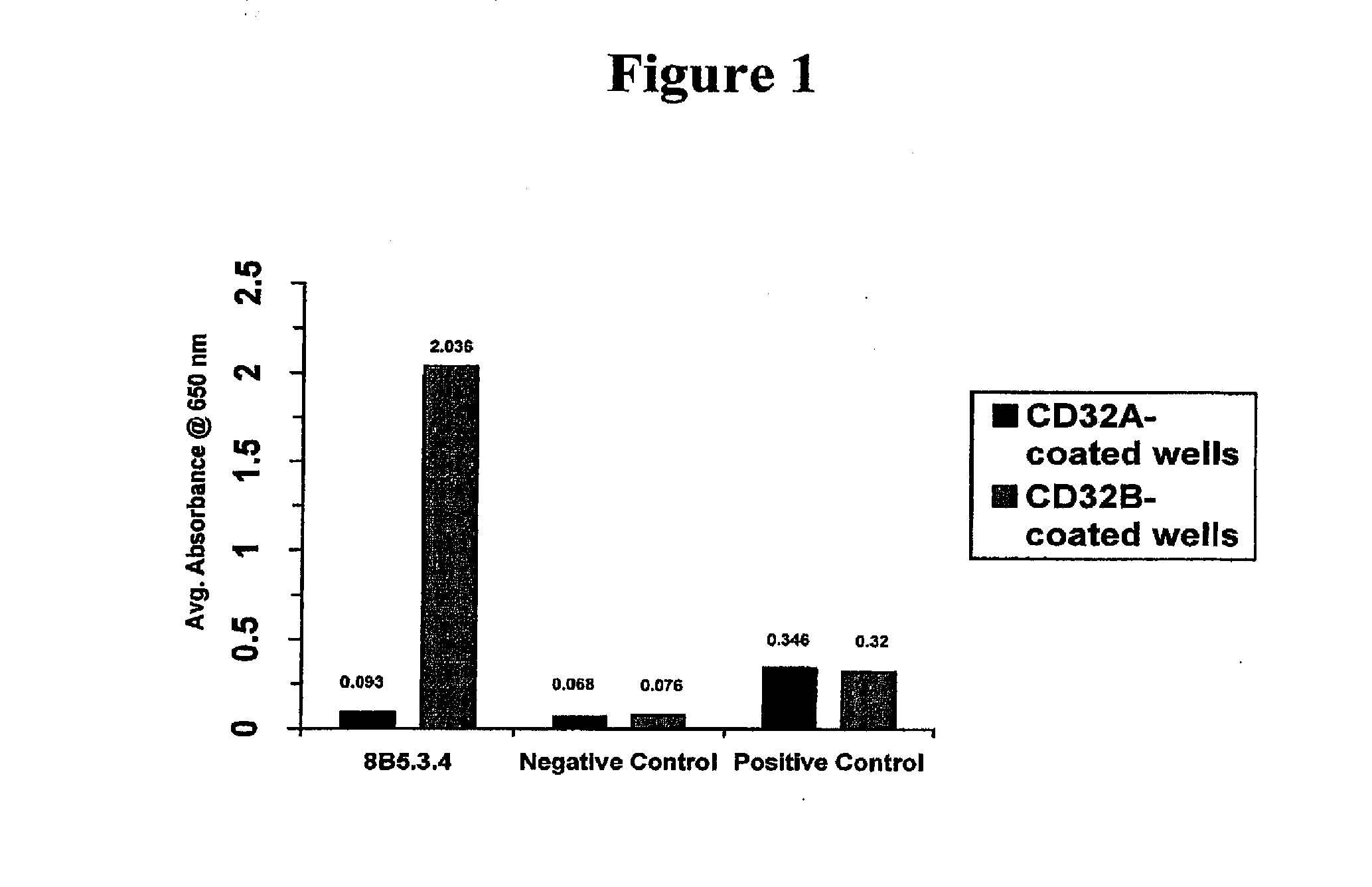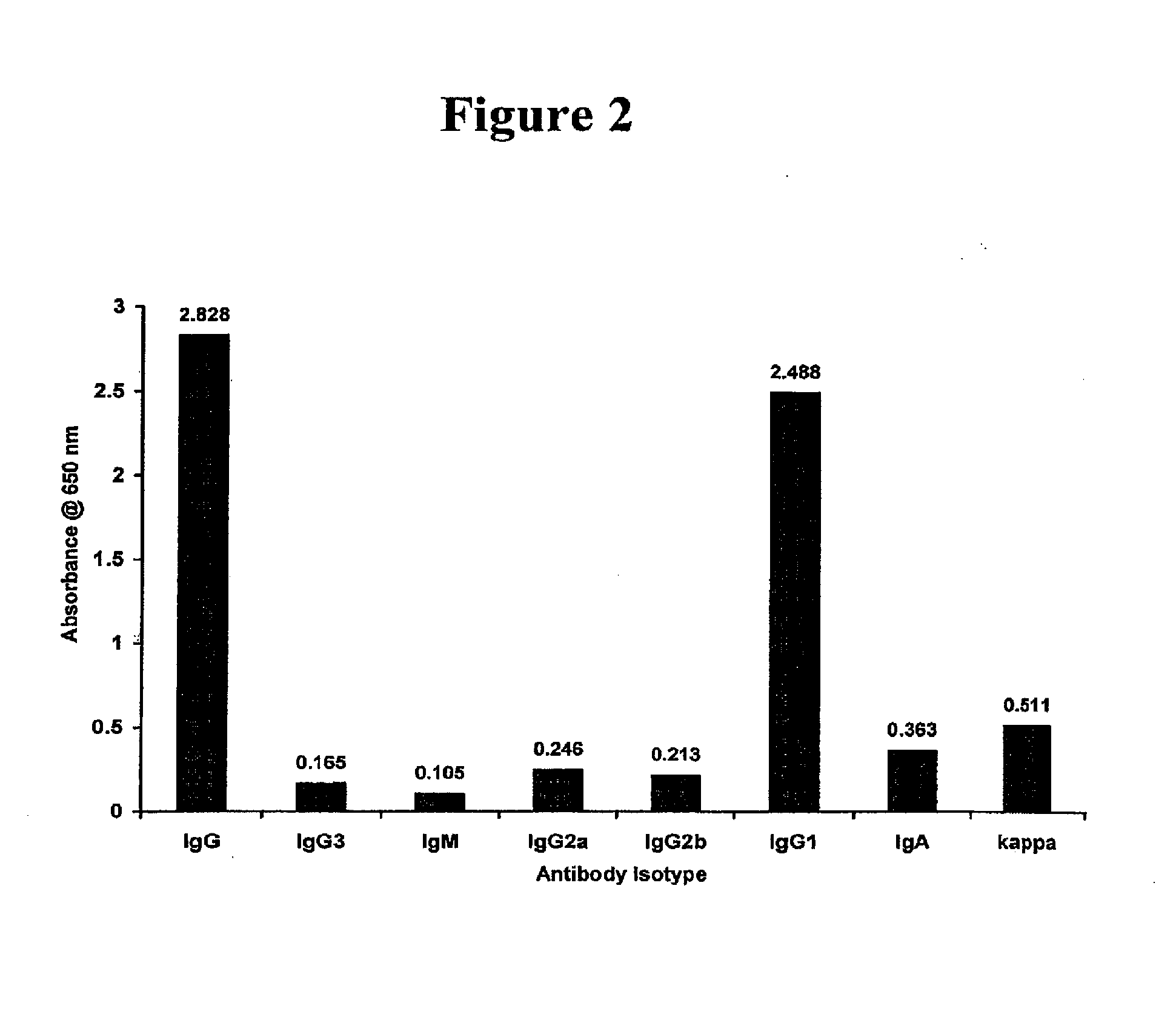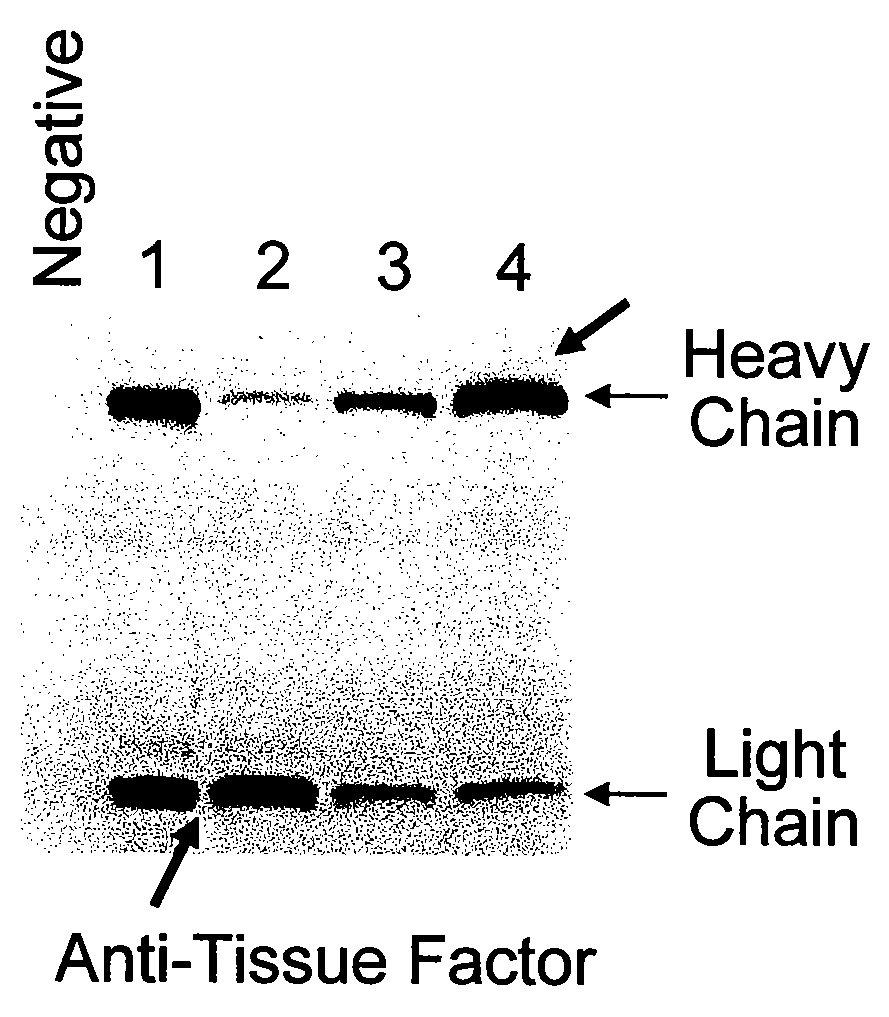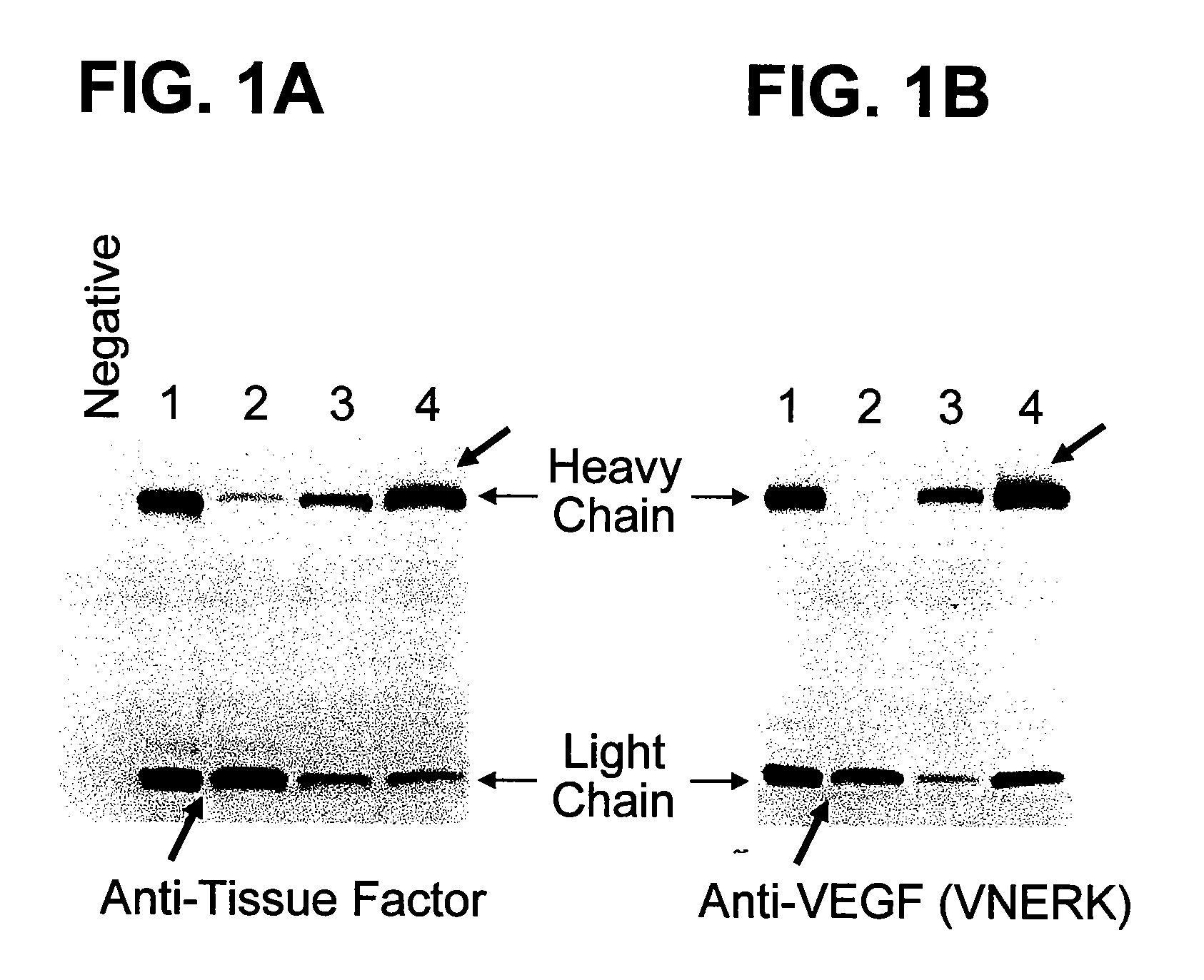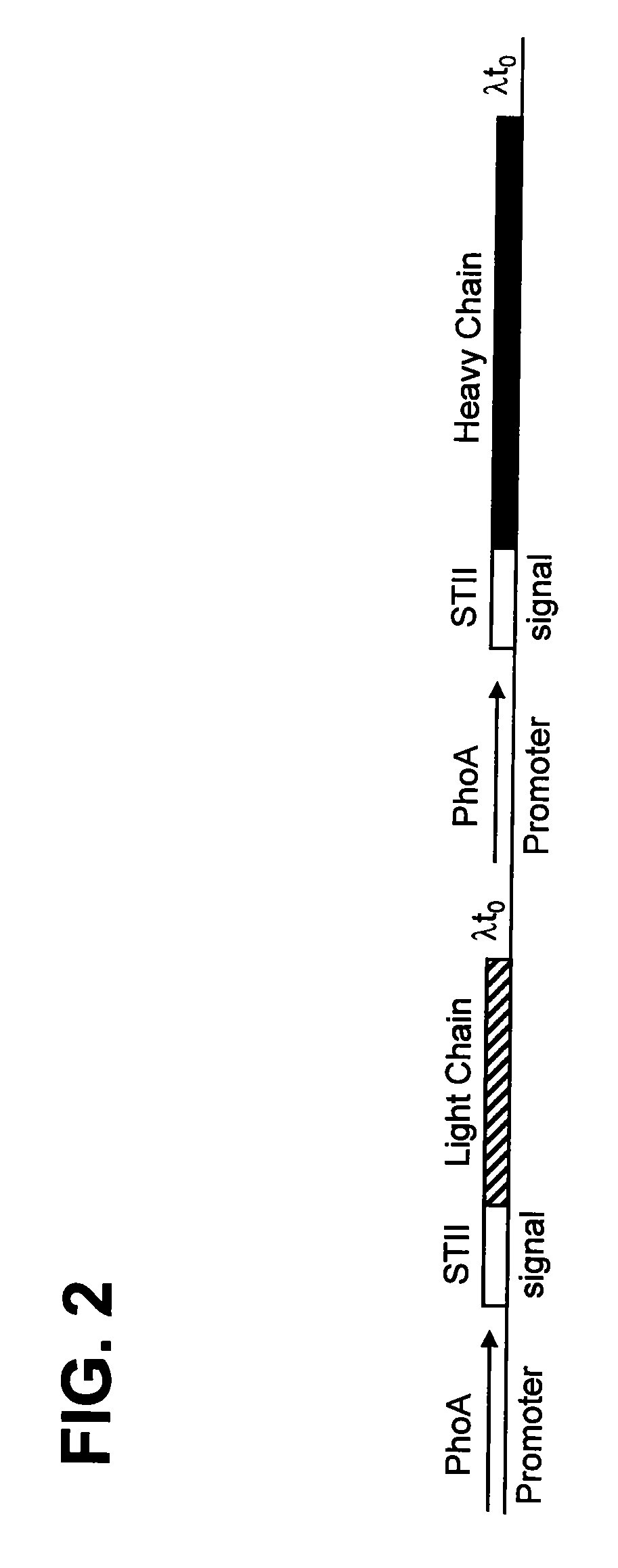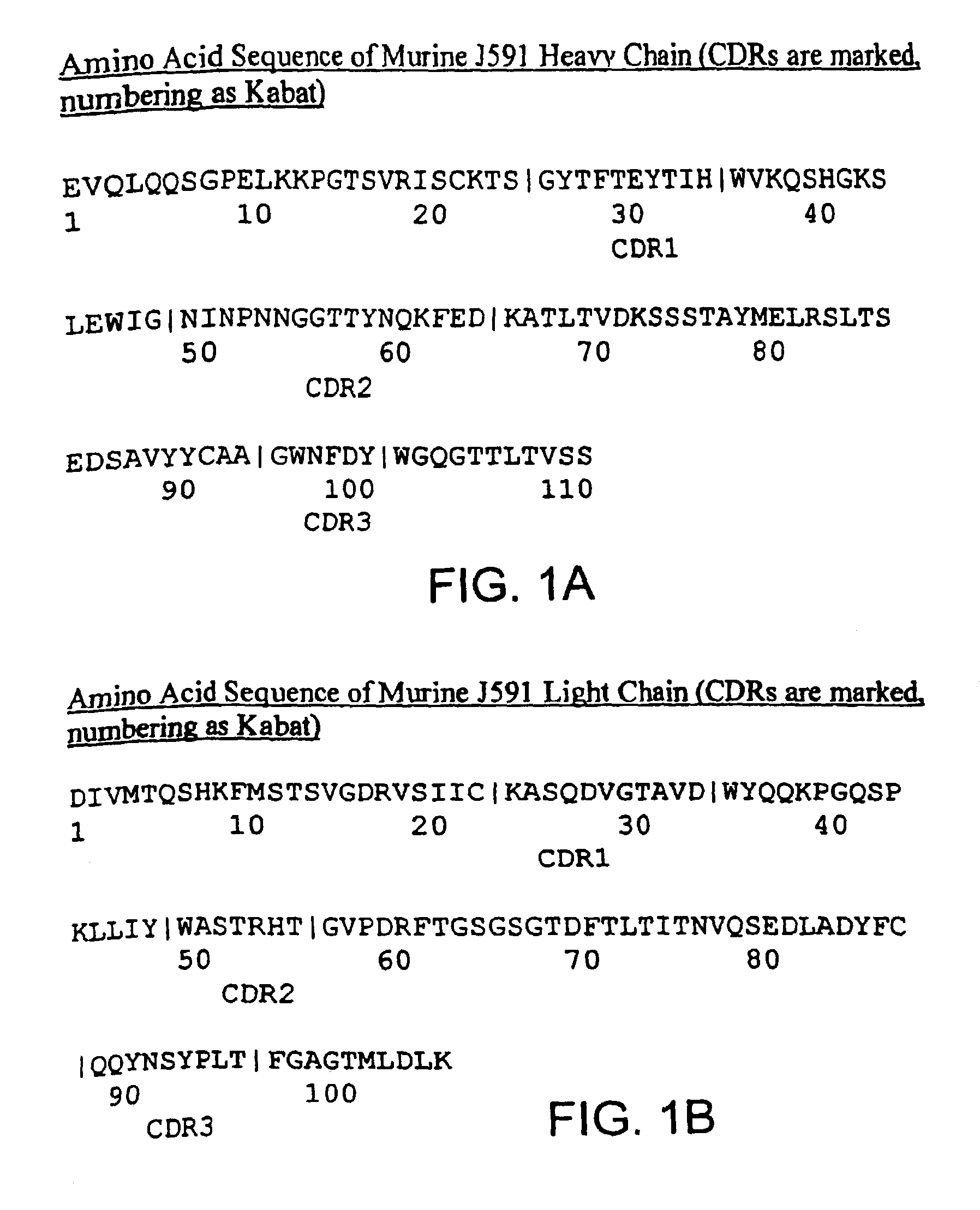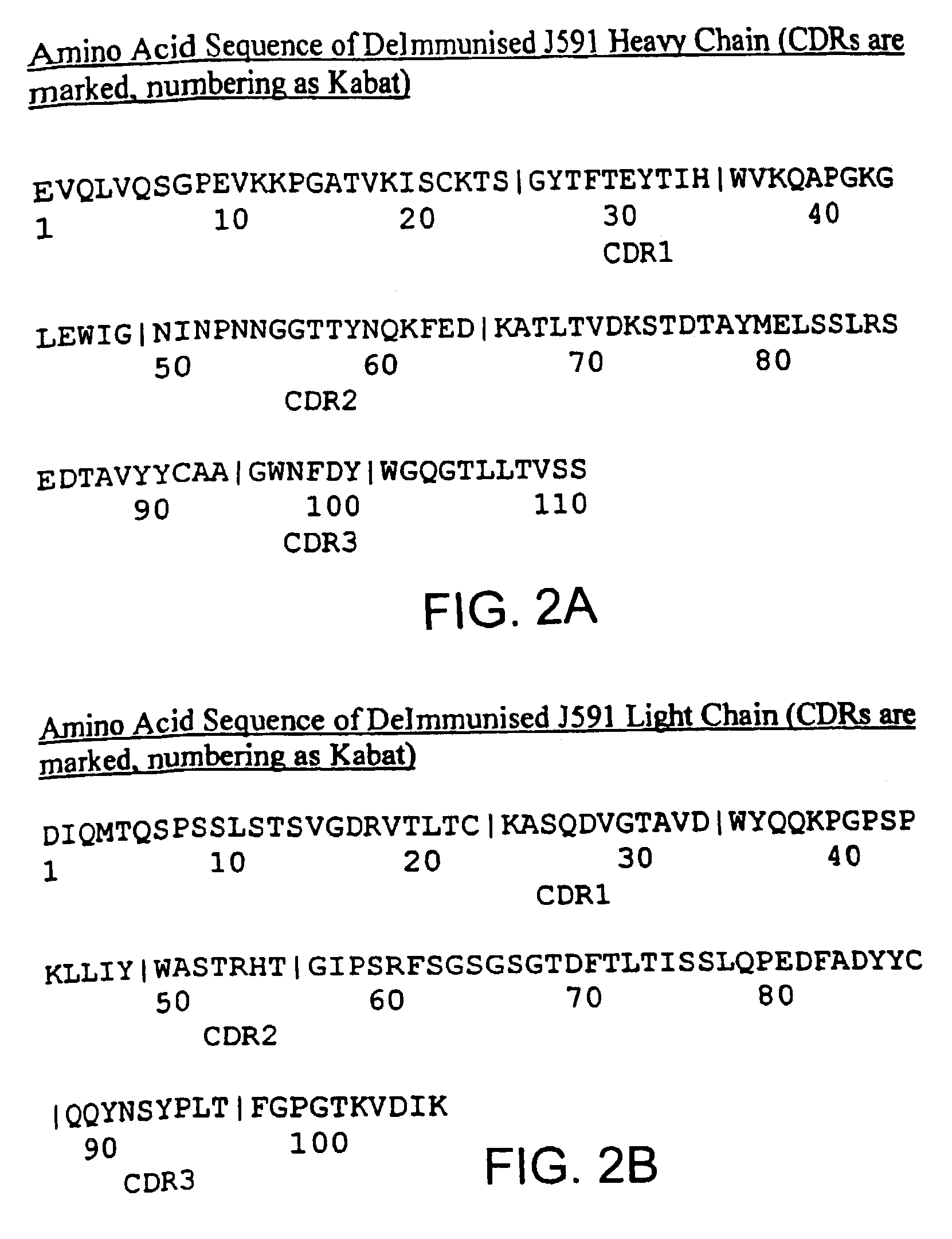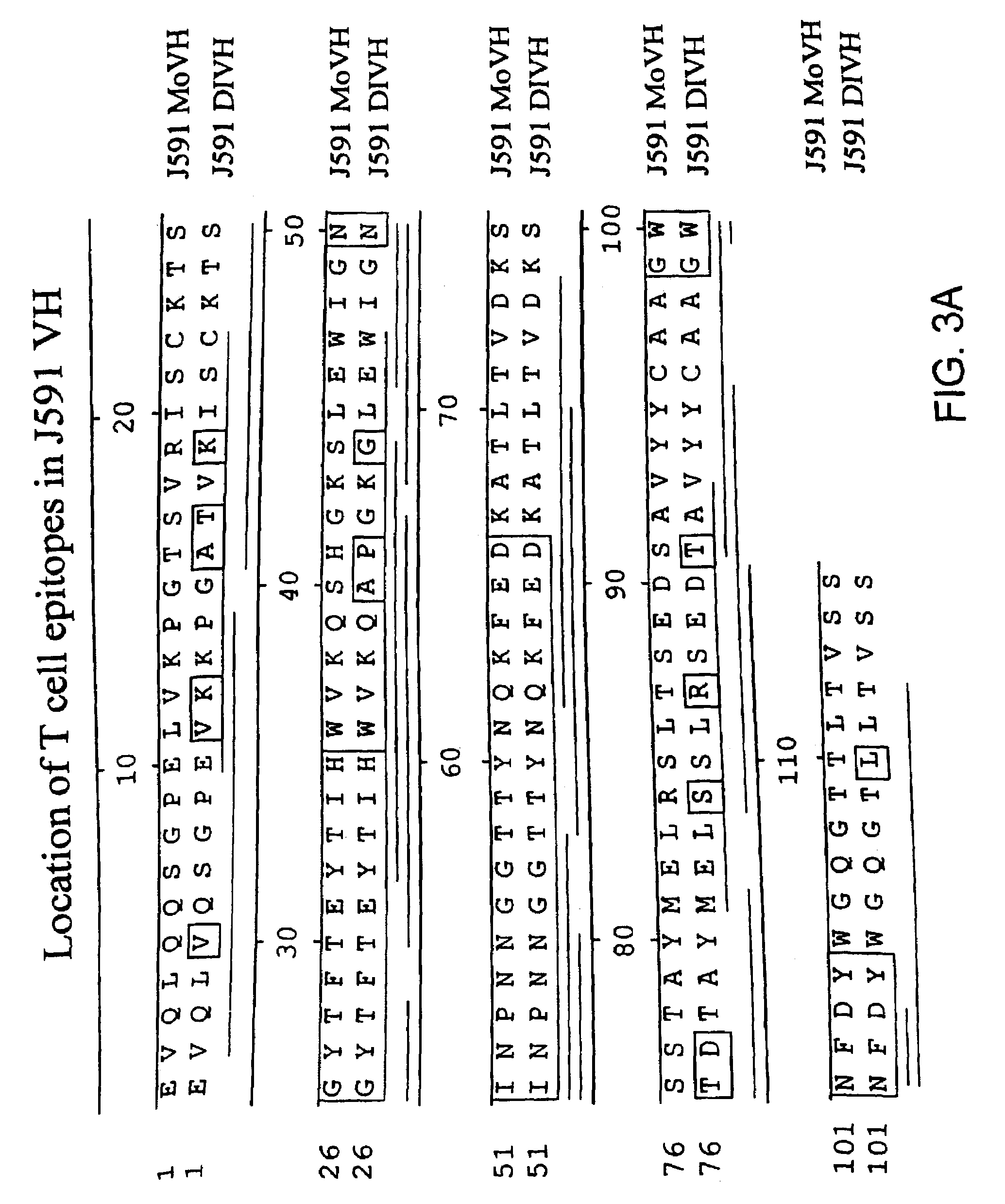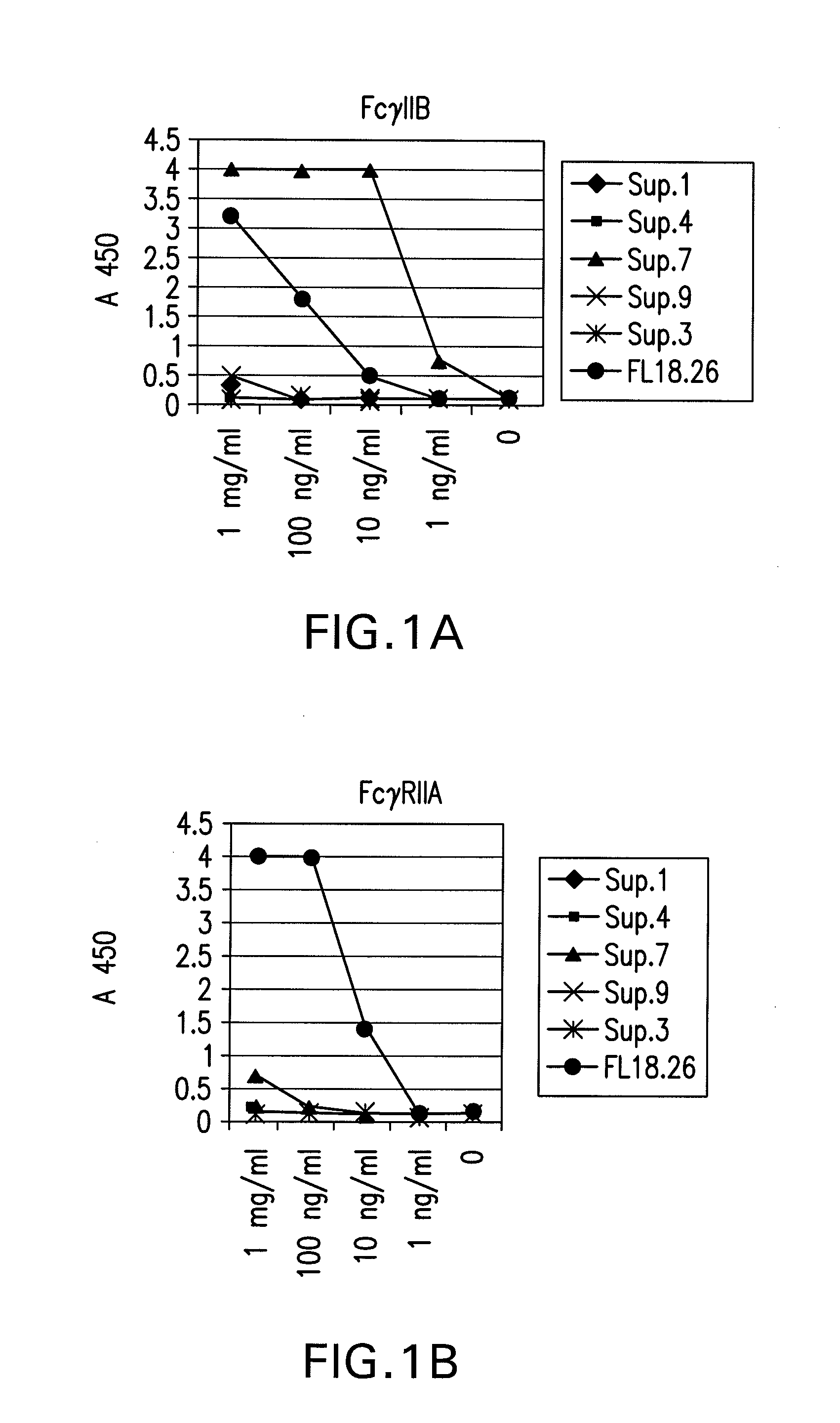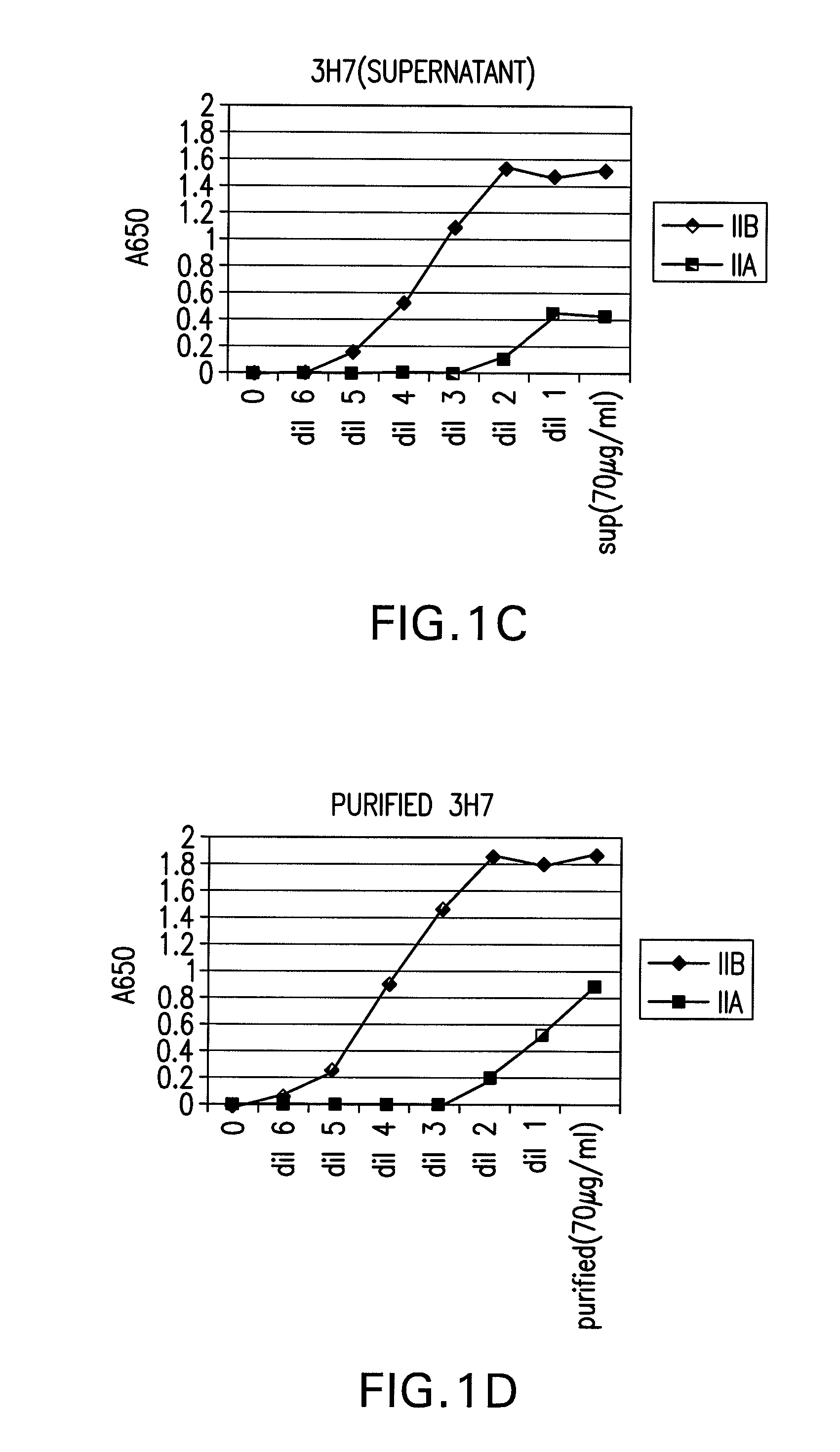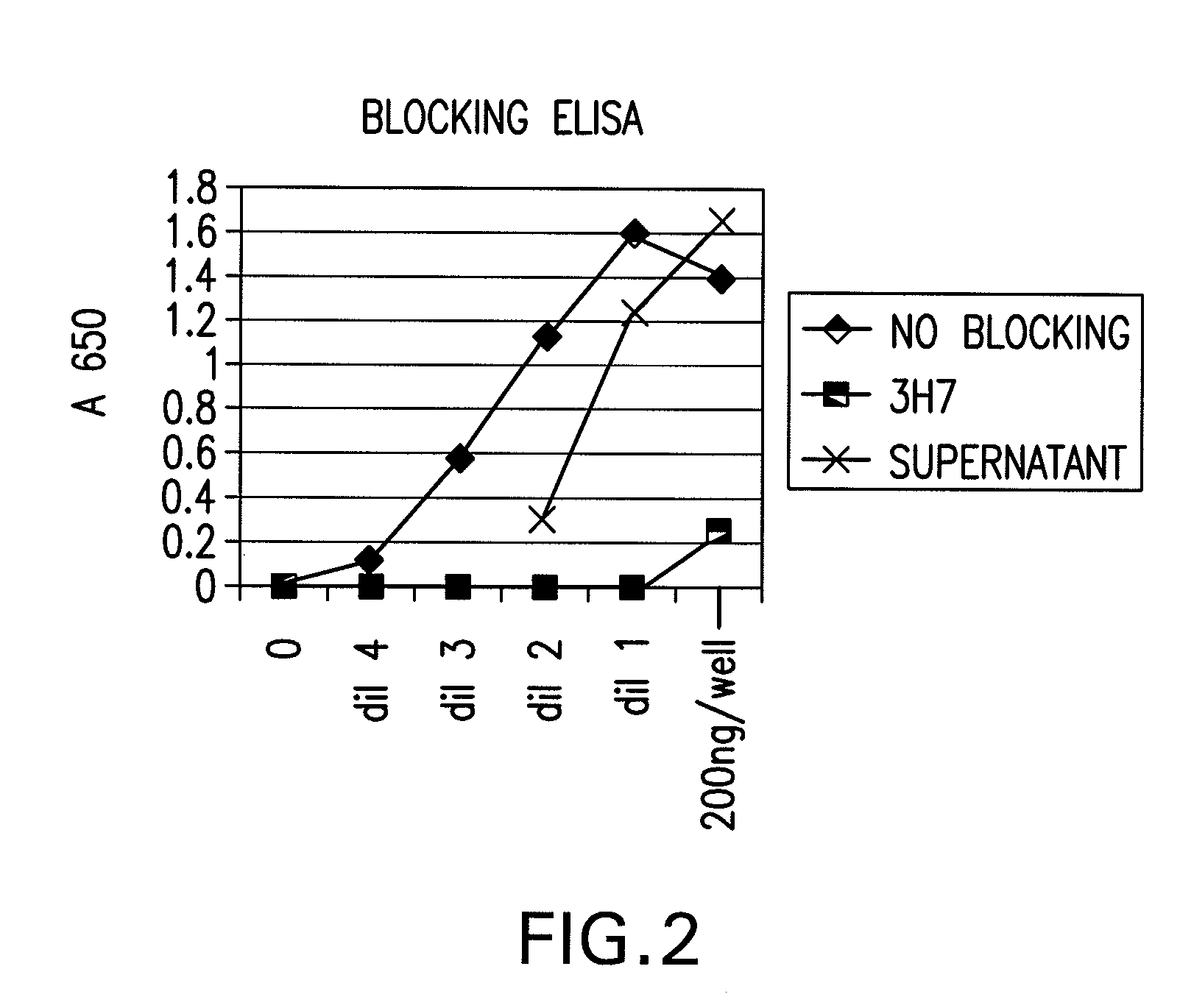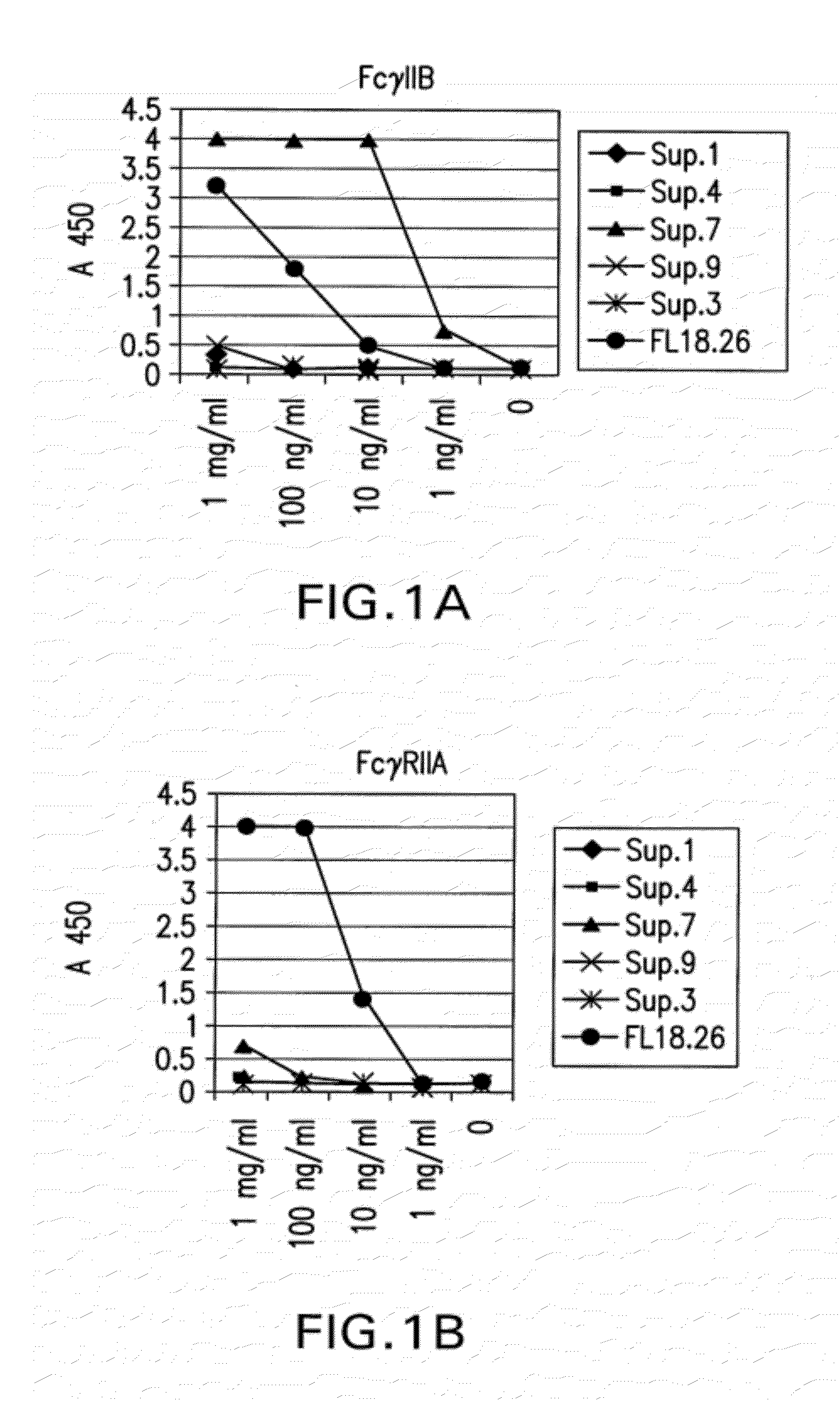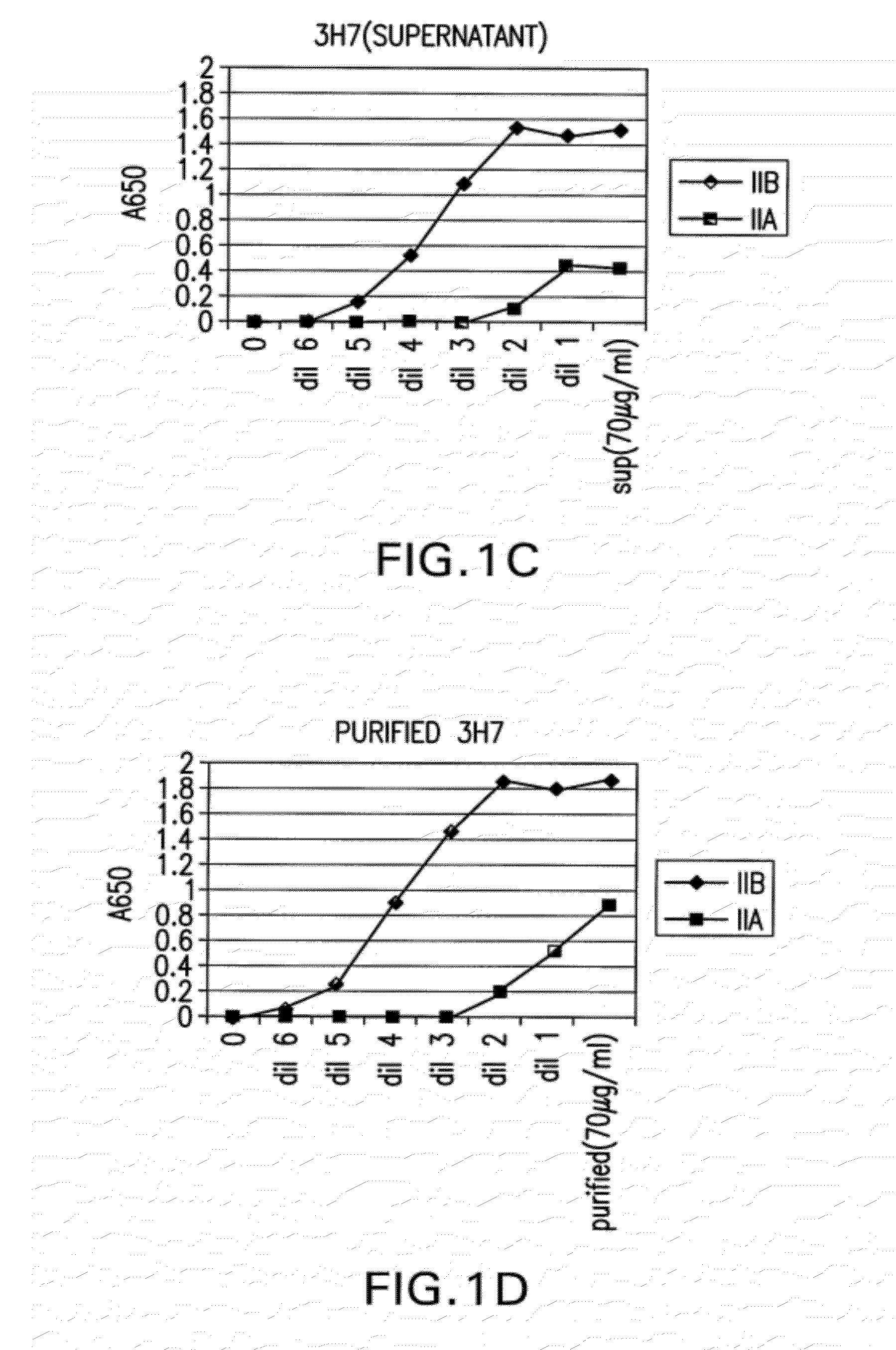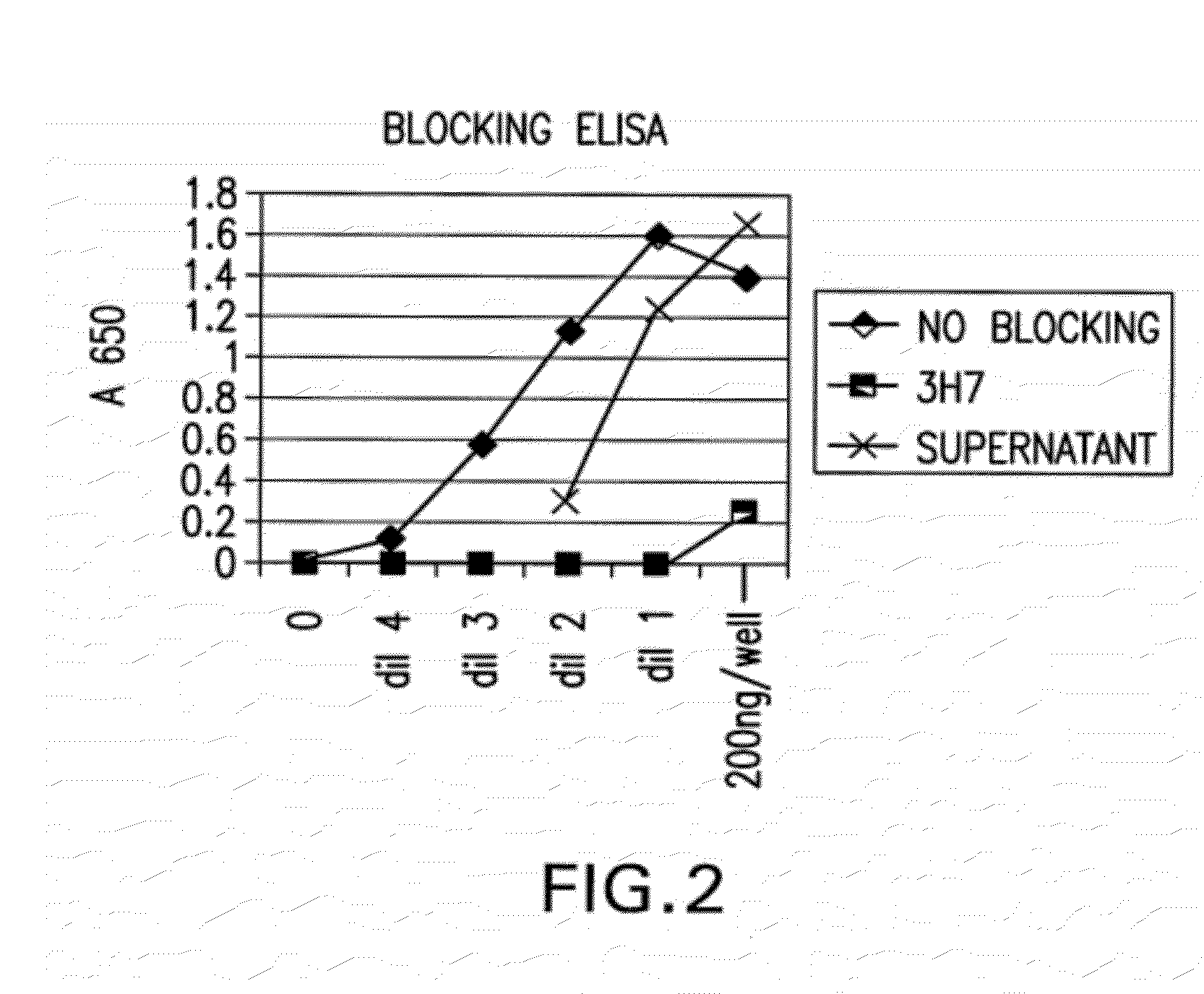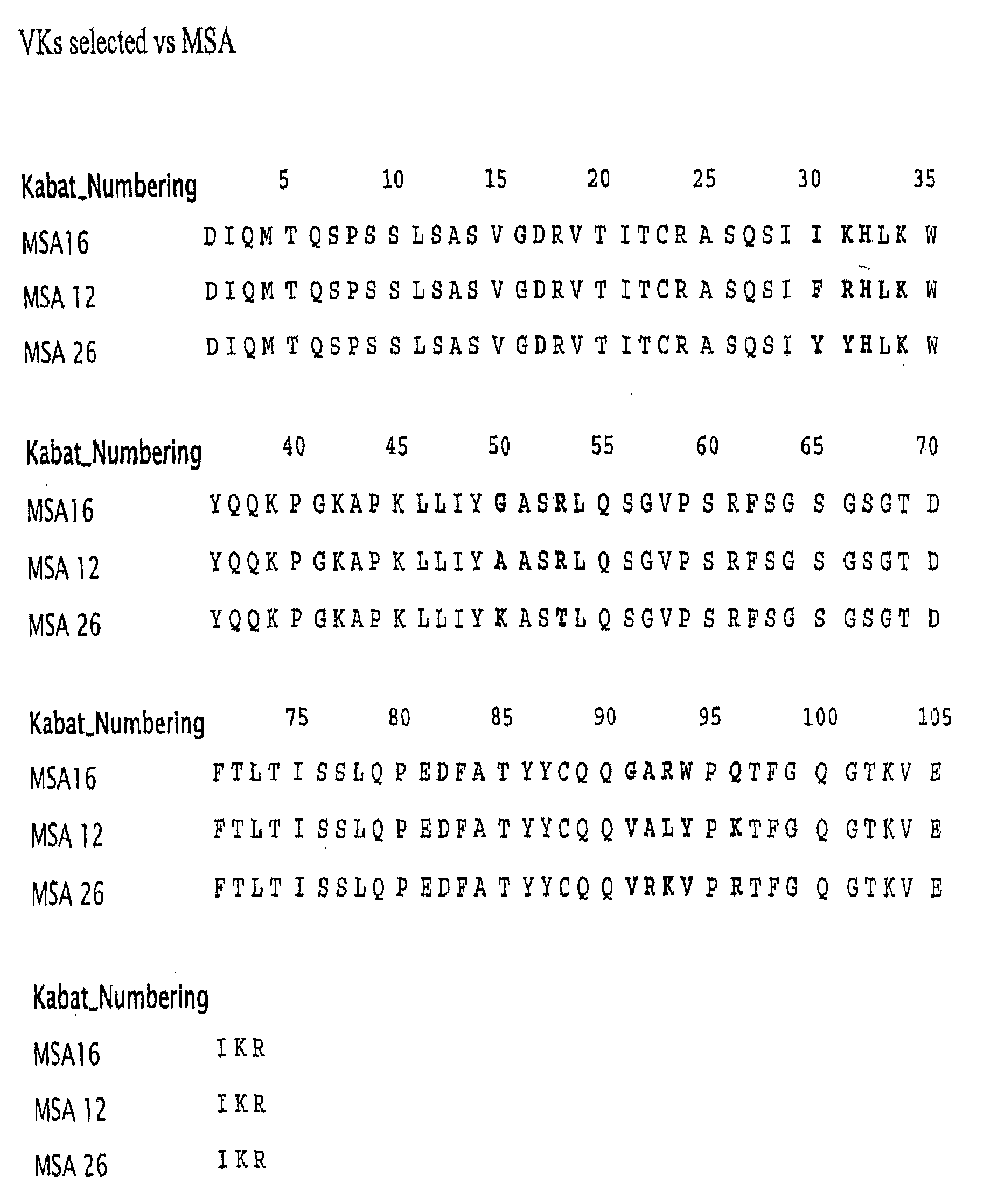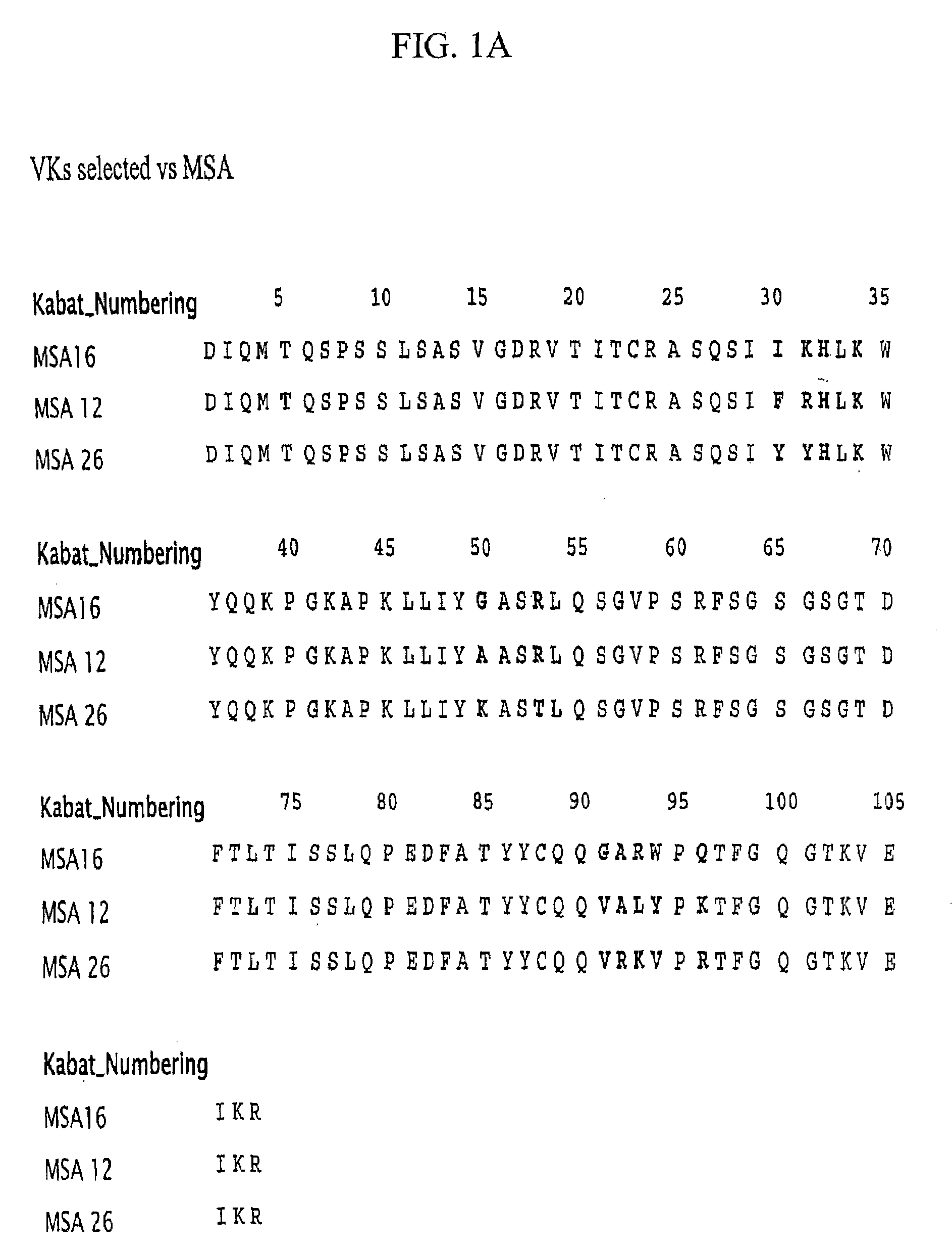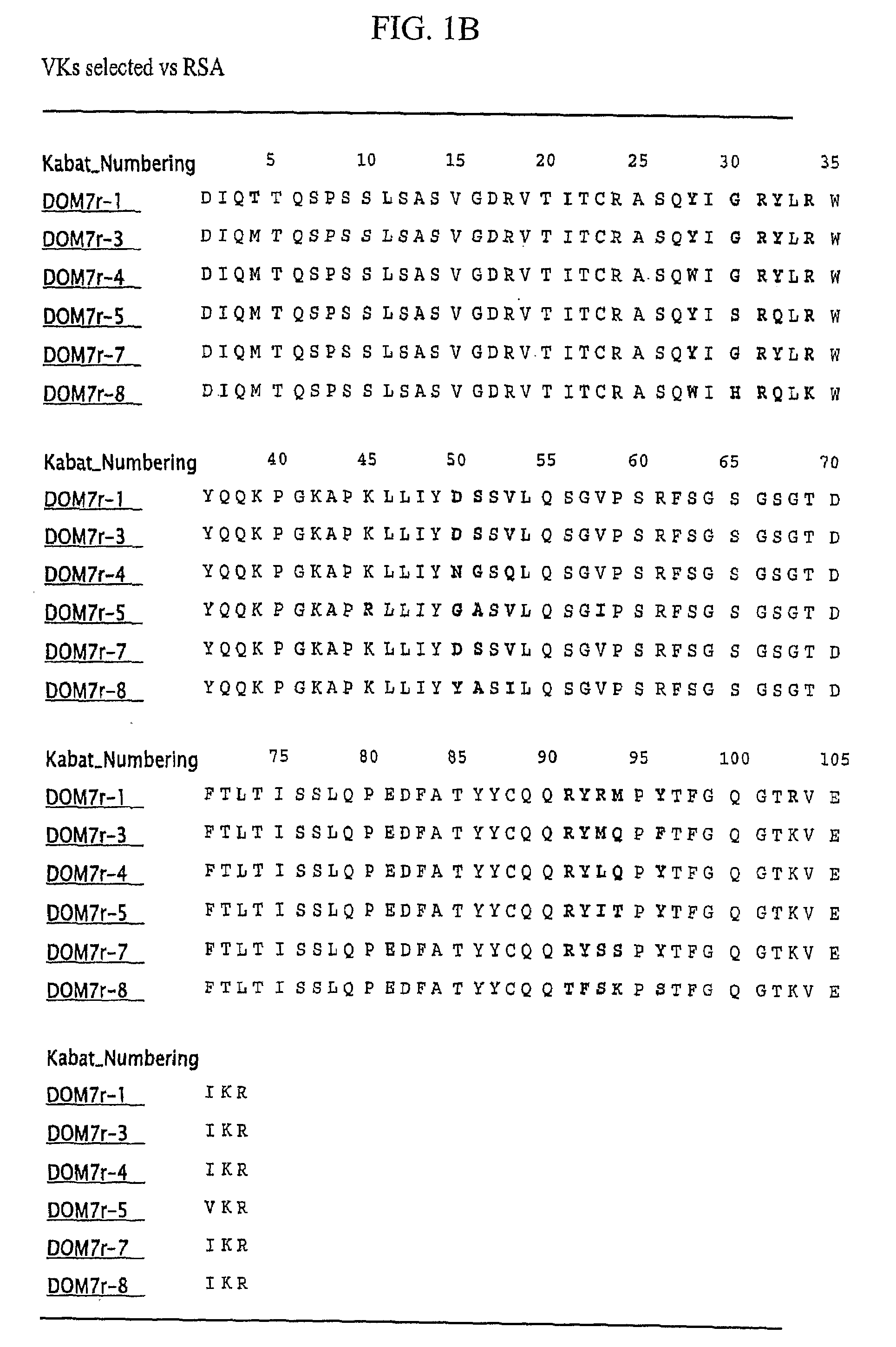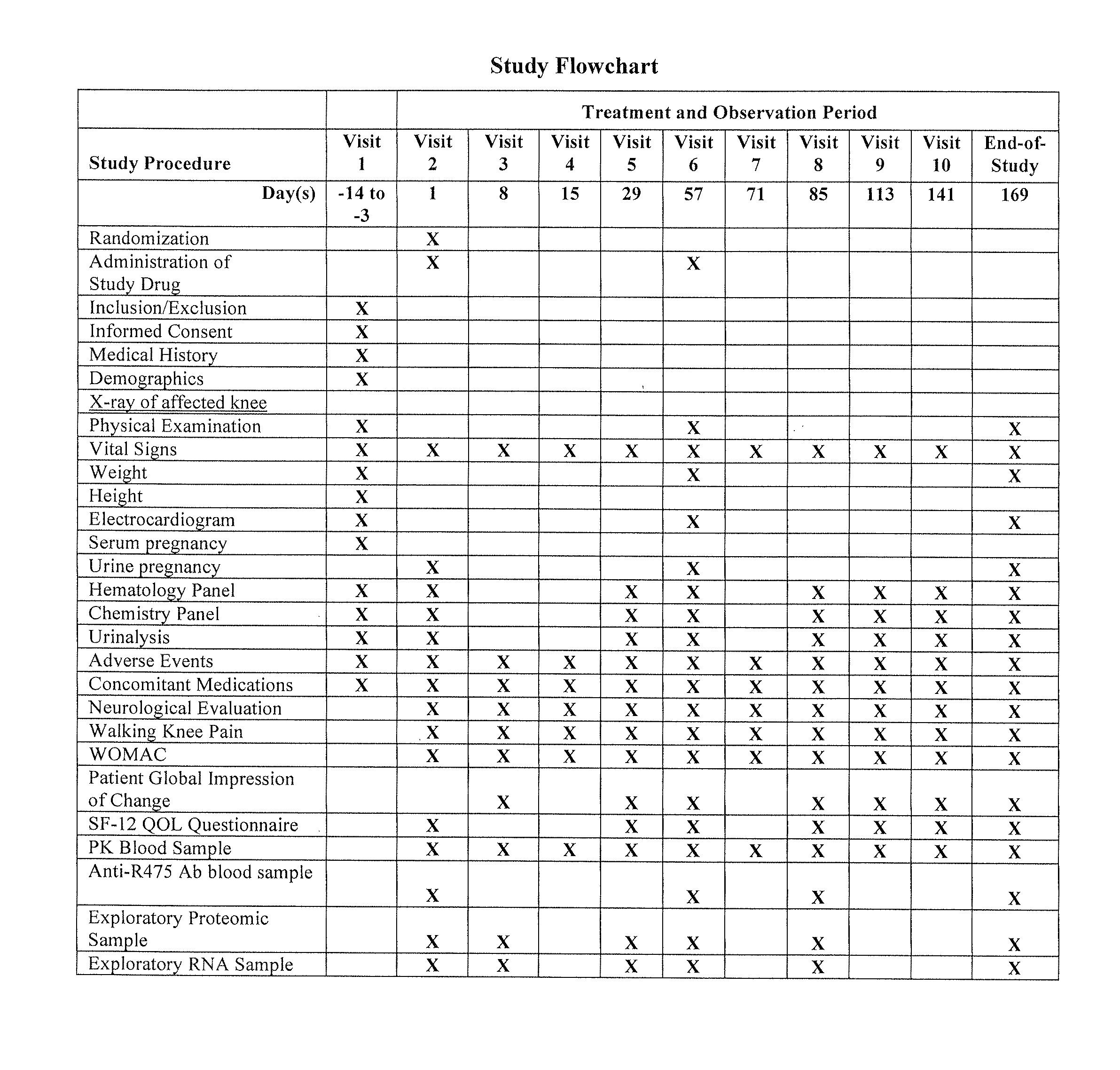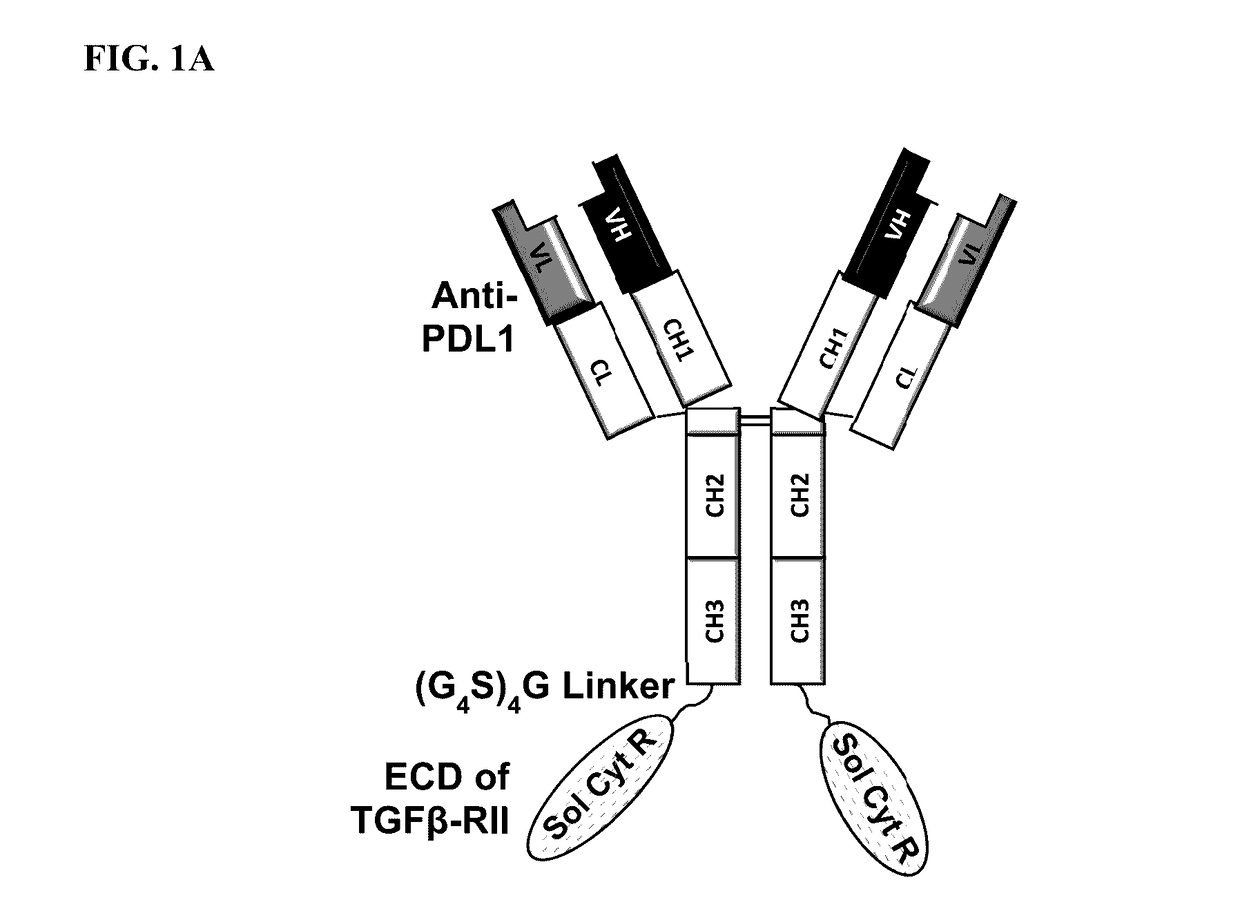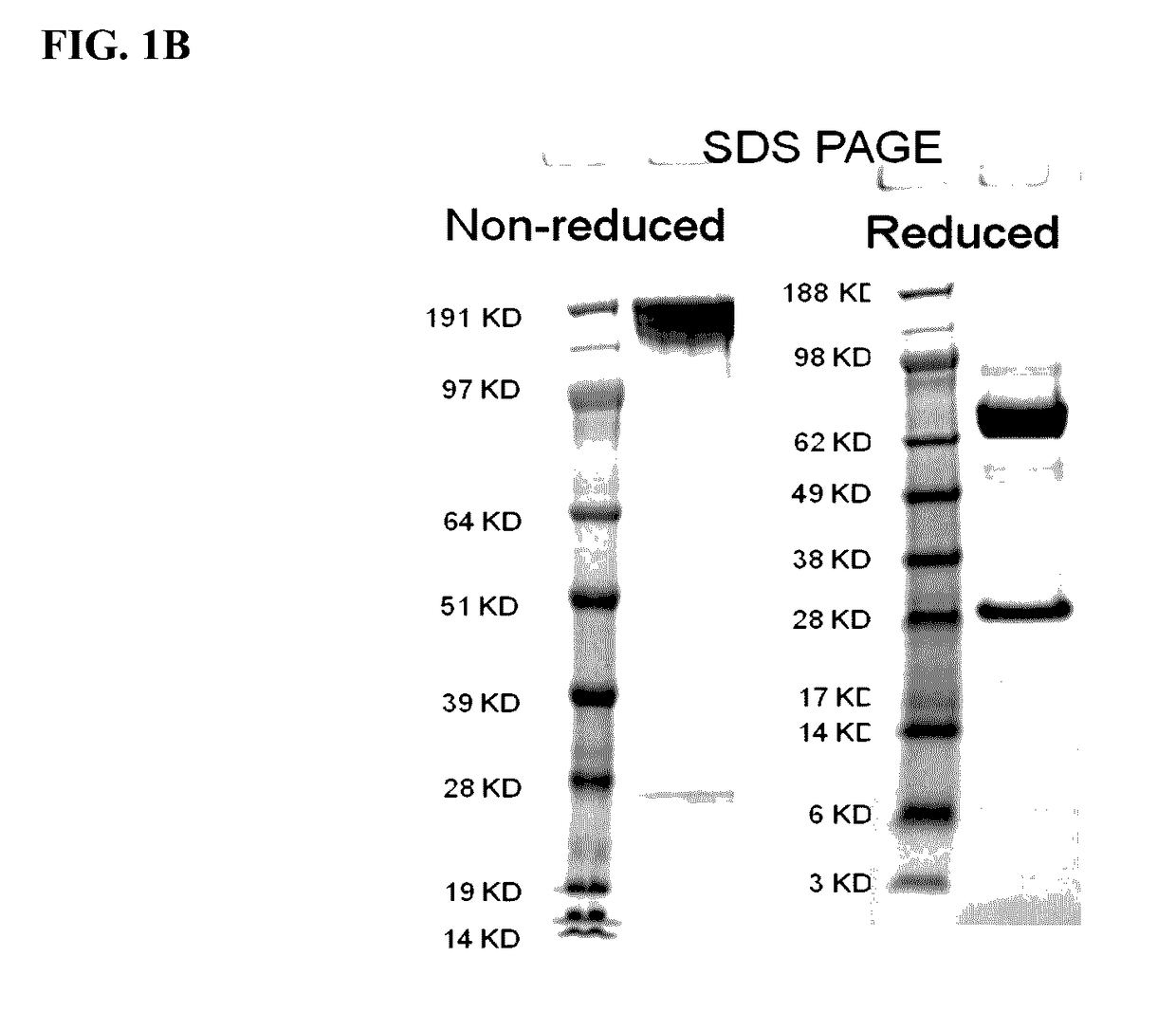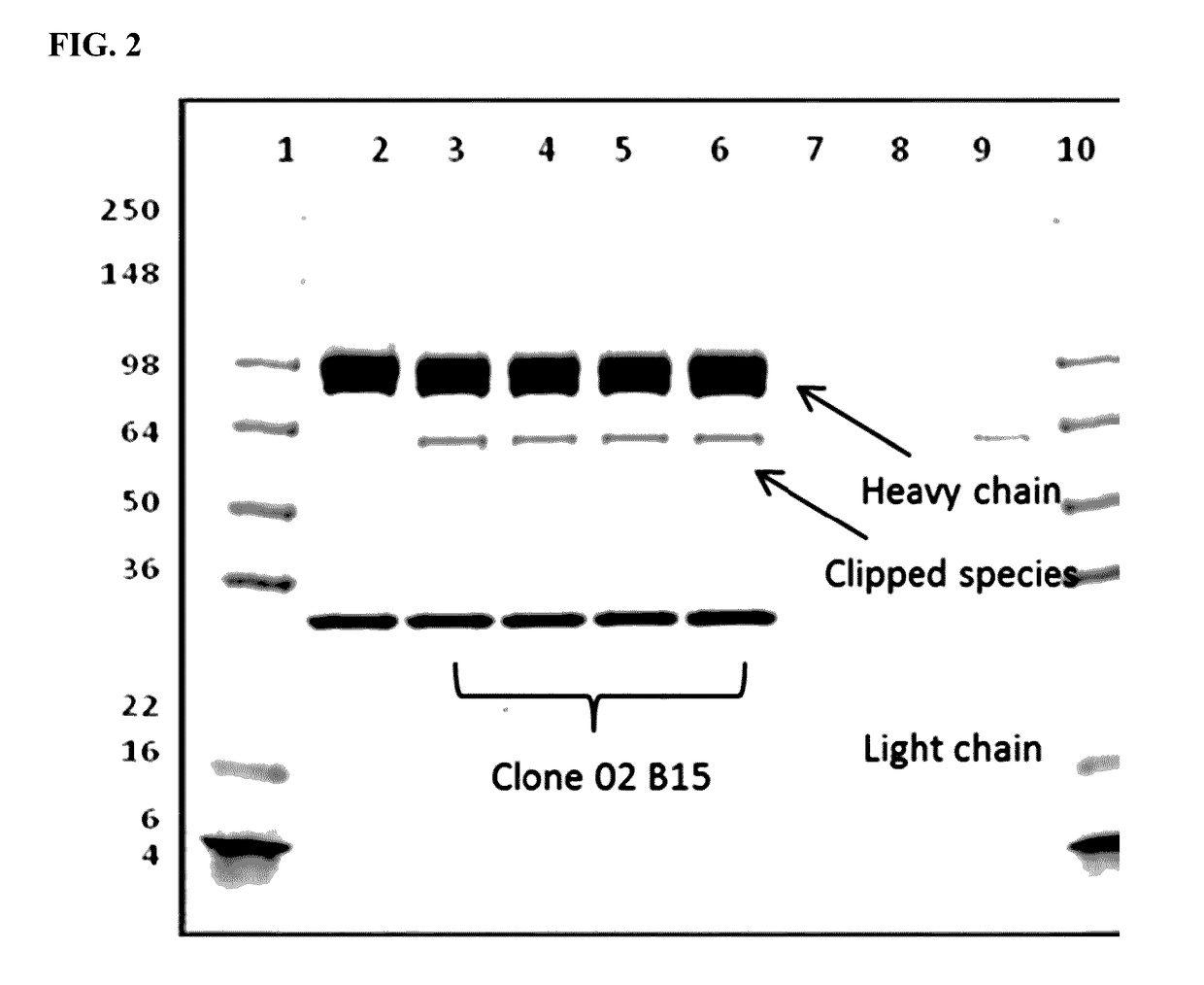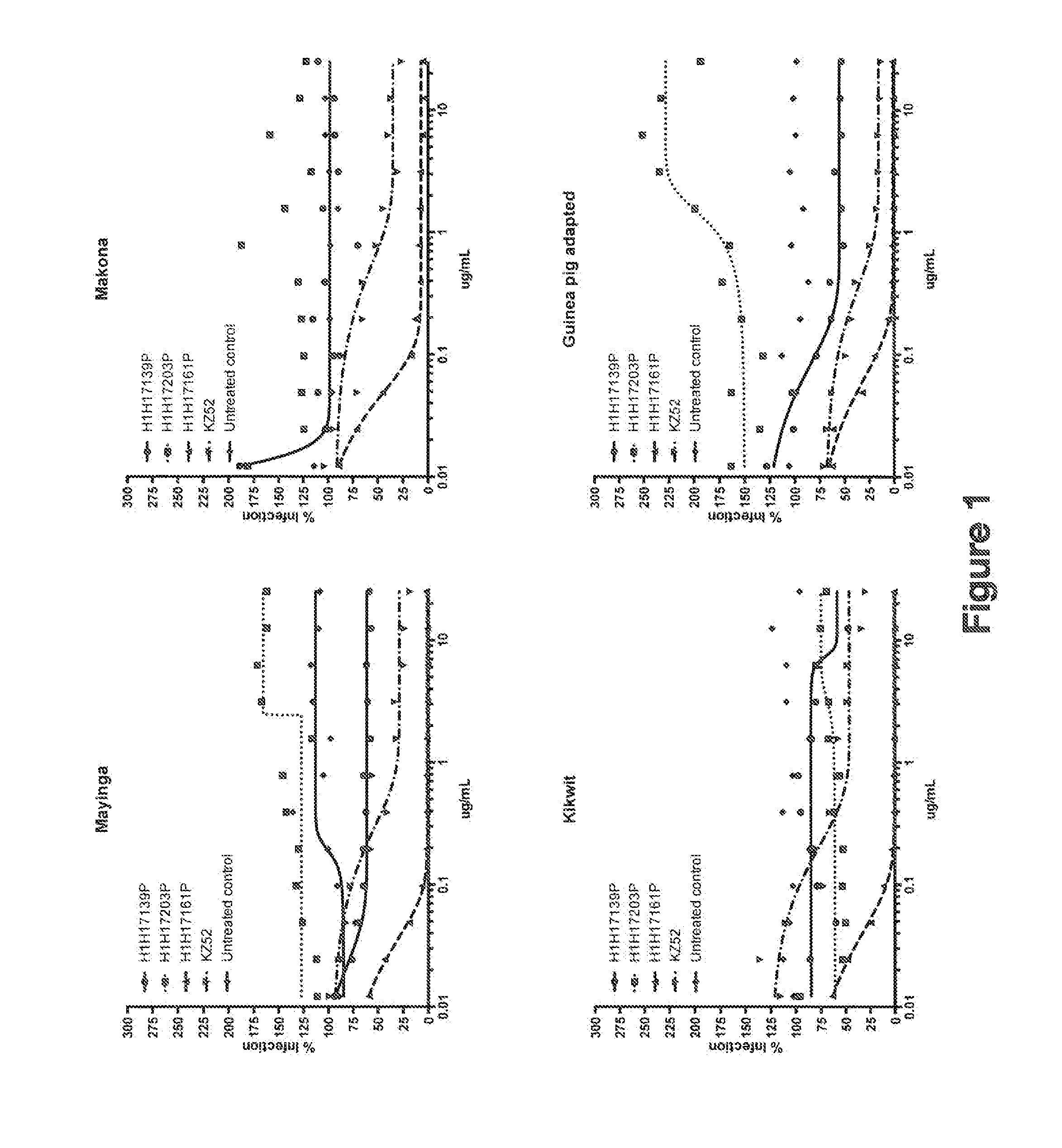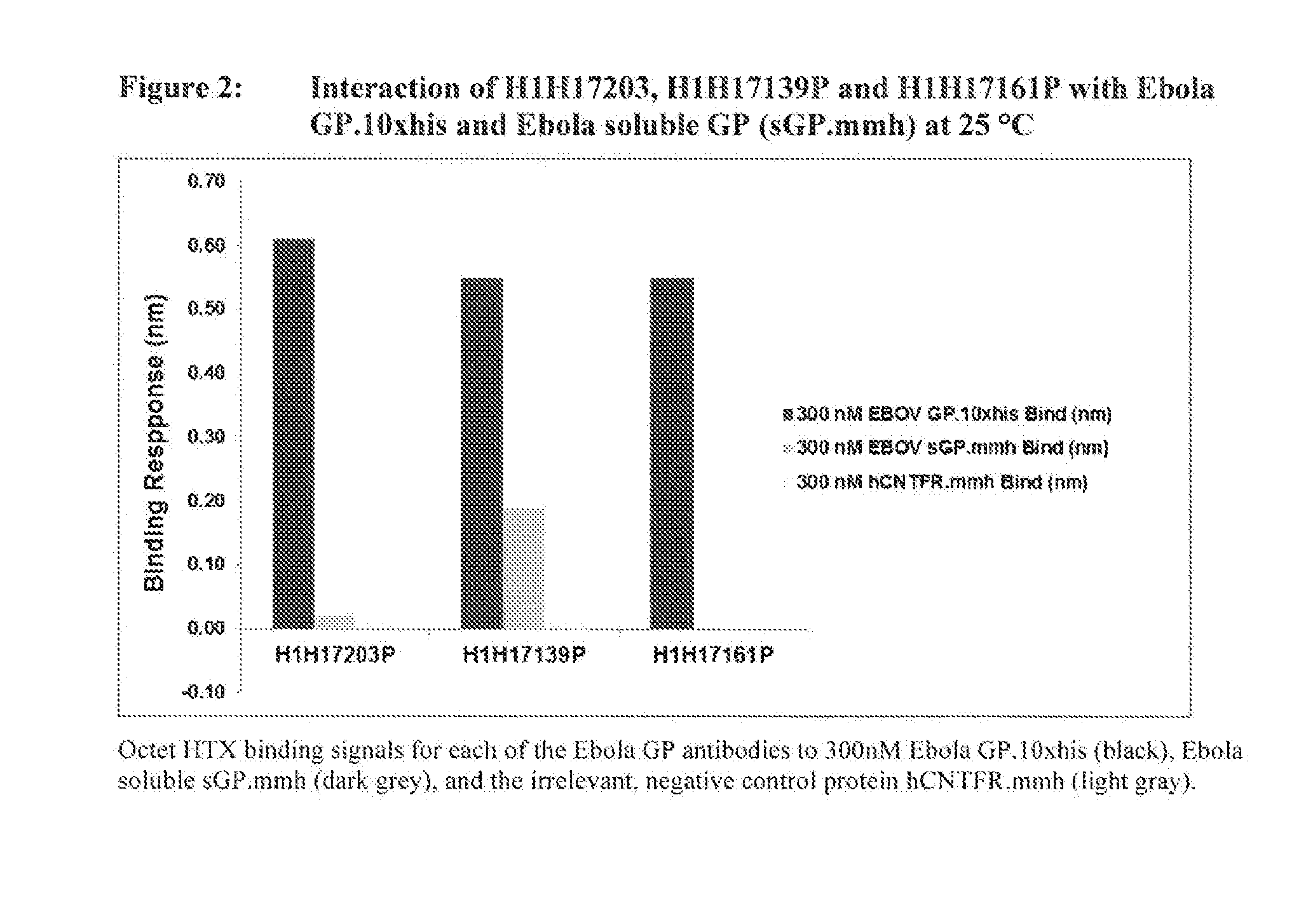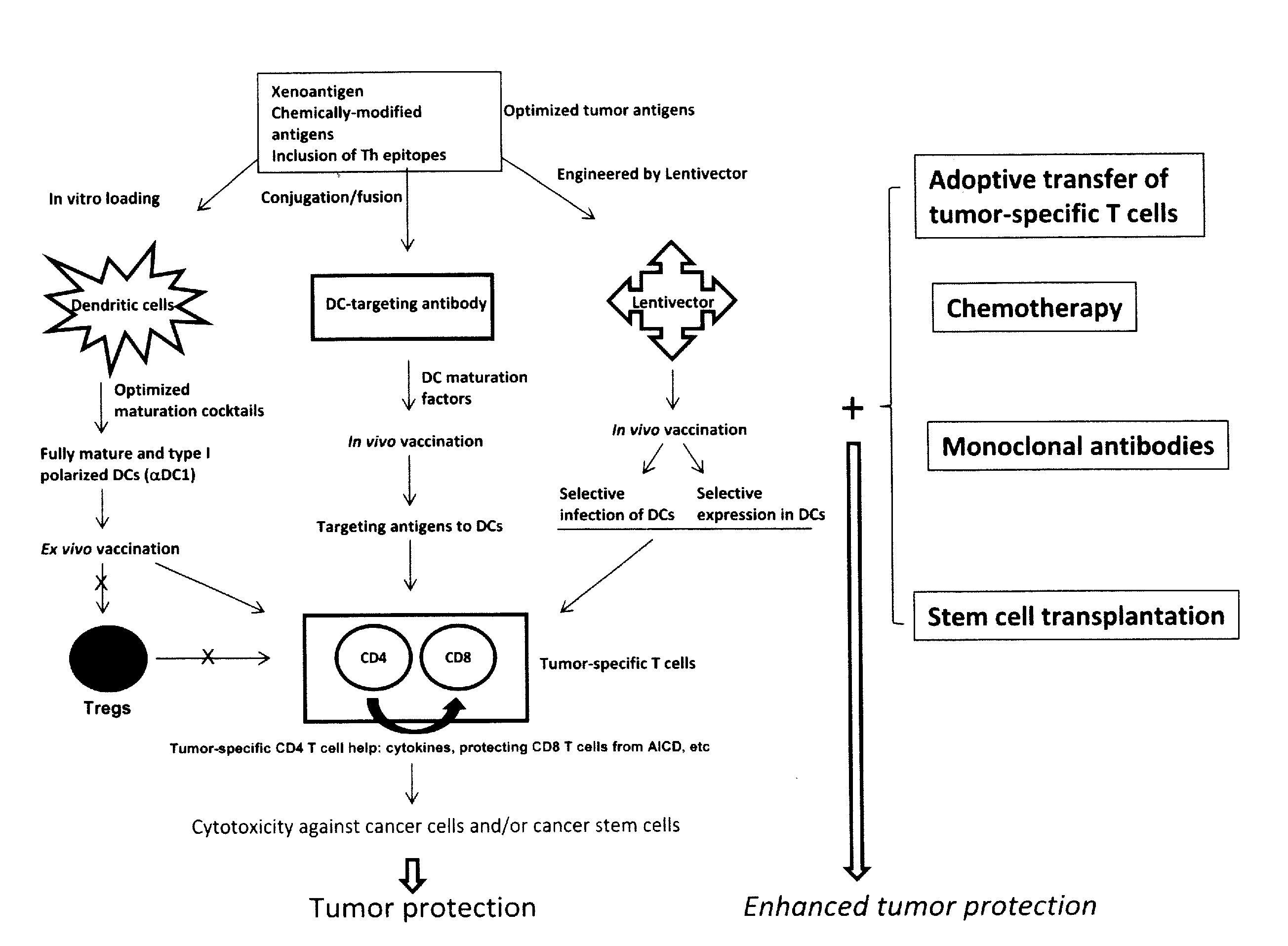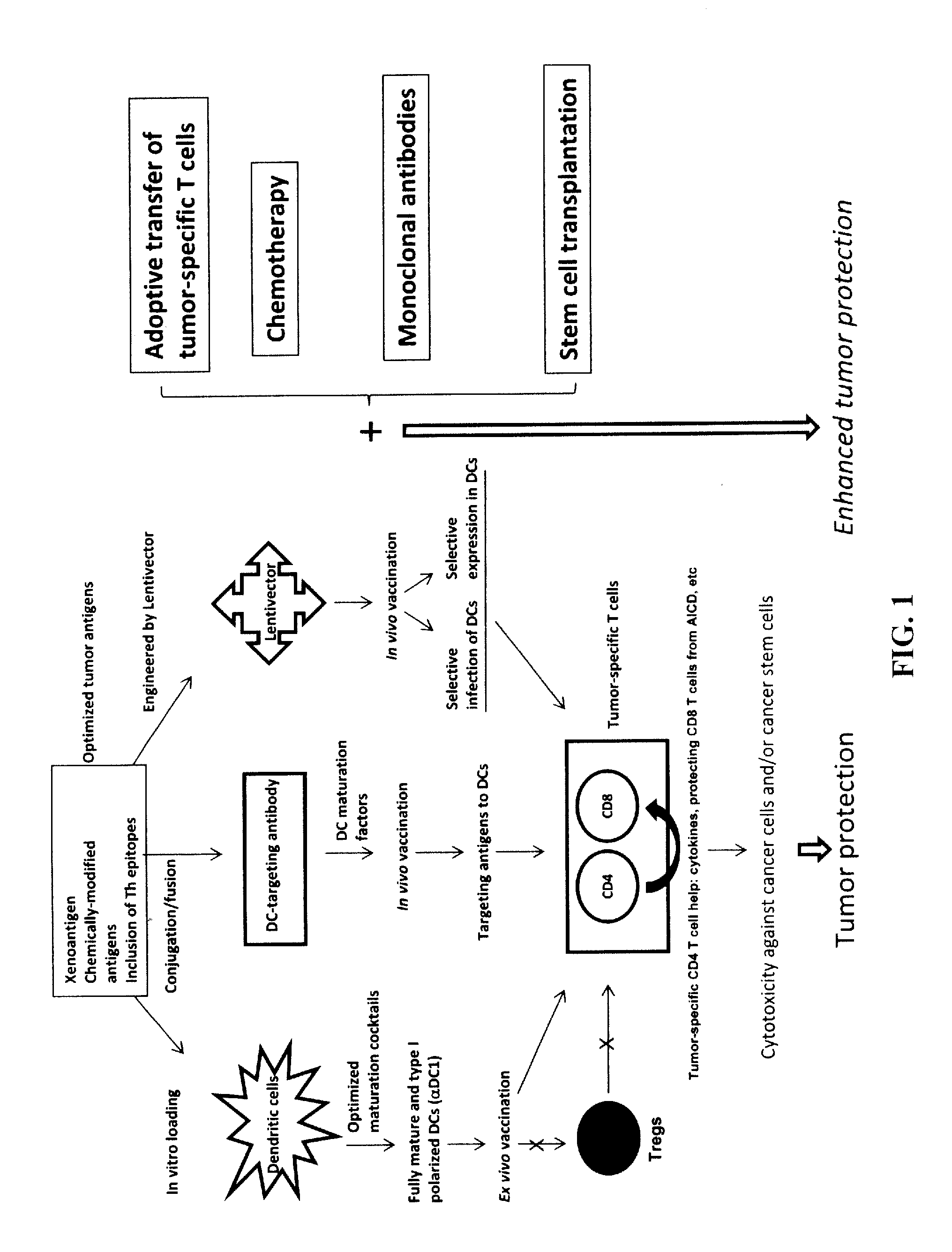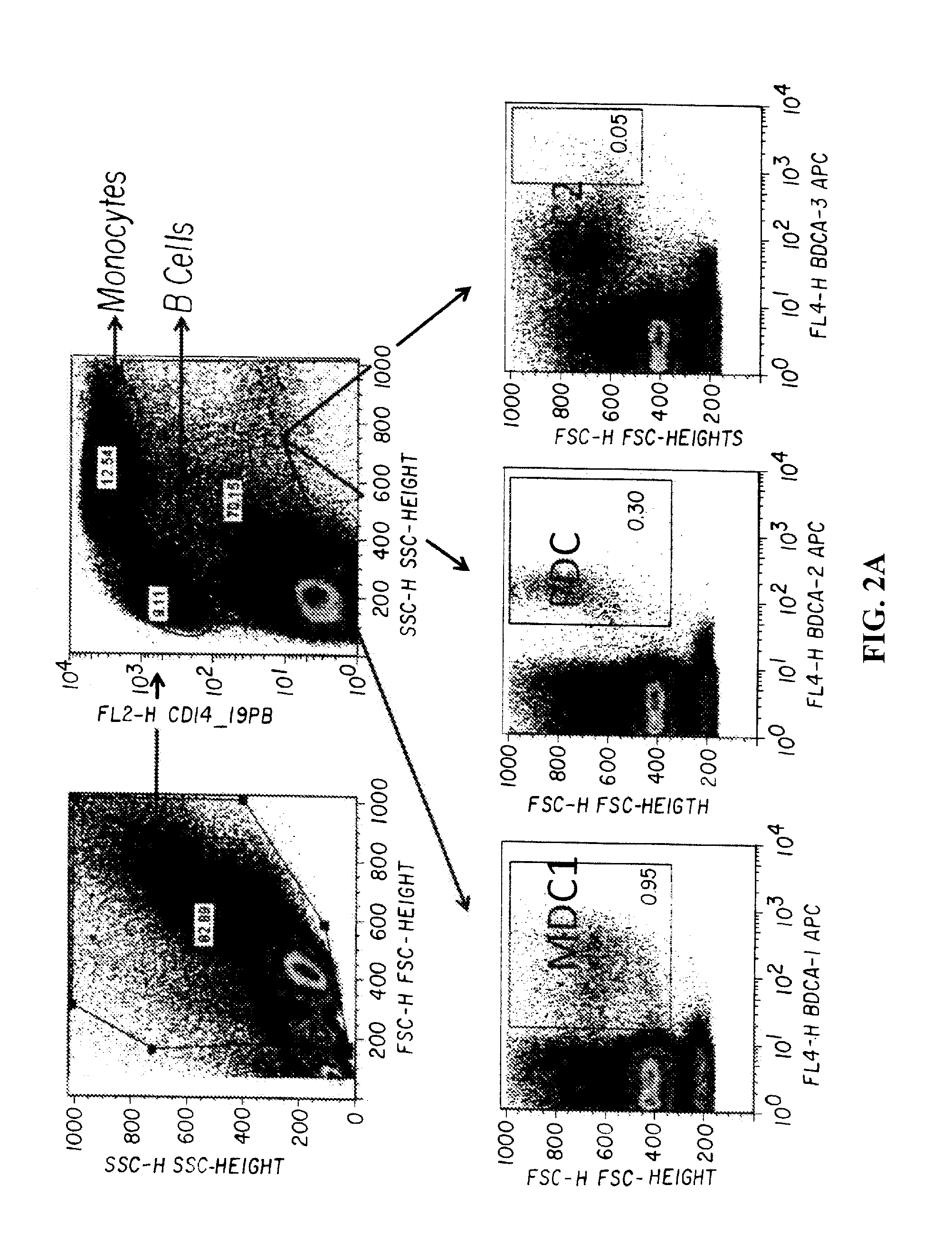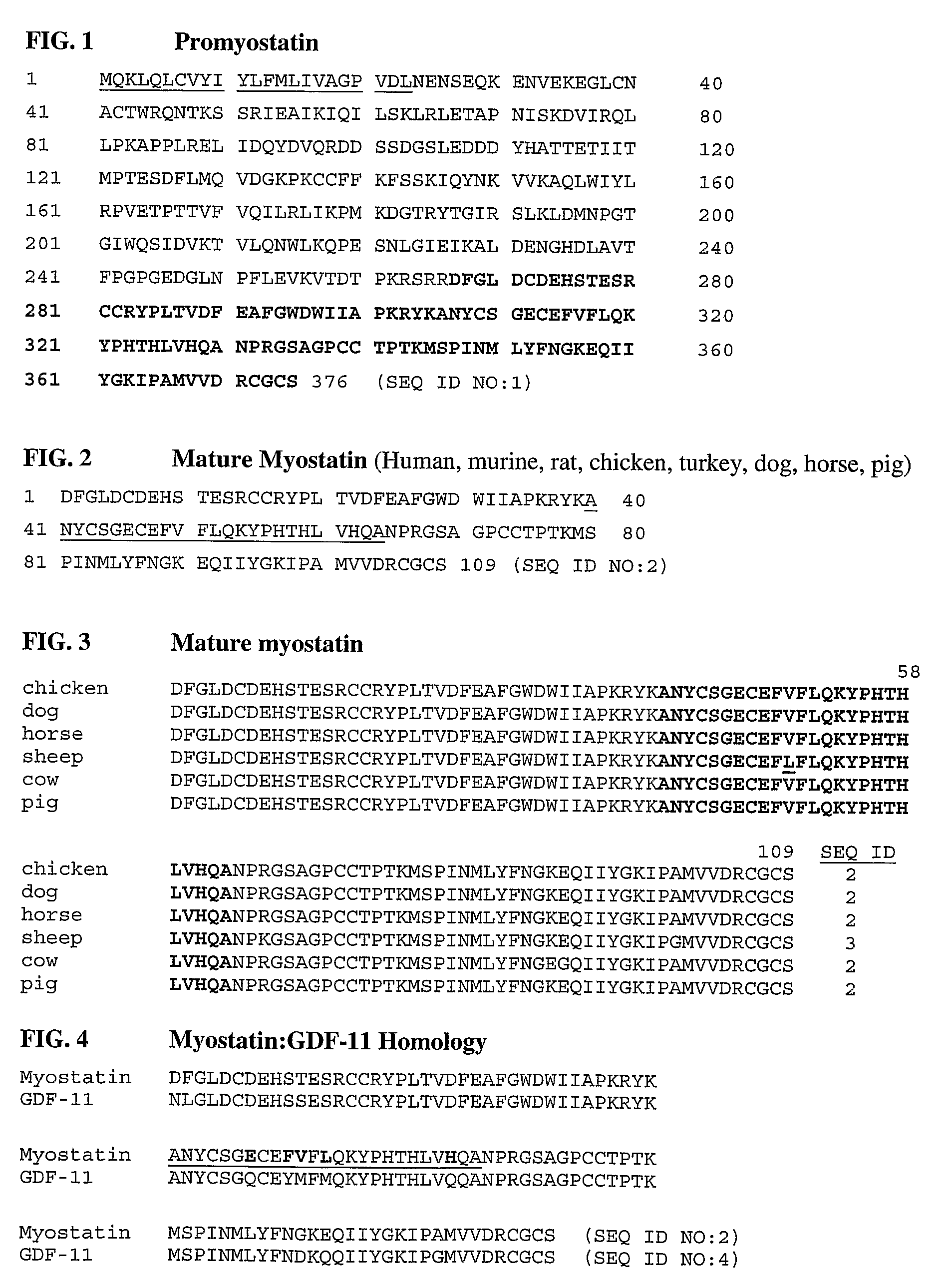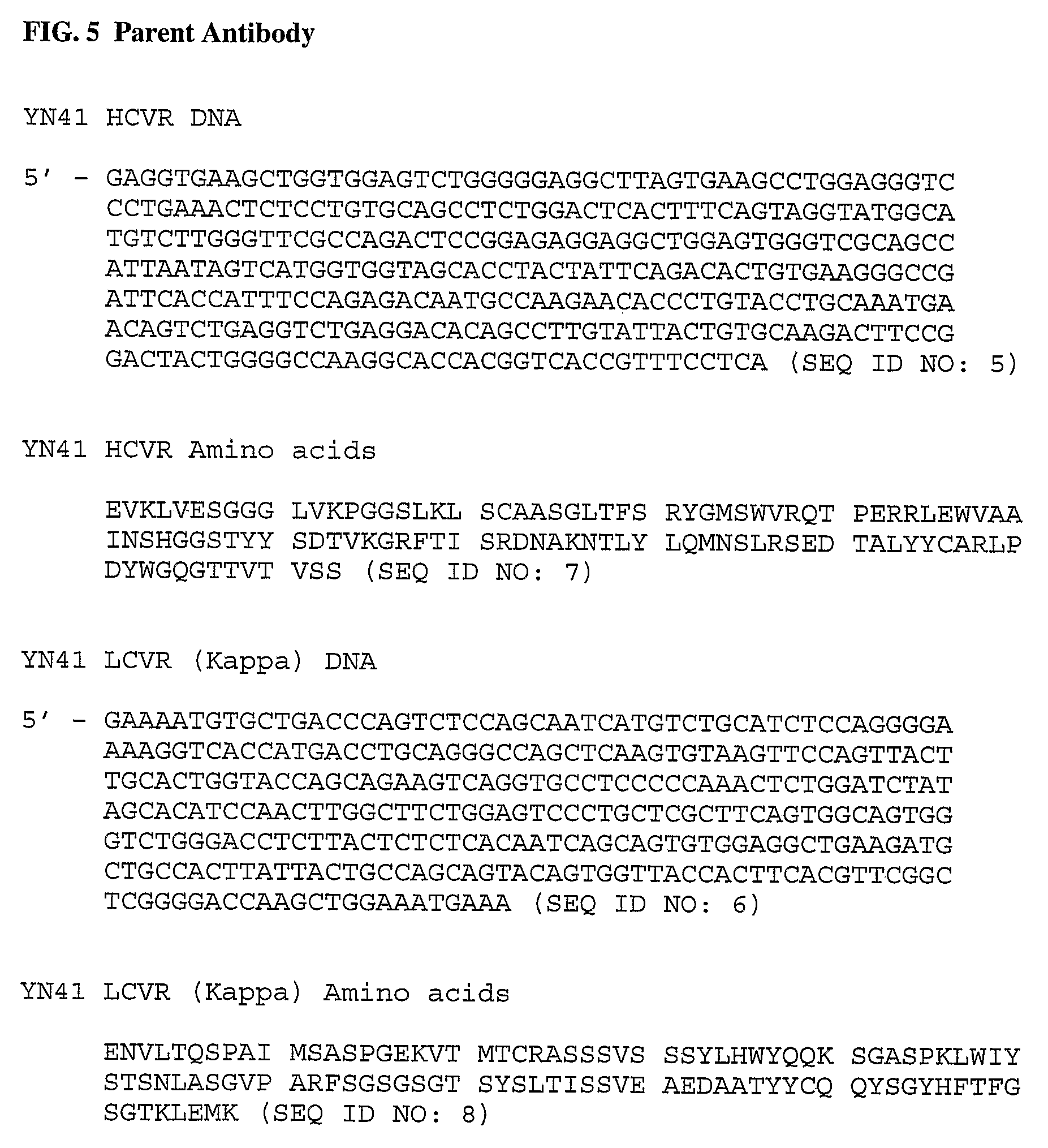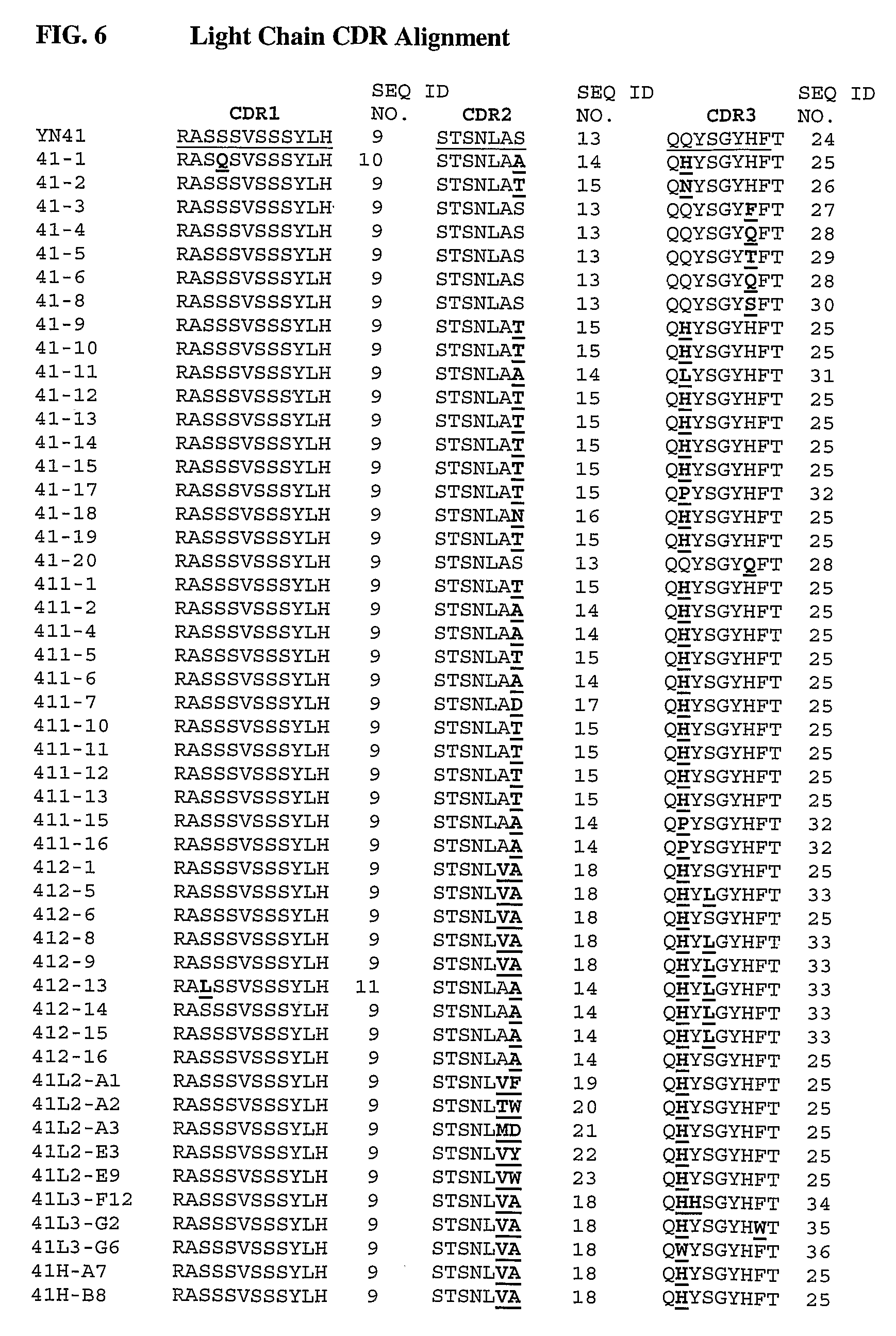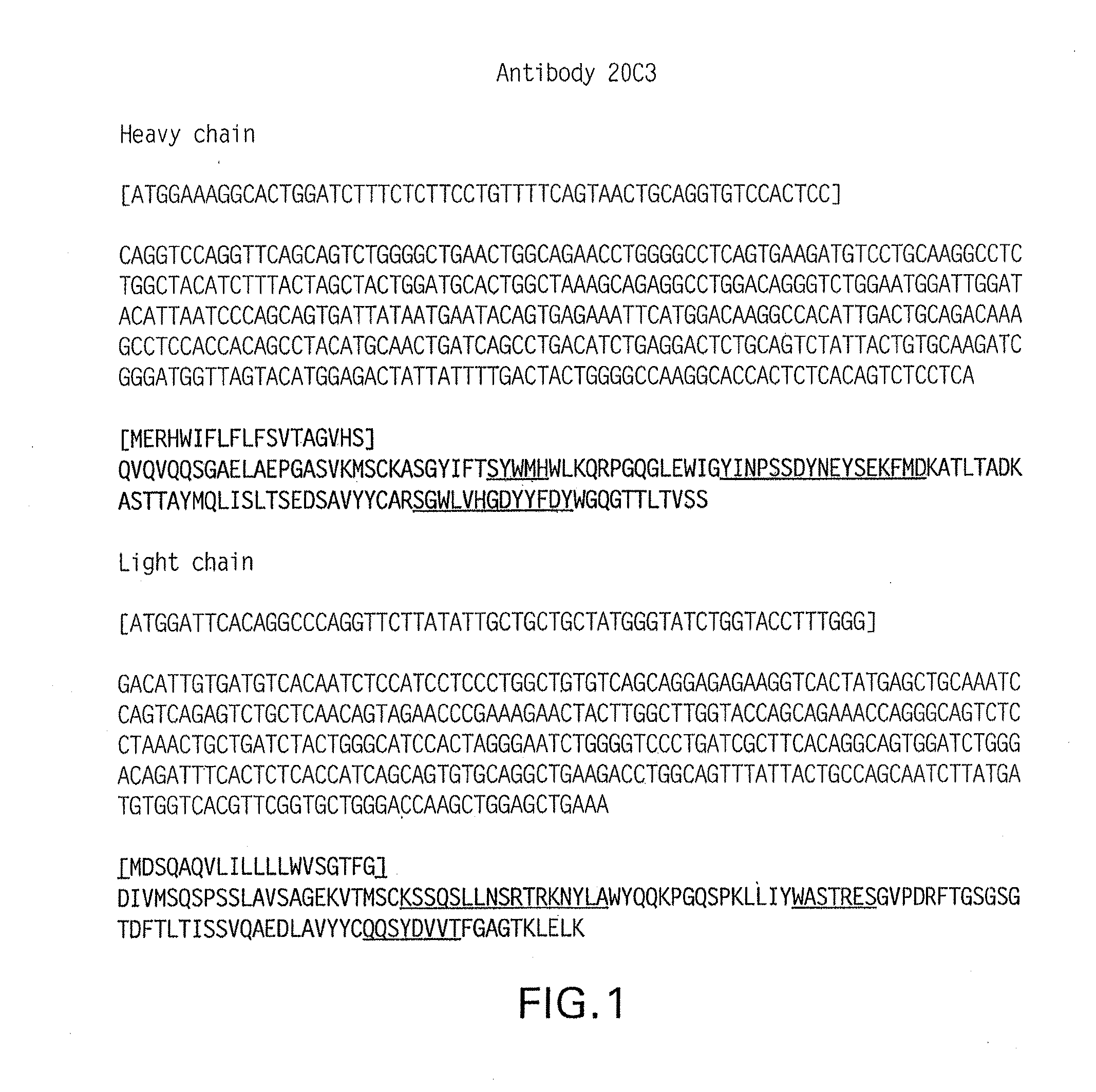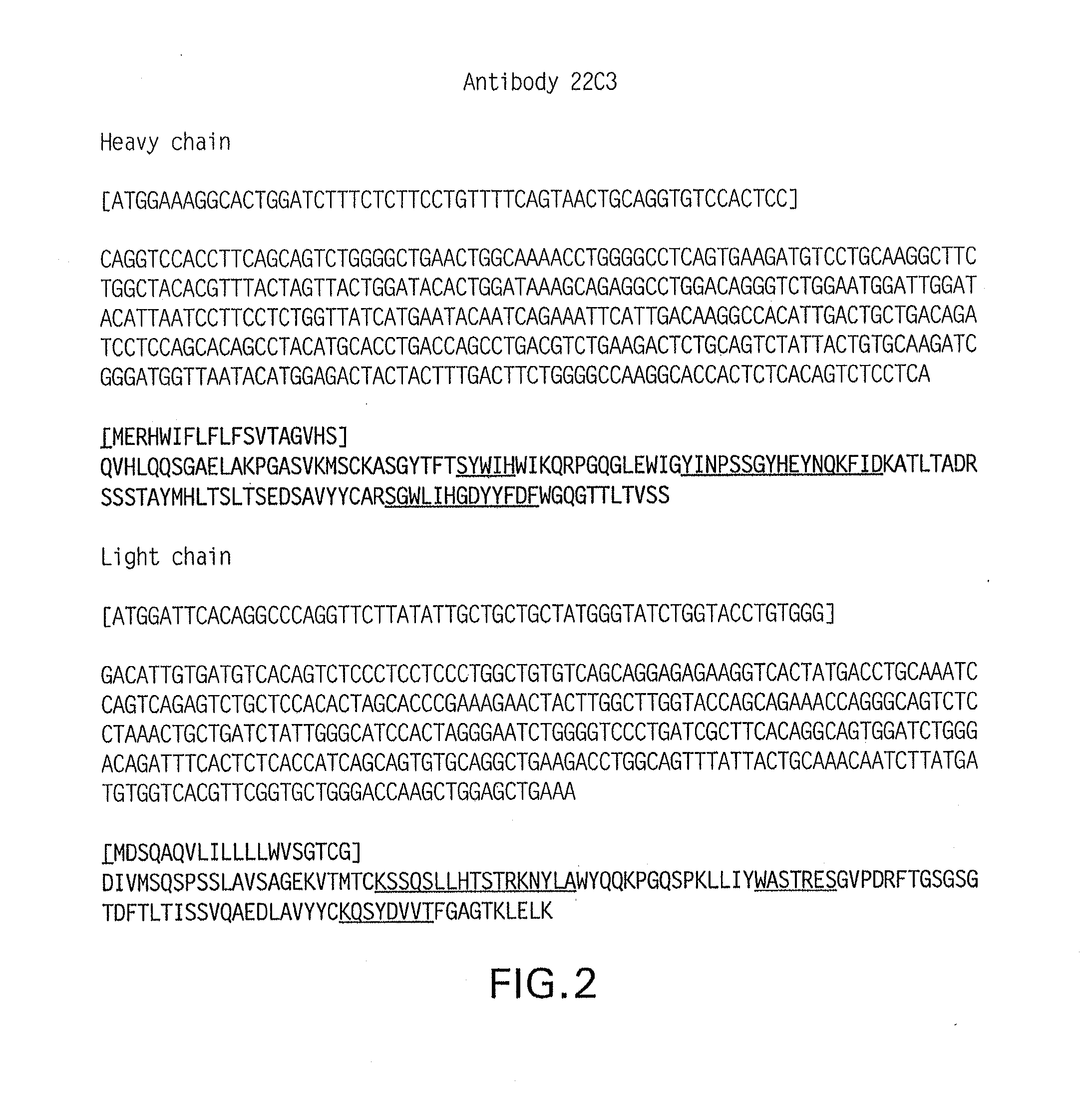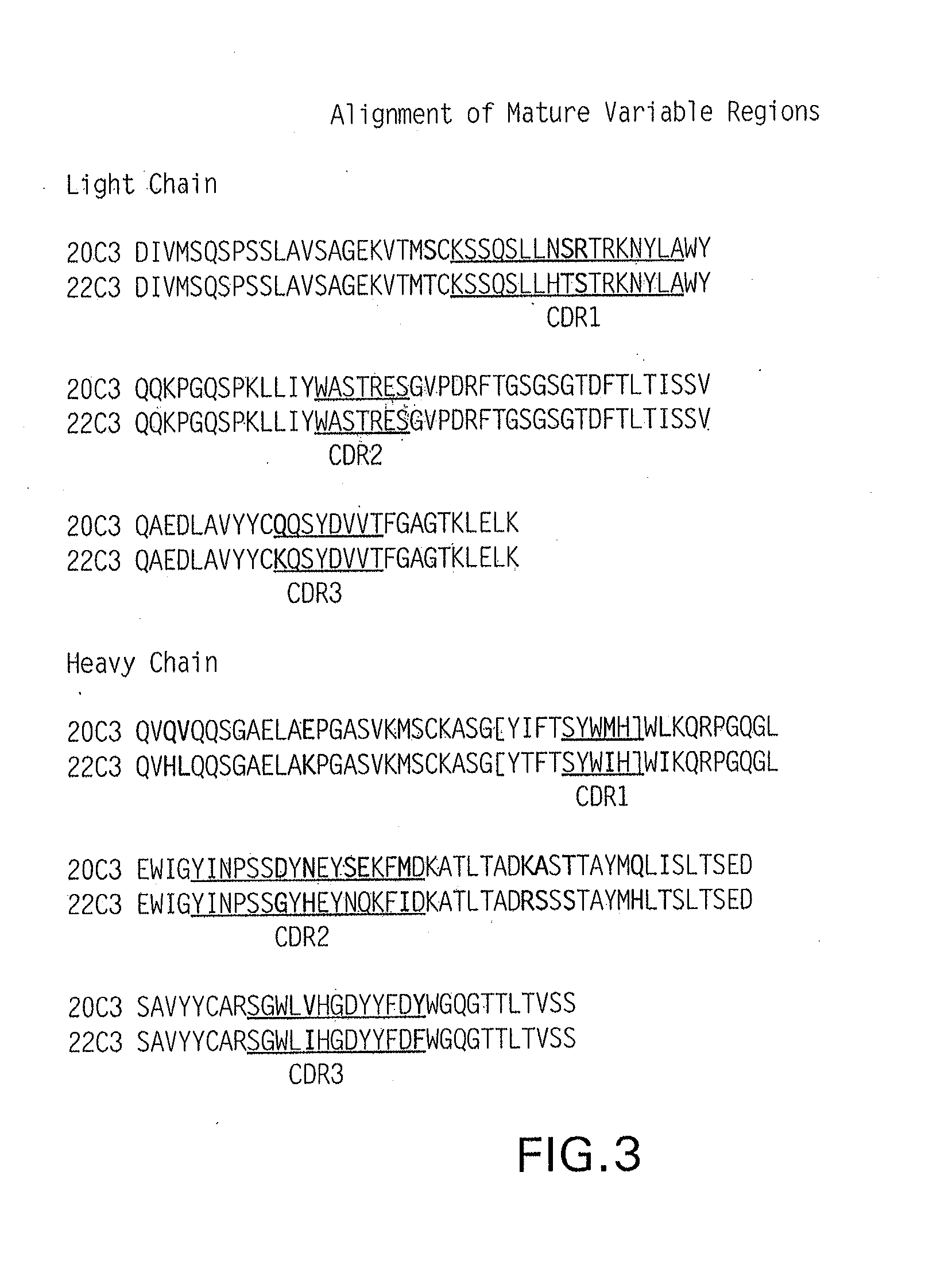Patents
Literature
1732 results about "Antigen Binding Fragment" patented technology
Efficacy Topic
Property
Owner
Technical Advancement
Application Domain
Technology Topic
Technology Field Word
Patent Country/Region
Patent Type
Patent Status
Application Year
Inventor
Anti-pd-l1 antibodies and uses thereof
ActiveUS20140341917A1Function increaseUpregulate cell-mediated immune responsesOrganic active ingredientsPeptide/protein ingredientsAntigen Binding FragmentAntigen binding
The present application relates to anti-PD-L1 antibodies or antigen binding fragments thereof, nucleic acid encoding the same, therapeutic compositions thereof, and their use to enhance T-cell function to upregulate cell-mediated immune responses and for the treatment of T cell dysfunctional disorders, such as tumor immunity, for the treatment of and cancer.
Owner:MERCK PATENT GMBH
Methods for producing and identifying multispecific antibodies
The present invention relates to a high efficiency method of expressing multispecific antibodies in eukaryotic cells. The invention is further drawn to a method of producing immunoglobulin heavy and light chain libraries, particularly using the trimolecular recombination method, for expression in eukaryotic cells. The invention further provides methods of selecting and screening for multispecific antibodies, and antigen-binding fragments thereof. The invention also provides kits for producing, screening and selecting multispecific antibodies. Finally, the invention provides multispecific antibodies, and antigen-binding fragments thereof, produced by the methods provided herein.
Owner:VACCINEX
Fcgamma-RIIB-specific antibodies and methods of use thereof
InactiveUS20050260213A1Good curative effectAvoid managementHybrid immunoglobulinsImmunoglobulins against cell receptors/antigens/surface-determinantsAntigen Binding FragmentTherapeutic effect
The present invention relates to antibodies or fragments thereof that specifically bind FcγRIIB, particularly human FcγRIIB, with greater affinity than said antibodies or fragments thereof bind FcγRIIA, particularly human FcγRIIA. The present invention also provides the use of an anti-FcγRIIB antibody or an antigen-binding fragment thereof, as a single agent therapy for the treatment, prevention, management, or amelioration of a cancer, preferably a B-cell malignancy, particularly, B-cell chronic lymphocytic leukemia or non-Hodgkin's lymphoma, an autoimmune disorder, an inflammatory disorder, an IgE-mediated allergic disorder, or one or more symptoms thereof. The invention provides methods of enhancing the therapeutic effect of therapeutic antibodies by administering the antibodies of the invention to enhance the effector function of the therapeutic antibodies. The invention also provides methods of enhancing efficacy of a vaccine composition by administering the antibodies of the invention.
Owner:MACROGENICS INC
Compositions of PSMA antibodies
InactiveUS20080286284A1Effectiveness of treatmentOrganic active ingredientsFungiAntigen Binding FragmentCancers diagnosis
The invention includes antibodies or antigen-binding fragments thereof which bind specifically to conformational epitopes on the extracellular domain of PSMA, compositions containing one or a combination of such antibodies or antigen-binding fragments thereof, hybridoma cell lines that produce the antibodies, and methods of using the antibodies or antigen-binding fragments thereof for cancer diagnosis and treatment. The invention also includes oligomeric forms of PSMA proteins, compositions comprising the multimers, and antibodies that selectively bind to the multimers.
Owner:AMGEN FREMONT INC +1
Anti-SARS-CoV-2-spike glycoprotein antibodies and antigen-binding fragments
ActiveUS10787501B1Growth inhibitionControl spreadViral antigen ingredientsImmunoglobulins against virusesAntigenAntiendomysial antibodies
The present disclosure provides antibodies and antigen-binding fragments thereof that bind specifically to a coronavirus spike protein and methods of using such antibodies and fragments for treating or preventing viral infections (e.g., coronavirus infections).
Owner:REGENERON PHARM INC
Anti-IL-17 antibodies
Anti-IL-17 antibodies are identified that are characterized as having a high affinity and slow off rate for human IL-17. The antibodies of the invention may be chimeric, humanized or fully human antibodies, immunoconjugates of the antibodies or antigen-binding fragments thereof. The antibodies of the invention are useful in particular for treating autoimmune, inflammatory, cell proliferative and developmental disorders.
Owner:ELI LILLY & CO
Antagonist Anti-cd40 monoclonal antibodies and methods for their use
ActiveUS20080254026A1Improve effectivenessPositive therapeutic responseAntipyreticAnalgesicsAntigenDisease
Compositions and methods of therapy for treating diseases mediated by stimulation of CD40 signaling on CD40-expressing cells are provided. The methods comprise administering a therapeutically effective amount of an antagonist anti-CD40 antibody or antigen-binding fragment thereof to a patient in need thereof. The antagonist anti-CD40 antibody or antigen-binding fragment thereof is free of significant agonist activity, but exhibits antagonist activity when the antibody binds a CD40 antigen on a human CD40-expressing cell. Antagonist activity of the anti-CD40 antibody or antigen-binding fragment thereof beneficially inhibits proliferation and / or differentiation of human CD40-expressing cells, such as B cells.
Owner:NOVARTIS VACCINES & DIAGNOSTICS INC
Anti-FcRn antibodies for treatment of auto/allo immune conditions
Antibodies to heavy chain of human FcRn are provided which function as non-competitive inhibitors of IgG binding to FcRn. The antibodies may be polyclonal, monoclonal, chimeric or humanized, or antigen binding fragments thereof. These antibodies are useful for reducing the concentration of pathogenic IgGs in individuals and therefore used as a therapeutic tool in autoimmune and alloimmune conditions.
Owner:THE RES FOUND OF STATE UNIV OF NEW YORK
Dock-and-lock (DNL) vaccines for cancer therapy
Owner:IBC PHARMACEUTICALS INC
CD3-Binding Molecules Capable of Binding to Human and Non-Human CD3
CD3-binding molecules capable of binding to human and non-human CD3, and in particular to such molecules that are cross-reactive with CD3 of a non-human mammal (e.g., a cynomolgus monkey) are presented. Uses of such antibodies and antigen-binding fragments in the treatment of cancer, autoimmune and / or inflammatory diseases and other conditions are presented.
Owner:MACROGENICS INC
Modified antibodies to prostate-specific membrane antigen and uses thereof
InactiveUS7045605B2Less immunogenicHigh affinityNervous disorderHybrid cell preparationAntigen Binding FragmentAntigen binding
Modified antibodies, or antigen-binding fragments thereof, to the extracellular domain of human prostate specific membrane antigen (PSMA) are provided. The modified anti-PSMA antibodies, or antigen-binding fragments thereof, have been rendered less immunogenic compared to their unmodified counterparts to a given species, e.g., a human. Pharmaceutical compositions including the aforesaid antibodies, nucleic acids, recombinant expression vectors and host cells for making such antibodies and fragments are also disclosed. Methods of using the antibodies of the invention to detect human PSMA, or to ablate or kill a PSMA-expressing cell, e.g., a PSMA-expressing cancer or prostatic cell, either in vitro or in vivo, are also provided.
Owner:CORNELL RES FOUNDATION INC
Combination of Anti-PD-1 Antibodies and Anti-CD20/Anti-CD3 Antibodies to Treat Cancer
InactiveUS20170174779A1Growth inhibitionImmunoglobulins against cell receptors/antigens/surface-determinantsAntibody ingredientsAntigenCD20
The present invention provides methods for treating, reducing the severity, or inhibiting the growth of cancer (e.g., a B-cell cancer such as Hodgkin's lymphoma or acute lymphoblastic leukemia). The methods of the present invention comprise administering to a subject in need thereof a therapeutically effective amount of an antibody or antigen-binding fragment thereof that specifically binds to programmed death 1 (PD-1) receptor in combination with a therapeutically effective amount of a bispecific antibody that specifically binds to CD20 and CD3.
Owner:REGENERON PHARM INC
FcGammaRIIB Specific Antibodies and Methods of Use Thereof
InactiveUS20090053218A1Good curative effectAvoid managementAntibody ingredientsImmunoglobulinsTreatment effectAutoimmune responses
The present invention relates to antibodies or fragments thereof that specifically bind FcγRIIB, particularly human FcγRIIB, with greater affinity than said antibodies or fragments thereof bind FcγRIIA, particularly human FcγRIIA. The present invention also encompasses the use of an anti-FcγRIIB antibody or an antigen-binding fragment thereof, as a single agent therapy for the treatment, prevention, management, or amelioration of a cancer, preferably a B-cell malignancy, particularly, B-cell chronic lymphocytic leukemia or non-Hodgkin's lymphoma, an autoimmune disorder, an inflammatory disorder, an IgE-mediated allergic disorder, or one or more symptoms thereof. The present invention also encompasses the use of an anti-FcγRIIB antibody or an antigen-binding fragment thereof, in combination with other cancer therapies. The present invention provides pharmaceutical compositions comprising an anti-FcγRIIB antibody or an antigen-binding fragment thereof, in amounts effective to prevent, treat, manage, or ameliorate a cancer, such as a B-cell malignancy, an autoimmune disorder, an inflammatory disorder, an IgE-mediated allergic disorder, or one or more symptoms thereof. The invention further provides methods of enhancing the therapeutic effect of therapeutic antibodies by administering the antibodies of the invention to enhance the effector function of the therapeutic antibodies. The invention also provides methods of enhancing efficacy of a vaccine composition by administering the antibodies of the invention with a vaccine composition.
Owner:MACROGENICS INC
PSMA antibodies and protein multimers
The invention includes antibodies or antigen-binding fragments thereof which bind specifically to conformational epitopes on the extracellular domain of PSMA, compositions containing one or a combination of such antibodies or antigen-binding fragments thereof, hybridoma cell lines that produce the antibodies, and methods of using the antibodies or antigen-binding fragments thereof for cancer diagnosis and treatment. The invention also includes oligomeric forms of PSMA proteins, compositions comprising the multimers, and antibodies that selectively bind to the multimers.
Owner:PSMA DEV COMPANY
Anti-cd20 therapeutic compositions and methods
InactiveUS20100330089A1Slow tumor growthEliminate the effects ofNervous disorderAntibody mimetics/scaffoldsAntigenDisease
The present invention provides materials and methods for treatment of diseases involving aberrant B-cell activity, using a CD20-specific binding molecule, in particular, antibodies or antigen binding fragment thereof. The compositions disclosed herein is useful for the treatment and diagnosis of B-cell disorders, such as B-cell malignancies and autoimmune diseases.
Owner:EMERGENT PRODUCTS DEVELOPMENT SEATTLE LLC +1
Targeted tgfß inhibition
ActiveUS20150225483A1Effective therapyPeptide/protein ingredientsAntibody mimetics/scaffoldsAntigenAntigen Binding Fragment
This invention relates generally to bifunctional molecules including (a) a TGFβRII or fragment thereof capable of binding TGFβ and (b) an antibody, or antigen binding fragment thereof, that binds to an immune checkpoint protein, such as Programmed Death Ligand 1 (PD-L1), uses of such molecules (e.g., for treating cancer), and methods of making such molecules.
Owner:MERCK PATENT GMBH
Method of administering an antibody
Disclosed is a method for treating a human having a disease associated with leukocyte infiltration of mucosal tissues, comprising administering to said human an effective amount of a human or humanized immunoglobulin or antigen-binding fragment thereof having binding specificity for α4β7 integrin. Preferably, no more than about 8 mg immunoglobulin or fragment per kg body weight are administered during a period of about one month.
Owner:GENENTECH INC +1
Anti-IL-17 Antibodies
ActiveUS20080269467A1Lower Level RequirementsReduced activityNervous disorderAntipyreticDiseaseAntigen Binding Fragment
Anti-IL-17 antibodies are identified that are characterized as having a high affinity and slow off rate for human IL-17. The antibodies of the invention may be chimeric, humanized or fully human antibodies, immunoconjugates of the antibodies or antigen-binding fragments thereof. The antibodies of the invention are useful in particular for treating autoimmune, inflammatory, cell proliferative and developmental disorders.
Owner:ELI LILLY & CO
Fc.gamma.RIIB-Specific Antibodies and Methods of Use Thereof
ActiveUS20080044429A1Good curative effectEnhanced effector functionSugar derivativesPeptide/protein ingredientsTreatment effectAntigen Binding Fragment
The present invention relates to antibodies or fragments thereof that specifically bind FcγRIIB, particularly human FcγRIIB, with greater affinity than said antibodies or fragments thereof bind FcγRIIA, particularly human FcγRIIA. The present invention also provides the use of an anti-FcγRIIB antibody or an antigen-binding fragment thereof, as a single agent therapy for the treatment, prevention, management, or amelioration of a cancer, preferably a B-cell malignancy, particularly, B-cell chronic lymphocytic leukemia or non-Hodgkin's lymphoma, an autoimmune disorder, an inflammatory disorder, an IgE-mediated allergic disorder, or one or more symptoms thereof. The invention provides methods of enhancing the therapeutic effect of therapeutic antibodies by administering the antibodies of the invention to enhance the effector function of the therapeutic antibodies. The invention also provides methods of enhancing efficacy of a vaccine composition by administering the antibodies of the invention.
Owner:MACROGENICS INC
Antibodies and methods for making and using them
InactiveUS20080187966A1Speed up the processIncrease productionImmunoglobulins against growth factorsRecombinant DNA-technologyDisulfide bondingAntigen Binding Fragment
The present invention provides methods for producing humanized antibodies and increasing the yield of antibodies and / or antigen binding fragments when produced in cell culture. In one aspect of the invention, at least one framework region amino acid residue of the variable domain is substituted by a corresponding amino acid from a variable domain consensus sequence subgroup that has the most sequence identity with the HVR1 and / or HVR2 amino acid sequence of the variable domain. In another aspect, an amino acid is placed at a position proximal to a cys residue that participates in an intrachain variable domain disulfide bond that corresponds to an amino acid found at that position in a variable domain consensus sequence subgroup that has the most sequence identity with the HVR1 and / or HVR2 amino acid sequence of the variable domain.
Owner:GENENTECH INC
Methods of treating prostate cancer with anti-prostate specific membrane antigen antibodies
ActiveUS7514078B2Relieve painReduce needSugar derivativesHybrid cell preparationAntigen Binding FragmentAnti-PSMA Antibody
Modified antibodies, or antigen-binding fragments thereof, to the extracellular domain of human prostate specific membrane antigen (PSMA) are provided. The modified anti-PSMA antibodies, or antigen-binding fragments thereof, have been rendered less immunogenic compared to their unmodified counterparts to a given species, e.g., a human. Pharmaceutical compositions including the aforesaid antibodies, nucleic acids, recombinant expression vectors and host cells for making such antibodies and fragments are also disclosed. Methods of using the antibodies of the invention to detect human PSMA, or to ablate or kill a PSMA-expressing cell, e.g., a PSMA-expressing cancer or prostatic cell, either in vitro or in vivo, are also provided.
Owner:CORNELL RES FOUNDATION INC
FcGammaRIIB Specific Antibodies and Methods of Use Thereof
InactiveUS20090074771A1Strong therapeutic activityEnhancing antibody-mediated effector functionAntibody ingredientsImmunoglobulinsTolerabilityImmune complex deposition
The present invention relates to antibodies or fragments thereof that specifically bind FcγRIIB, particularly human FcγRIIB, more particularly the extracellular domain of FcγRIIB with greater affinity than said antibodies or fragments thereof bind FcγRIIA, particularly human FcγRIIA, and block the Fc binding site of FcγRIIB. The present invention also encompasses the use of an anti-FcγRIIB antibody or an antigen-binding fragment thereof, as a single agent therapy for the treatment, prevention, management, or amelioration of a cancer, preferably a B-cell malignancy, particularly, B-cell chronic lymphocytic leukemia or non-Hodgkin's lymphoma, an autoimmune disorder, an inflammatory disorder, an IgE-mediated allergic disorder, or one or more symptoms thereof. The present invention also encompasses the use of an anti-FcγRIIB antibody or an antigen-binding fragment thereof, in combination with other cancer therapies. The present invention provides pharmaceutical compositions comprising an anti-FcγRIIB antibody or an antigen-binding fragment thereof, in amounts effective to prevent, treat, manage, or ameliorate a cancer, such as a B-cell malignancy, an autoimmune disorder, an inflammatory disorder, an IgE-mediated allergic disorder, or one or more symptoms thereof. The invention further provides methods of enhancing the therapeutic effect of therapeutic antibodies by administering the antibodies of the invention to enhance the effector function of the therapeutic antibodies. The invention also provides methods of enhancing efficacy of a vaccine composition by administering the antibodies of the invention with a vaccine composition. The invention further provides methods of treating cancer and / or regulating immune complex-mediated cell activation by administering the antibodies of the invention to enhance an immune response. The invention also provides methods of breaking tolerance to an antigen by administering an antigen-antibody complex and an antibody of the invention.
Owner:MACROGENICS INC
FcγRIIB specific antibodies and methods of use thereof
The present invention relates to antibodies or fragments thereof that specifically bind FcγRIIB, particularly human FcγRIIB, with greater affinity than said antibodies or fragments thereof bind FcγRIIA, particularly human FcγRIIA. The present invention also encompasses the use of an anti-FcγRIIB antibody or an antigen-binding fragment thereof, as a single agent therapy for the treatment, prevention, management, or amelioration of a cancer, preferably a B-cell malignancy, particularly, B-cell chronic lymphocytic leukemia or non-Hodgkin's lymphoma, an autoimmune disorder, an inflammatory disorder, an IgE-mediated allergic disorder, or one or more symptoms thereof. The present invention also encompasses the use of an anti-FcγRIIB antibody or an antigen-binding fragment thereof, in combination with other cancer therapies. The present invention provides pharmaceutical compositions comprising an anti-FcγRIIB antibody or an antigen-binding fragment thereof, in amounts effective to prevent, treat, manage, or ameliorate a cancer, such as a B-cell malignancy, an autoimmune disorder, an inflammatory disorder, an IgE-mediated allergic disorder, or one or more symptoms thereof. The invention further provides methods of enhancing the therapeutic effect of therapeutic antibodies by administering the antibodies of the invention to enhance the effector function of the therapeutic antibodies. The invention also provides methods of enhancing efficacy of a vaccine composition by administering the antibodies of the invention with a vaccine composition.
Owner:MACROGENICS INC
Bispecific Fusion Antibodies With Enhanced Serum Half-Life
Drug compositions, fusions and conjugates are provided. The drug fusions and conjugates contain a therapeutic or diagnostic agent that is fused or conjugated to an antigen-binding fragment of an antibody that binds serum albumin. The drug compositions, fusions and conjugates have a longer in vivo half-life in comparison with the unconjugated or unfused therapeutic or diagnostic agent.
Owner:DORMANTIS LTD
Method of treating osteoarthritis with an antibody to NGF
Methods are disclosed for treating osteoarthritis in a human subject in need thereof, comprising administering to the subject a therapeutically effective amount of an anti-human NGF antibody, or antigen-binding fragment thereof, wherein at least one symptom associated with osteoarthritis is prevented, ameliorated or improved.
Owner:REGENERON PHARM INC
Targeted TGFβ inhibitors
ActiveUS9676863B2Effective therapyNervous disorderPeptide/protein ingredientsAntigenAntigen Binding Fragment
This invention relates generally to bifunctional molecules including (a) a TGFβRII or fragment thereof capable of binding TGFβ and (b) an antibody, or antigen binding fragment thereof, that binds to an immune checkpoint protein, such as Programmed Death Ligand 1 (PD-L1), uses of such molecules (e.g., for treating cancer), and methods of making such molecules.
Owner:MERCK PATENT GMBH
Human Antibodies to Ebola Virus Glycoprotein
ActiveUS20160215040A1Inhibiting and neutralizing activityAvoid enteringImmunoglobulins against virusesAntiviralsViral glycoproteinAntigen Binding Fragment
The present invention provides monoclonal antibodies, or antigen-binding fragments thereof, that bind to Ebola virus glycoproteins, pharmaceutical compositions comprising the antibodies and methods of use. The antibodies of the invention are useful for inhibiting or neutralizing Ebola virus activity, thus providing a means of treating or preventing Ebola virus infection in humans. In some embodiments, the invention provides for use of one or more antibodies that bind to the Ebola virus for preventing viral attachment and / or entry into host cells. The antibodies of the invention may be used prophylactically or therapeutically and may be used alone or in combination with one or more other anti-viral agents or vaccines.
Owner:REGENERON PHARM INC
Novel Strategies for Improved Cancer Vaccines
The present invention concerns methods and compositions for forming anti-cancer vaccine complexes. In preferred embodiments, the anti-cancer vaccine complex comprises an antibody moiety that binds to dendritic cells, such as an anti-CD74 antibody or antigen-binding fragment thereof, attached to an AD (anchoring domain) moiety and a xenoantigen, such as CD20, attached to a DDD (dimerization and docking domain) moiety, wherein two copies of the DDD moiety form a dimer that binds to the AD moiety, resulting in the formation of the vaccine complex. The anti-cancer vaccine complex is capable of inducing an immune response against xenoantigen expressing cancer cells, such as CD138negCD20+ MM stem cells, and inducing apoptosis of and inhibiting the growth of or eliminating the cancer cells.
Owner:IBC PHARMACEUTICALS INC
Anti-myostatin antibodies
Anti-myostatin antibodies are identified that are characterized as having high affinity and may be chimeric, humanized or fully human antibodies, immunoconjugates of the antibodies or antigen-binding fragments thereof. The antibodies of the invention are useful for increasing muscle mass, increasing bone density, or for the treatment of various disorders in mammalian and avian species.
Owner:ELI LILLY & CO
Antibodies that bind to human programmed death ligand 1 (pd-l1)
The present disclosure provides isolated antibodies that specifically bind to human PD-L1, as well as antigen binding fragments of such antibodies, and kits comprising the anti-PD-L1 antibodies or binding fragments and a set of reagents for detecting a complex of the antibody, or antigen binding fragment thereof, bound to human PD-L1. The antibodies and antigen binding fragments of this disclosure are useful for immunohistochemical detection of human PD-L1 expression in tissue samples. Nucleic acid molecules encoding the antibodies and antigen binding fragments of this disclosure, as well as expression vectors and host cells for expression thereof, are also provided.
Owner:MERCK SHARP & DOHME LLC
Features
- R&D
- Intellectual Property
- Life Sciences
- Materials
- Tech Scout
Why Patsnap Eureka
- Unparalleled Data Quality
- Higher Quality Content
- 60% Fewer Hallucinations
Social media
Patsnap Eureka Blog
Learn More Browse by: Latest US Patents, China's latest patents, Technical Efficacy Thesaurus, Application Domain, Technology Topic, Popular Technical Reports.
© 2025 PatSnap. All rights reserved.Legal|Privacy policy|Modern Slavery Act Transparency Statement|Sitemap|About US| Contact US: help@patsnap.com
